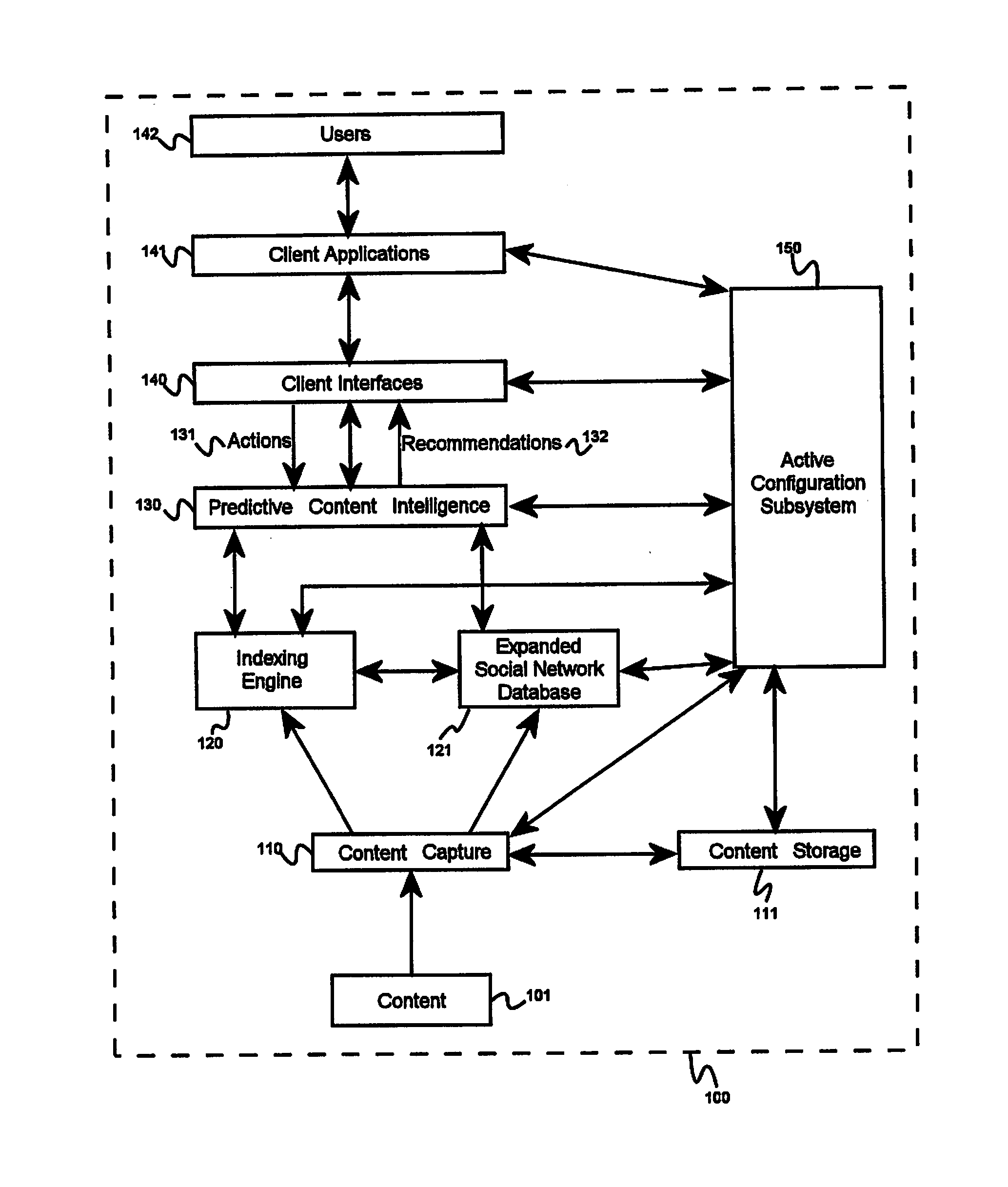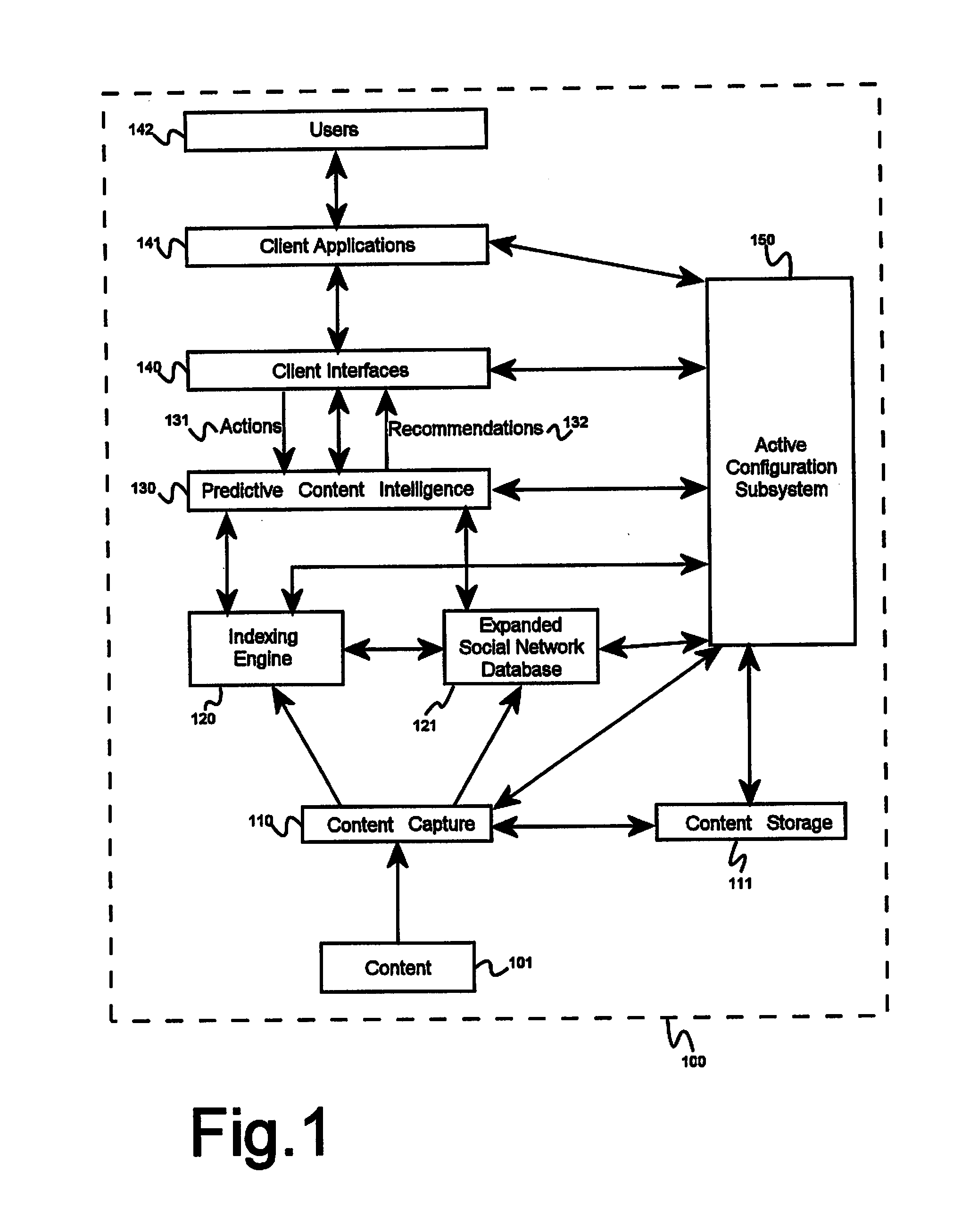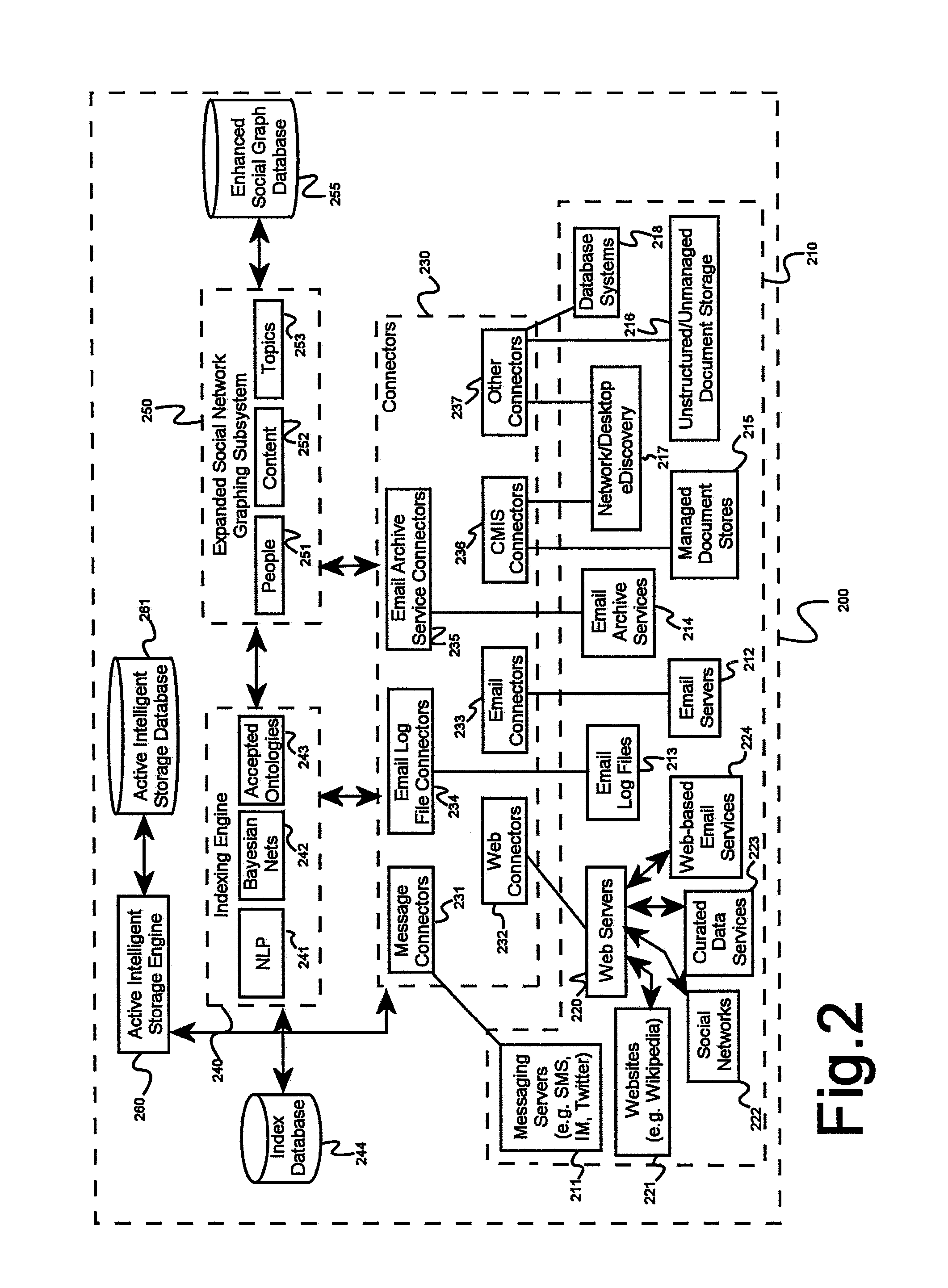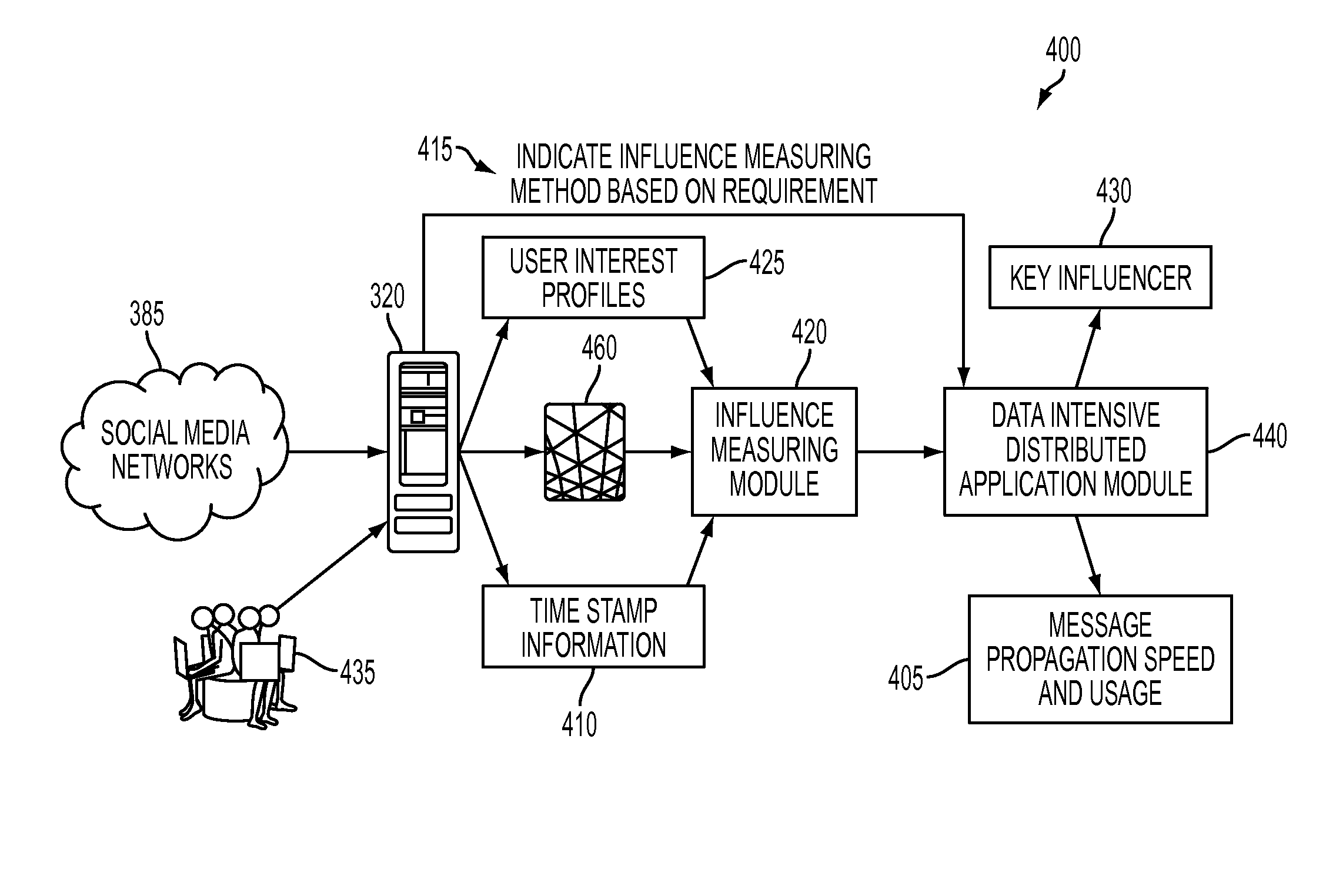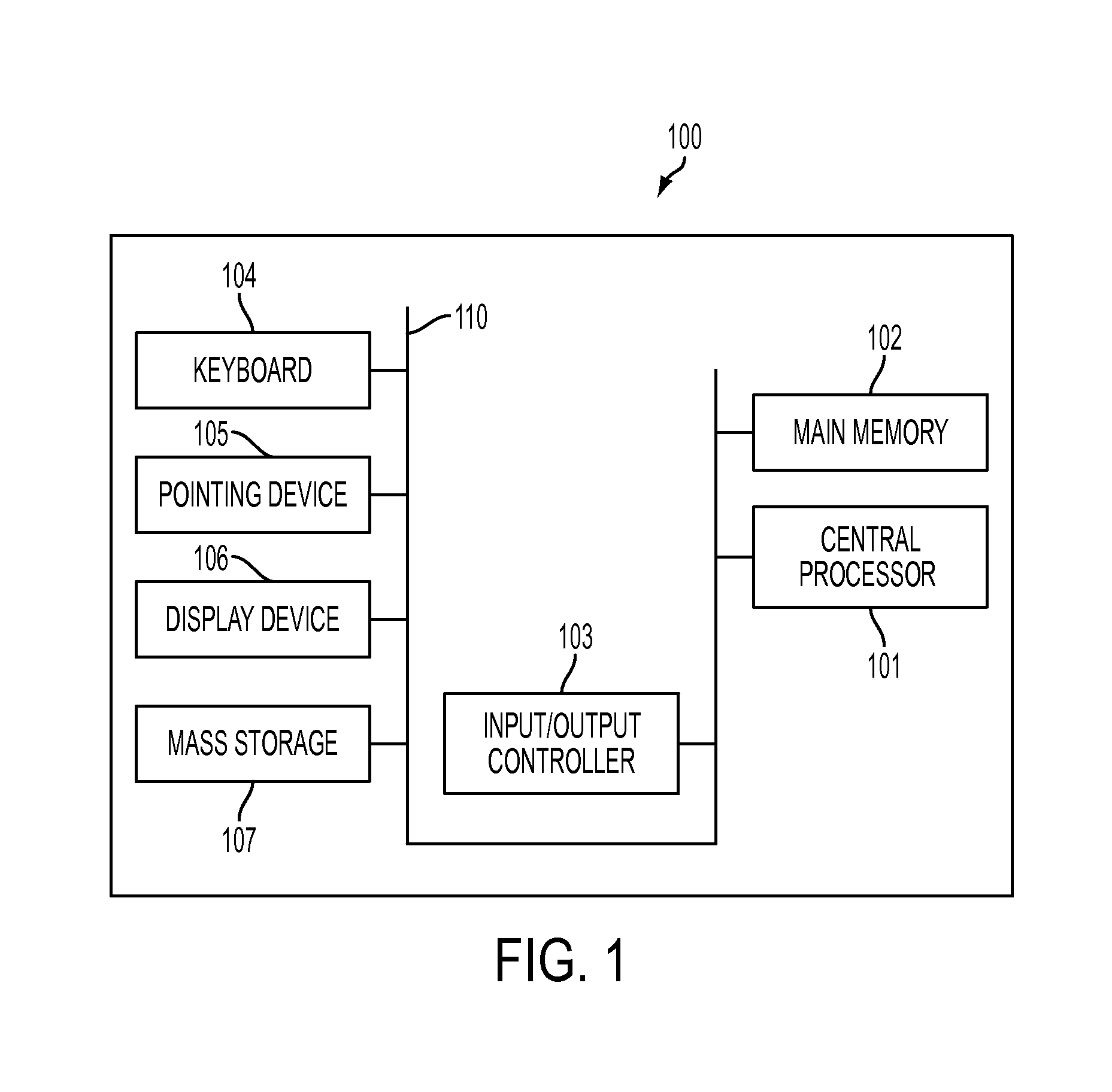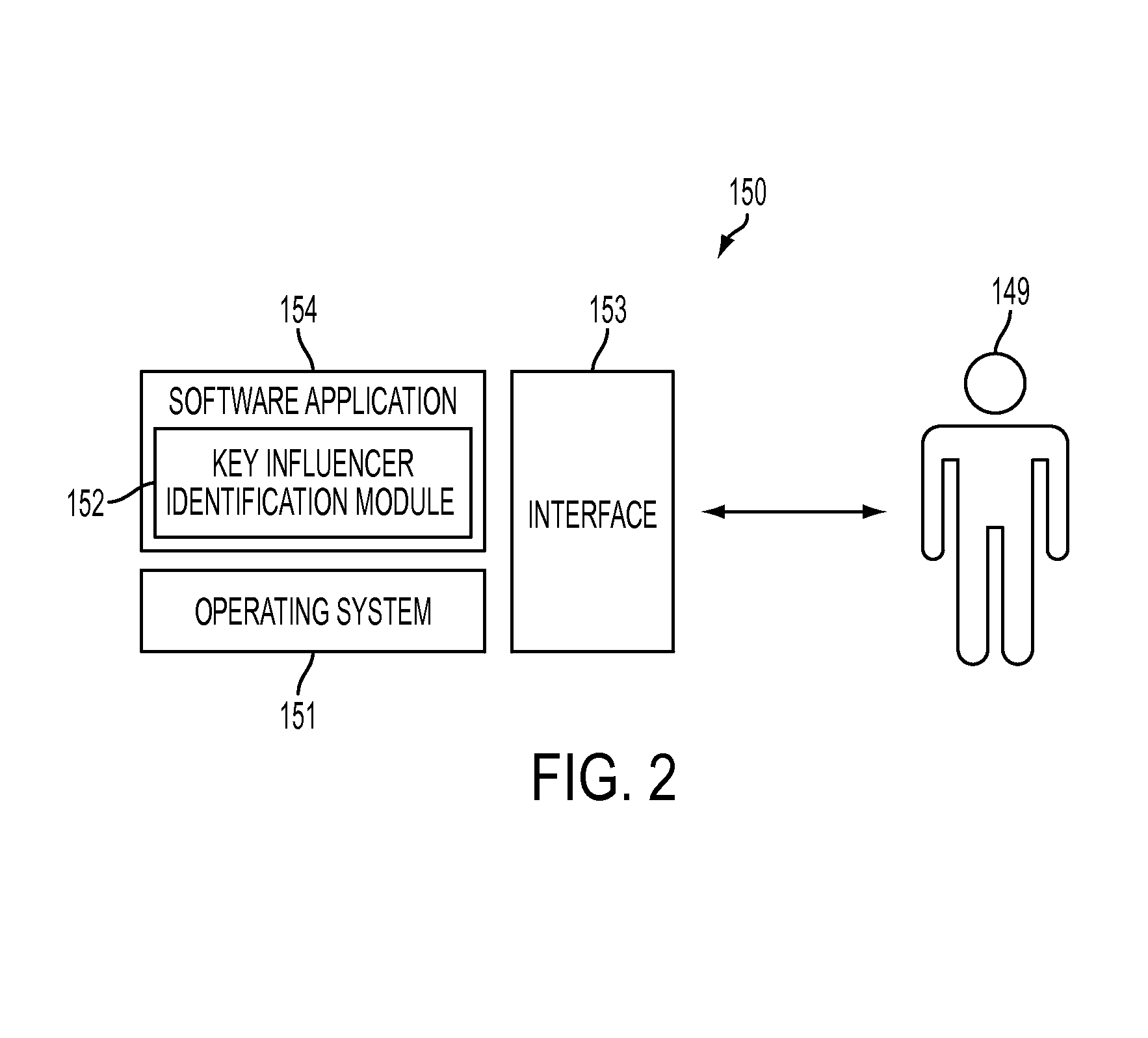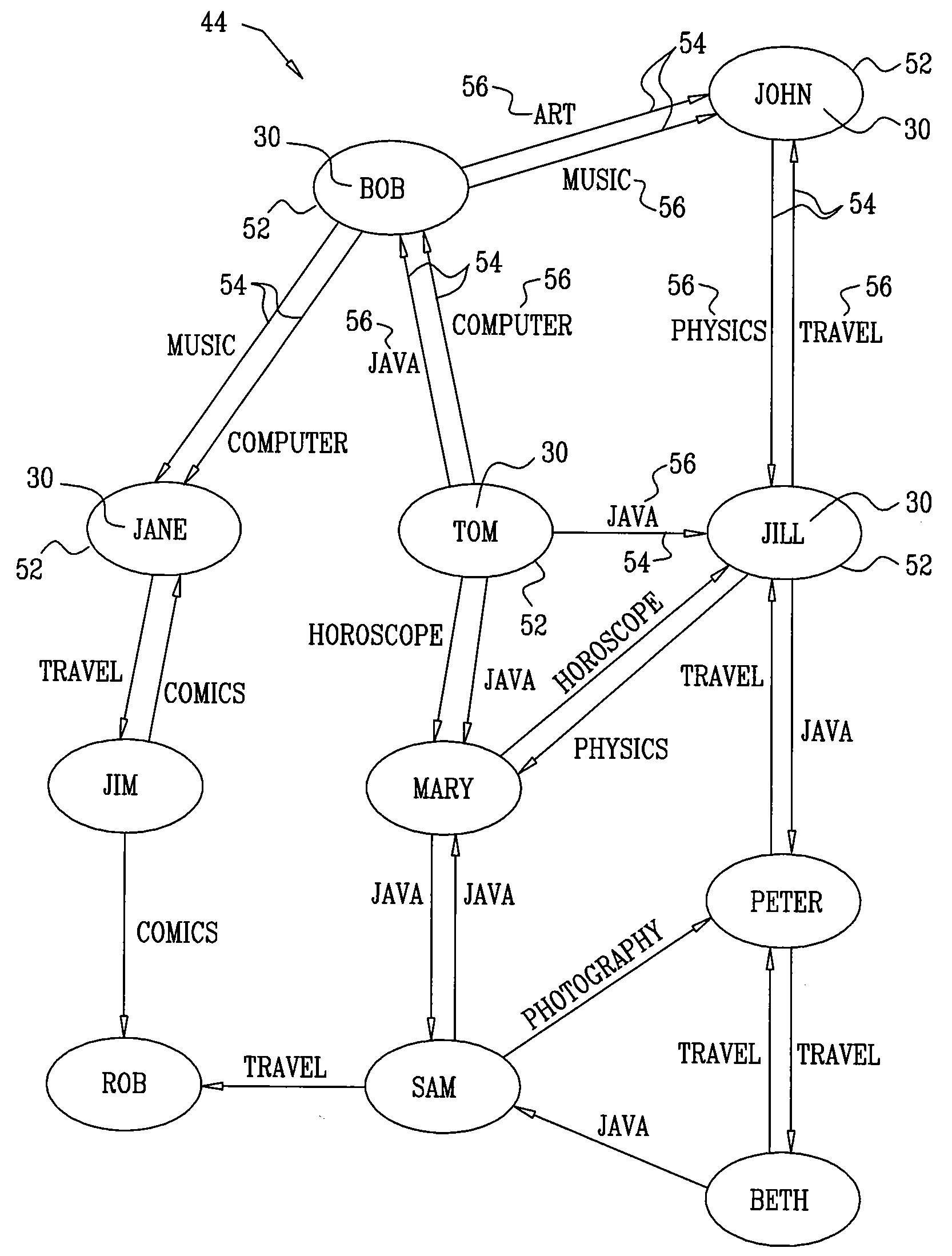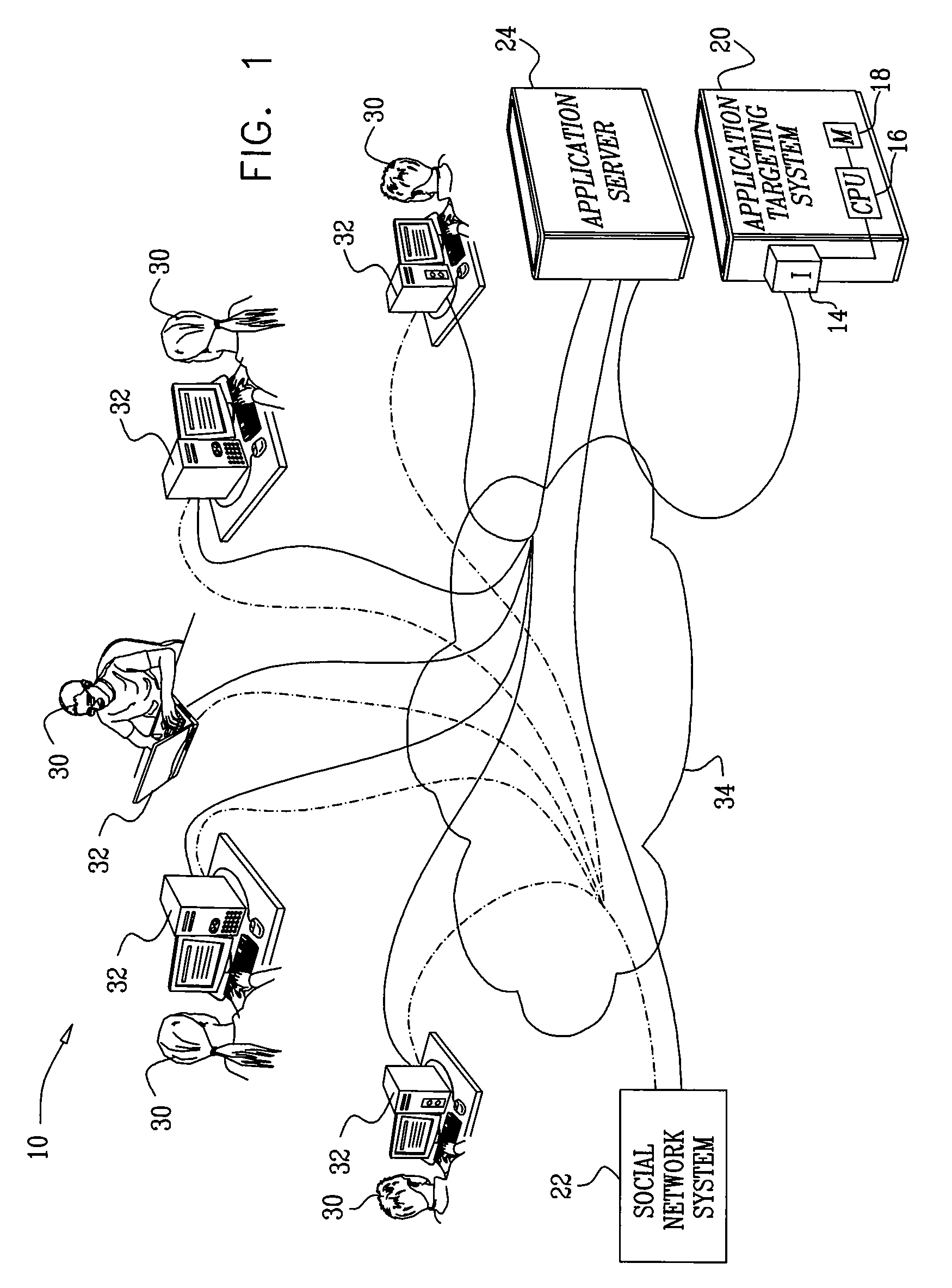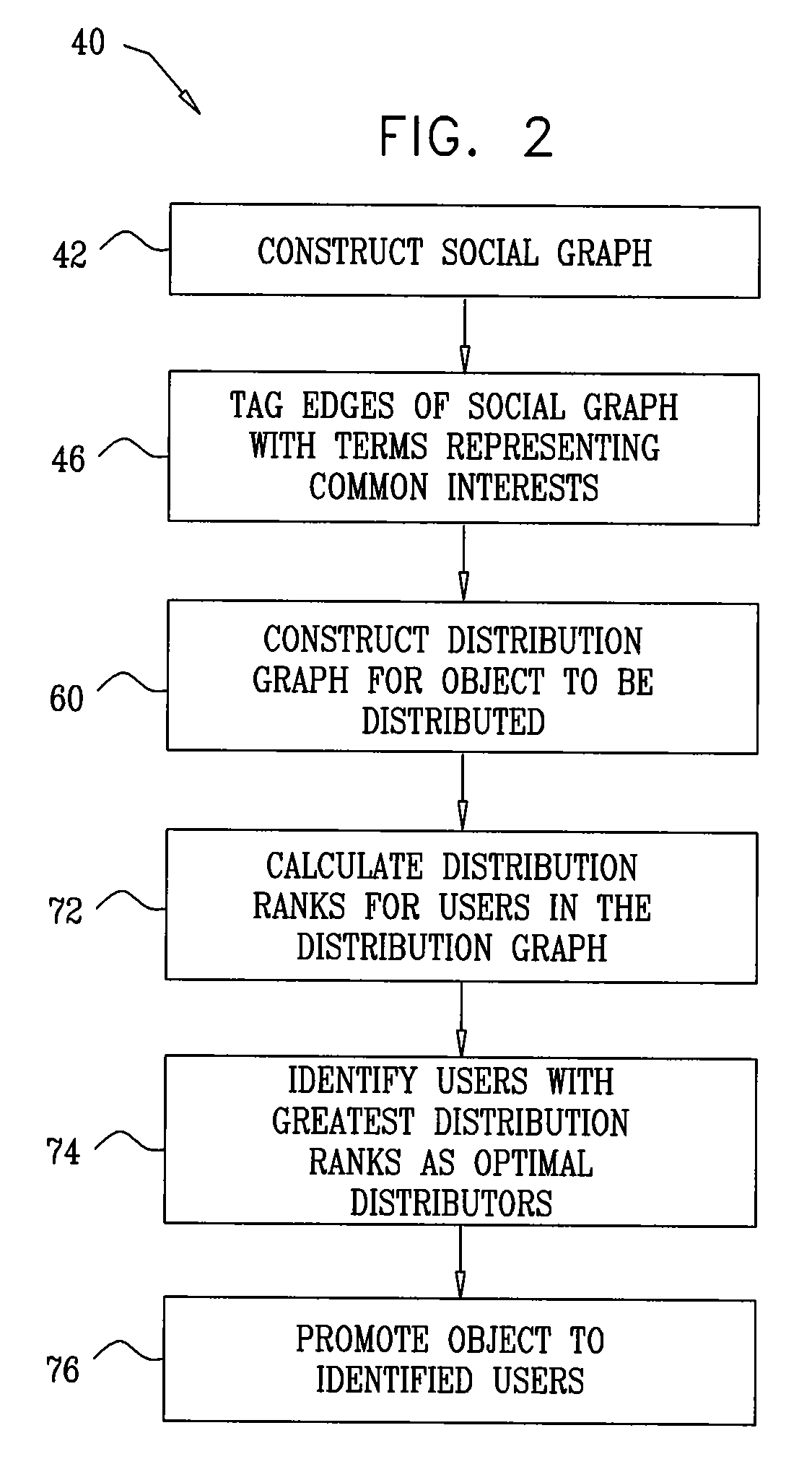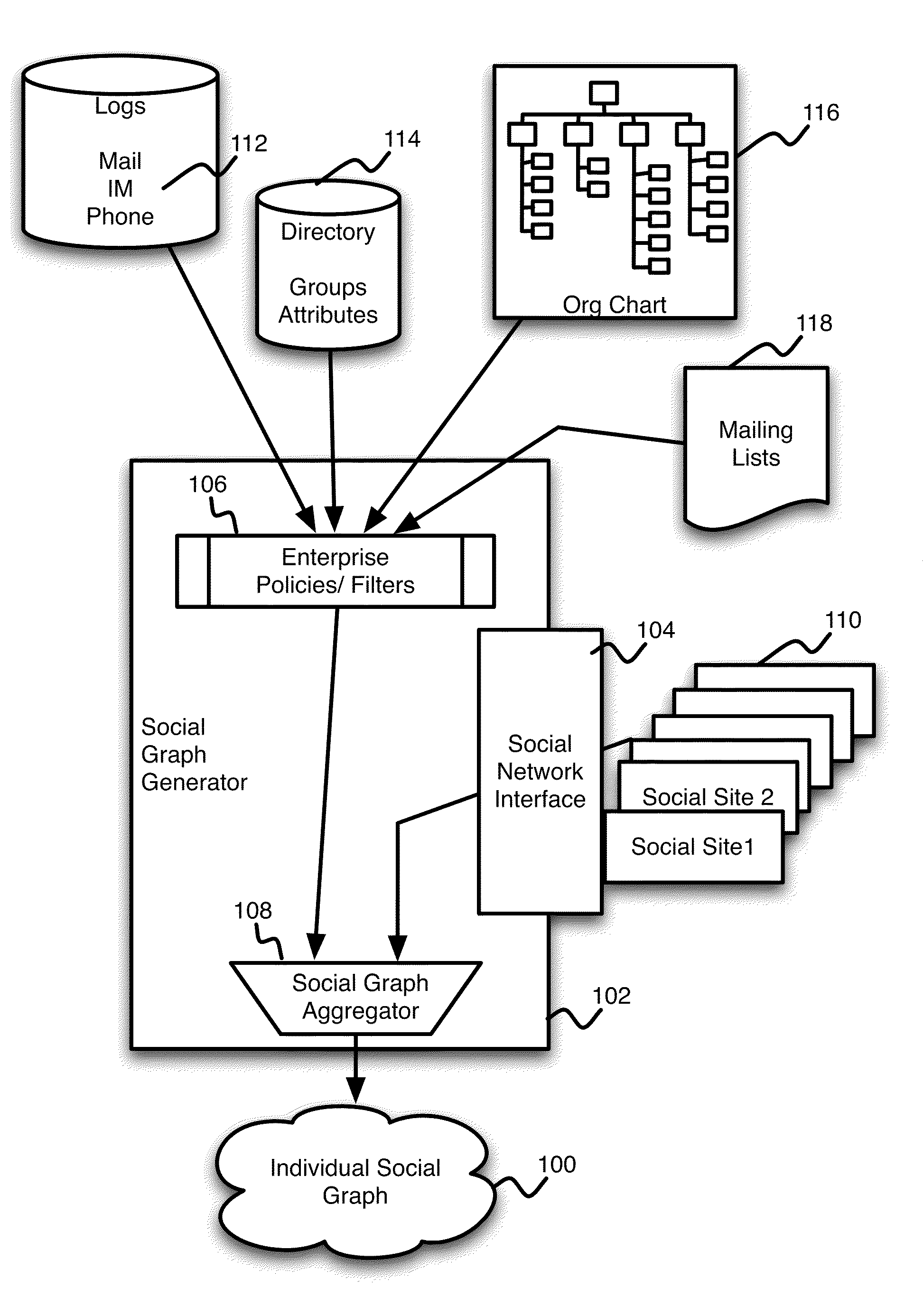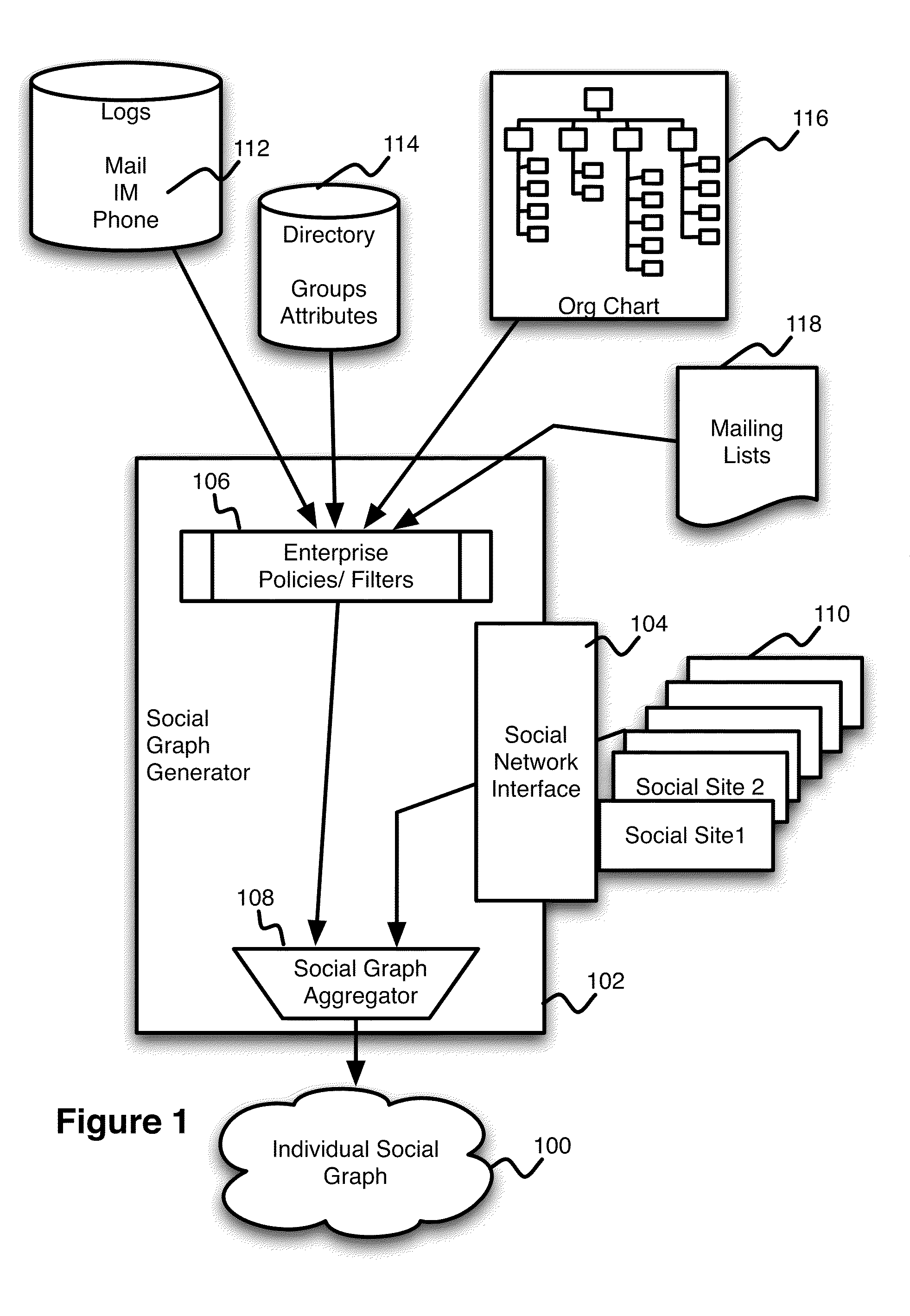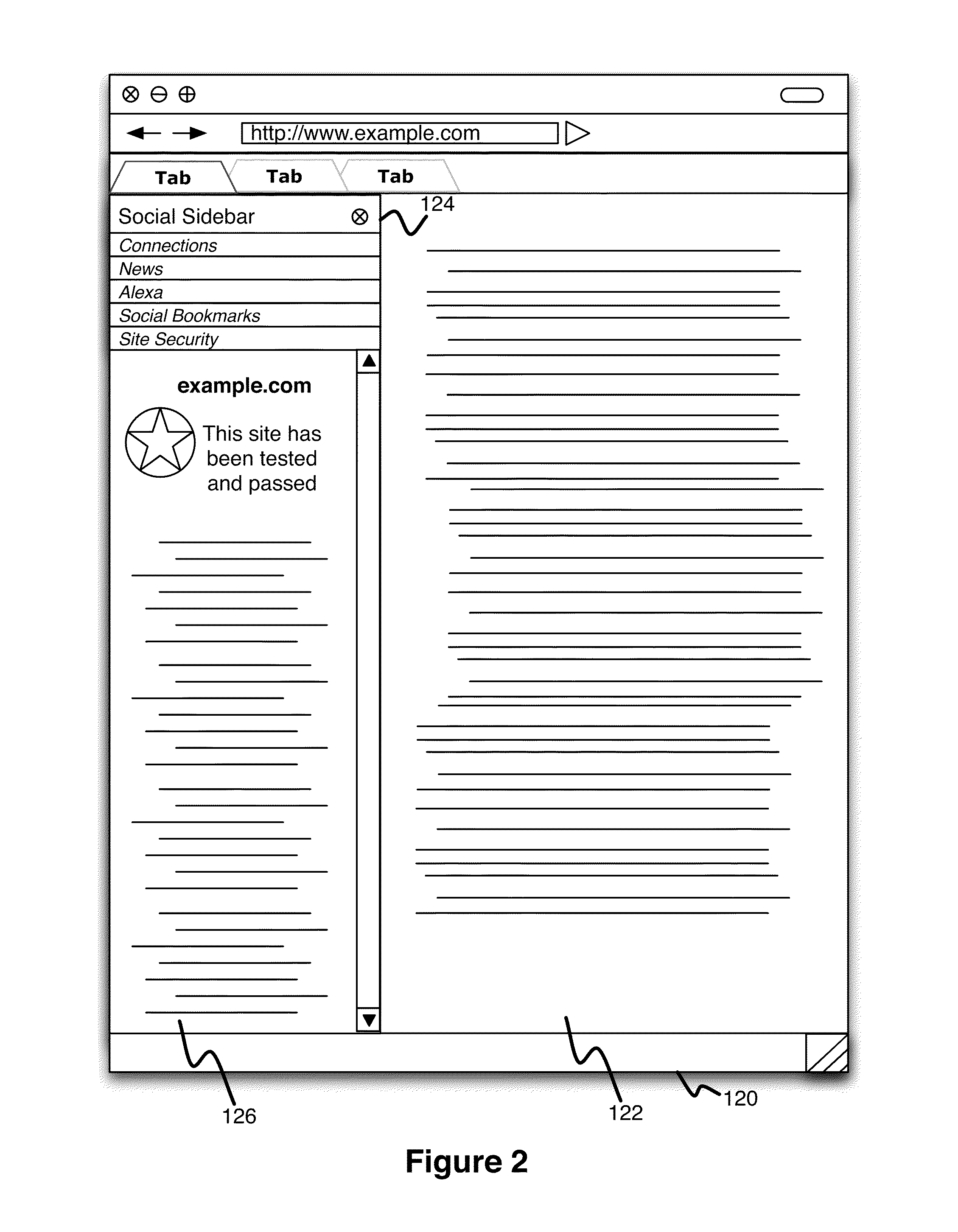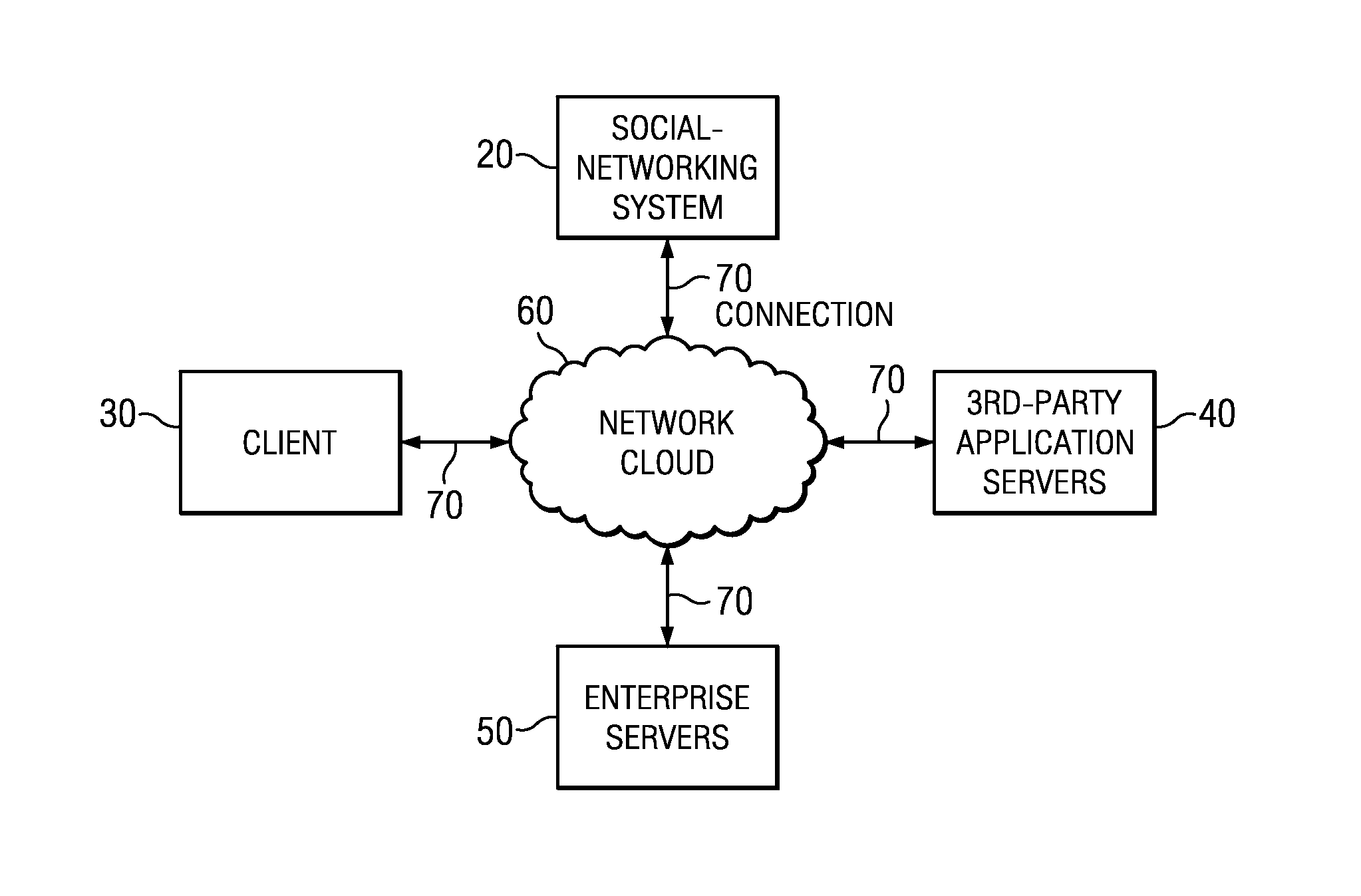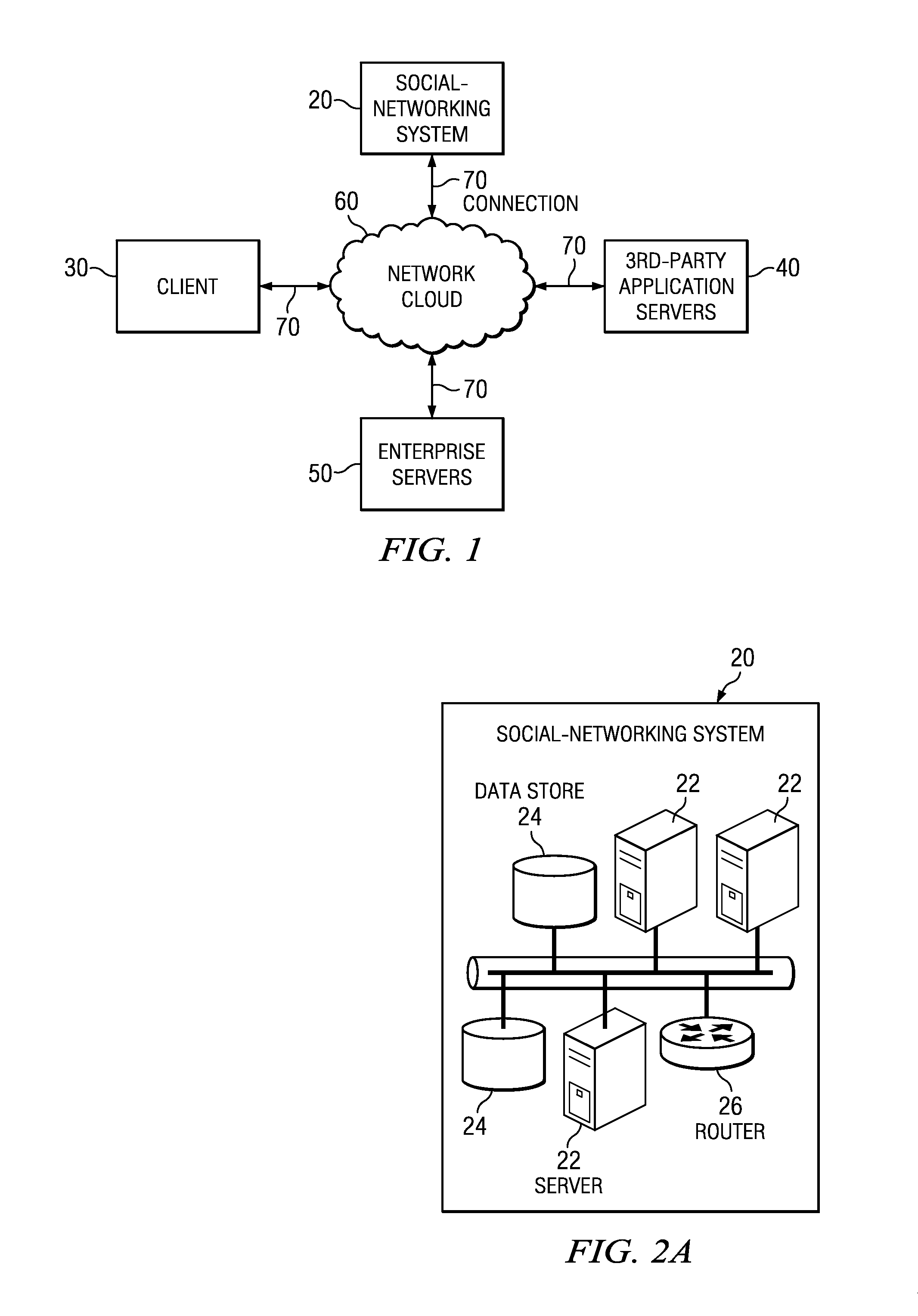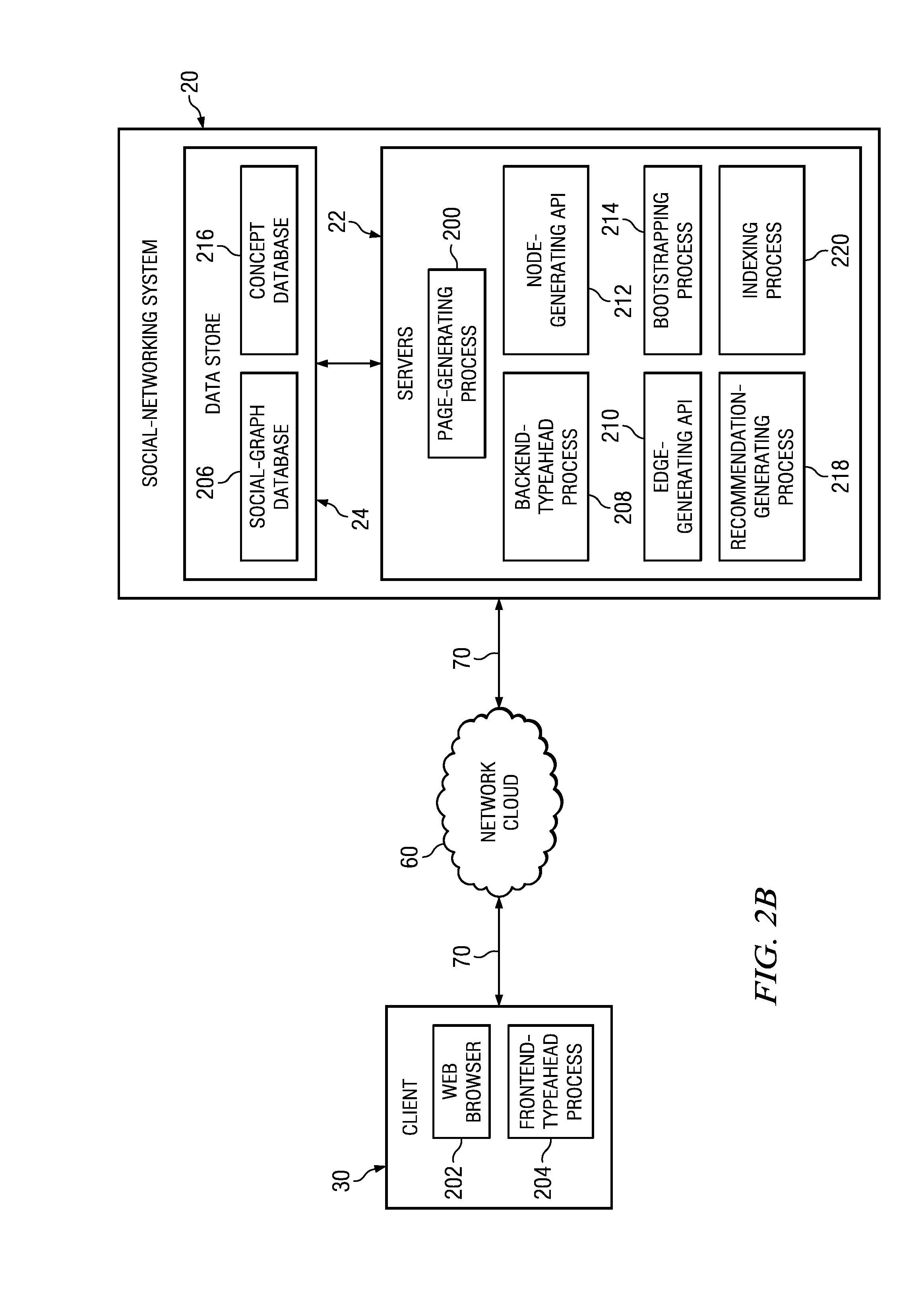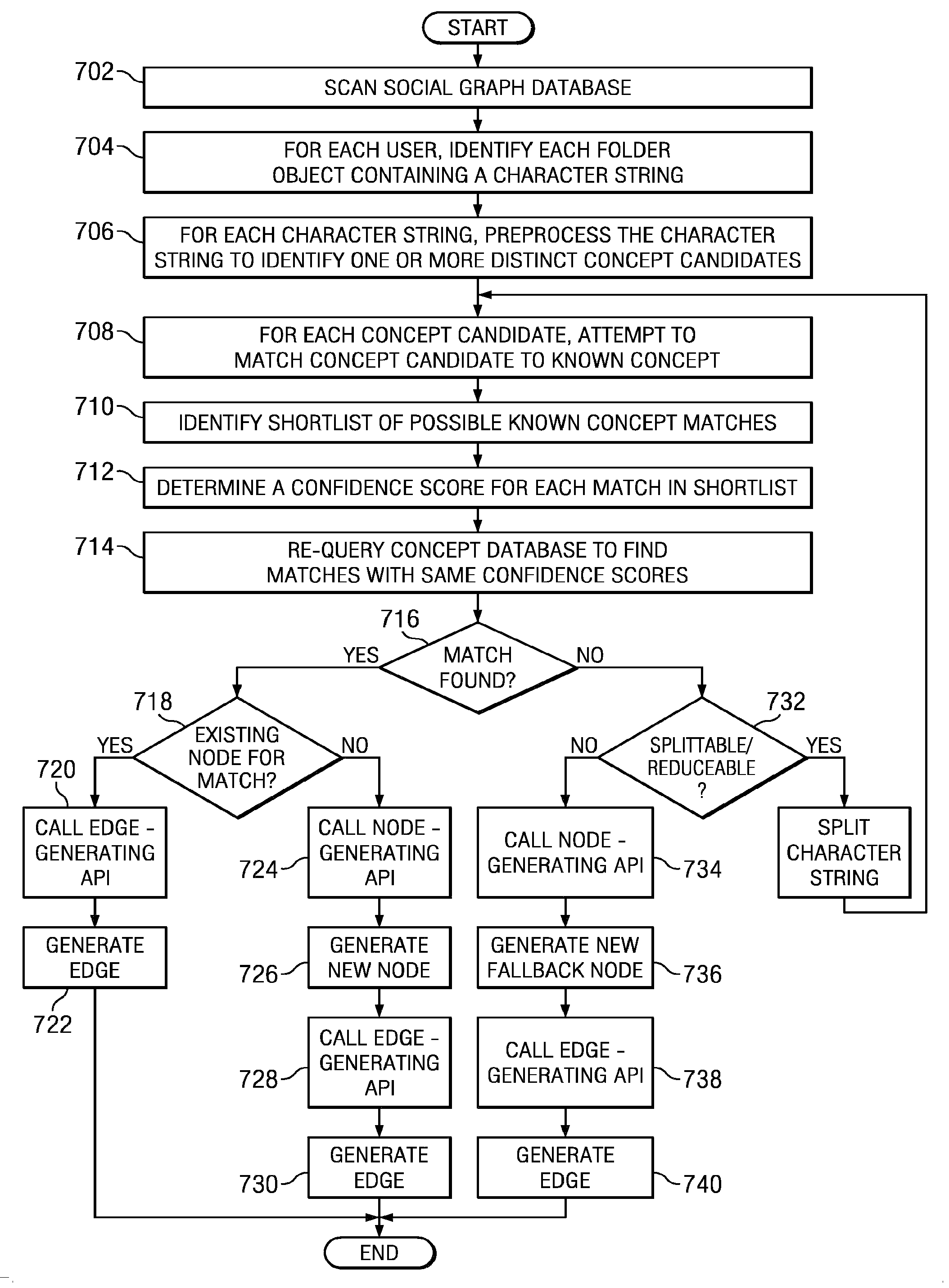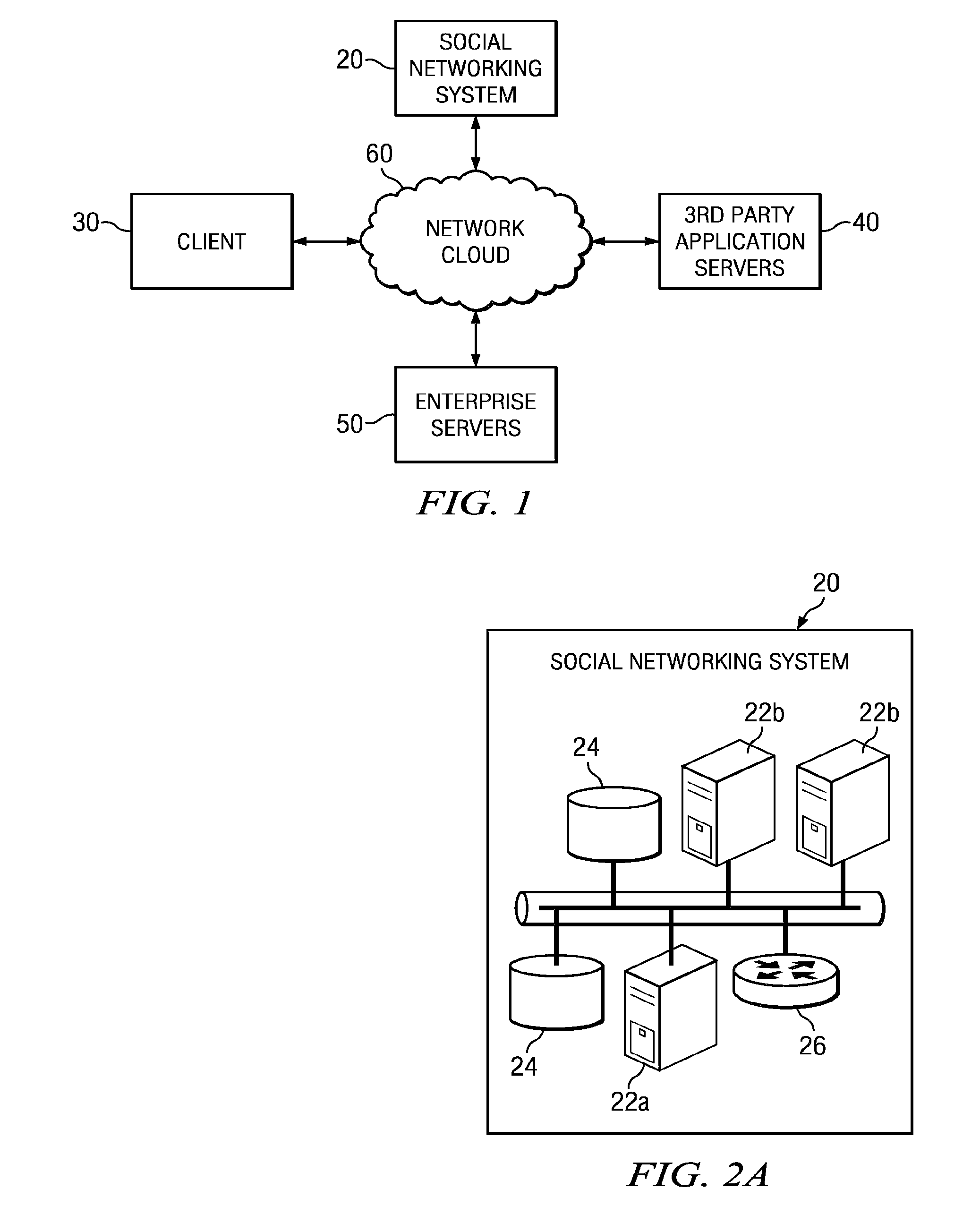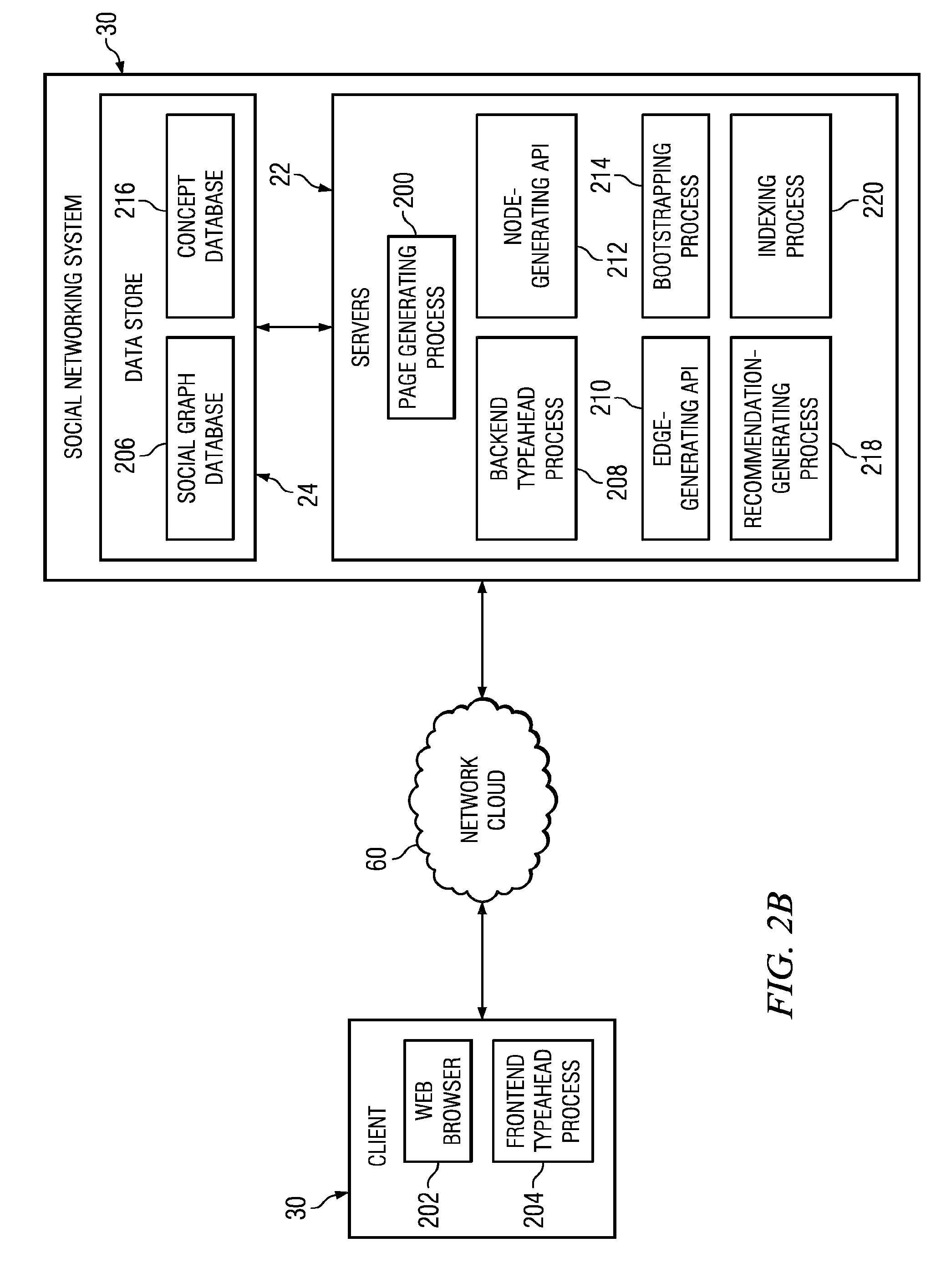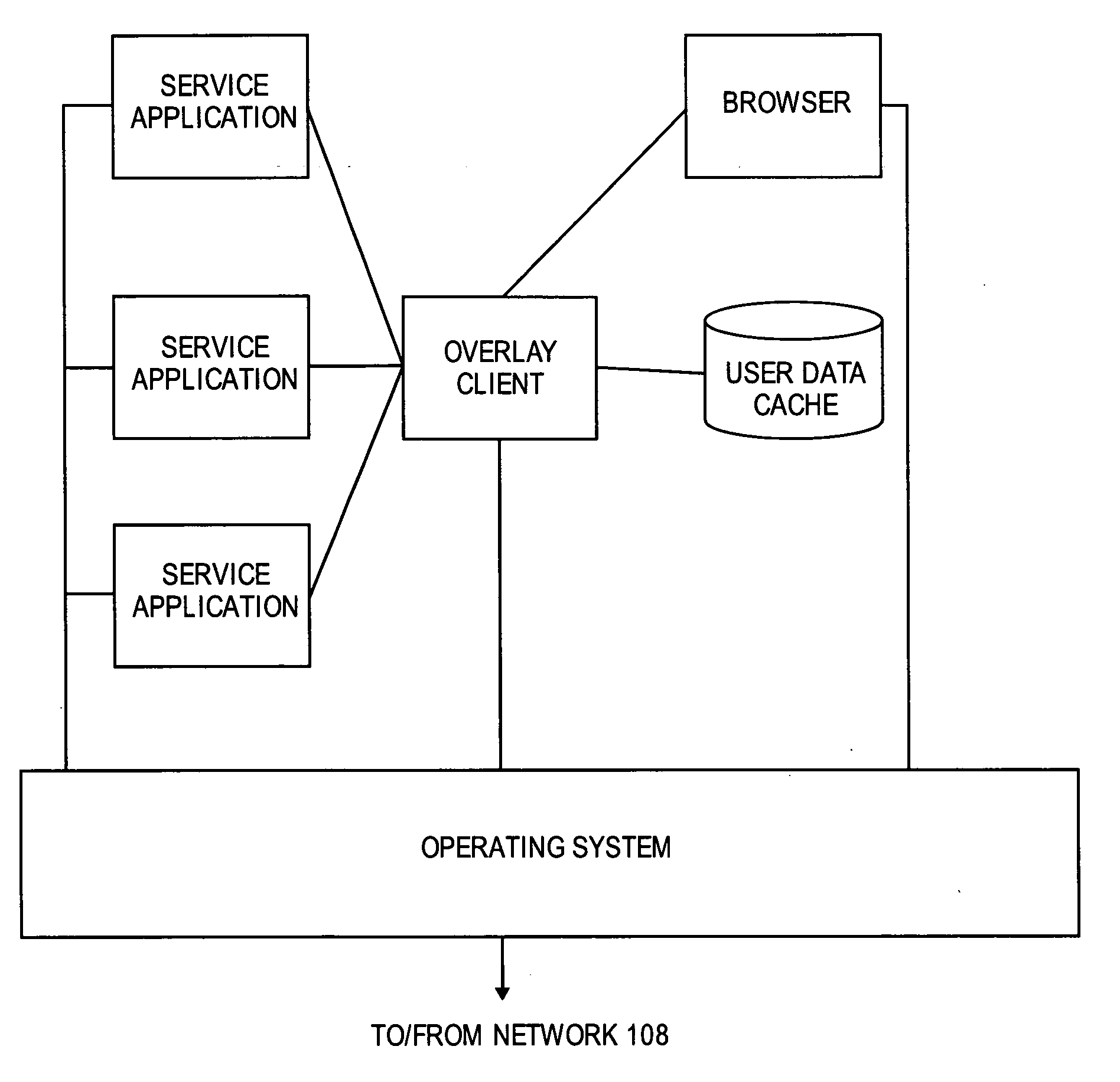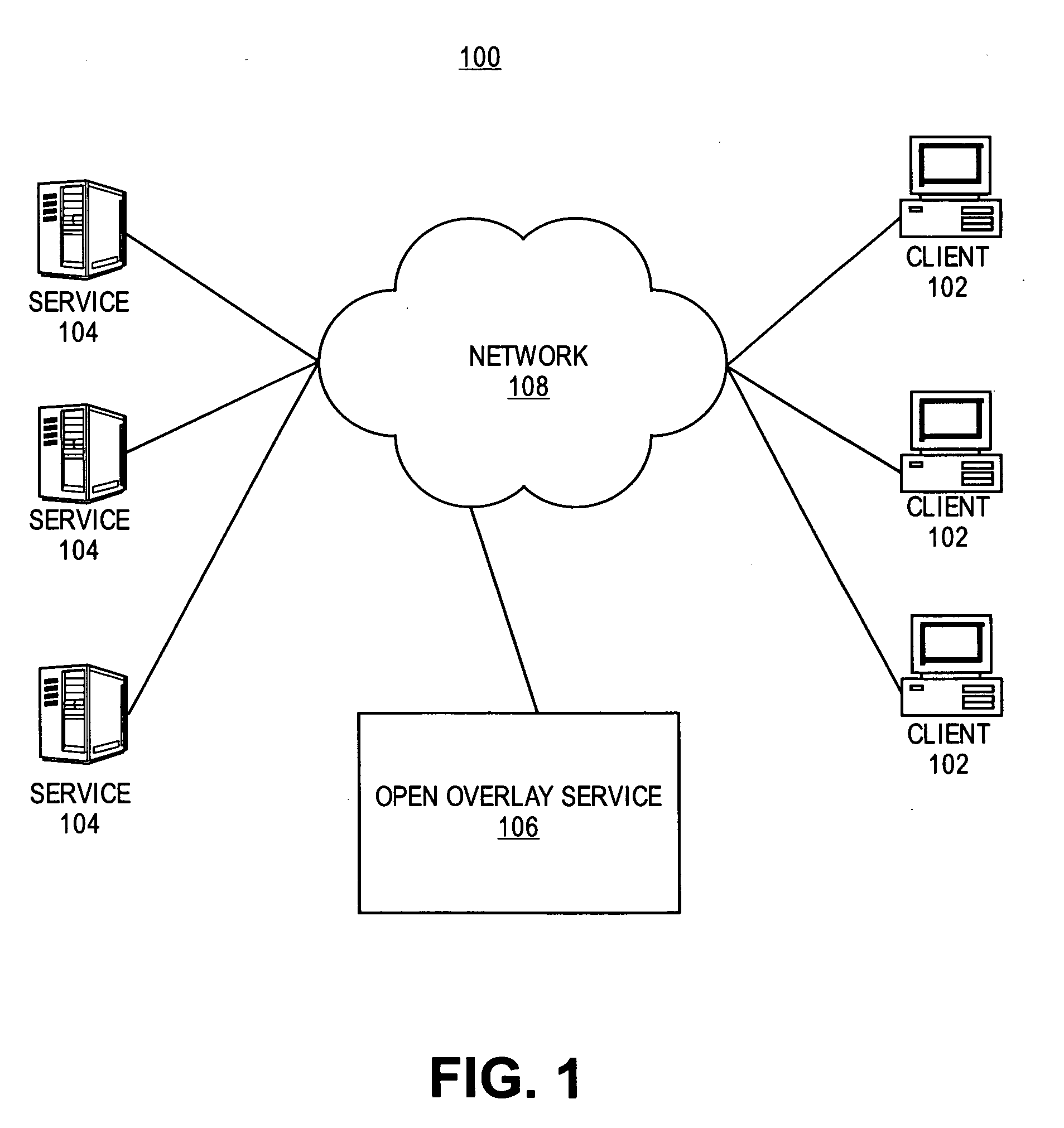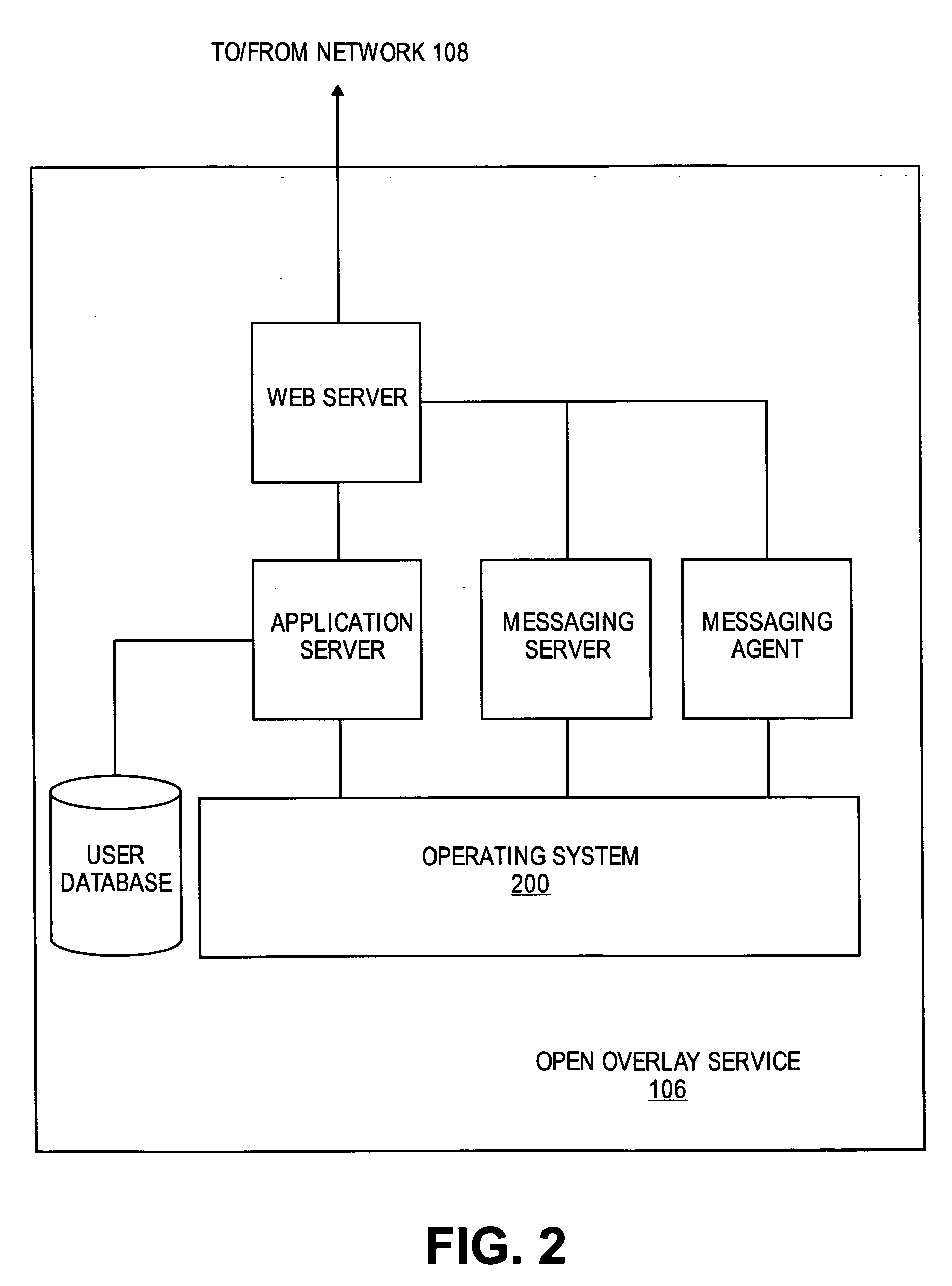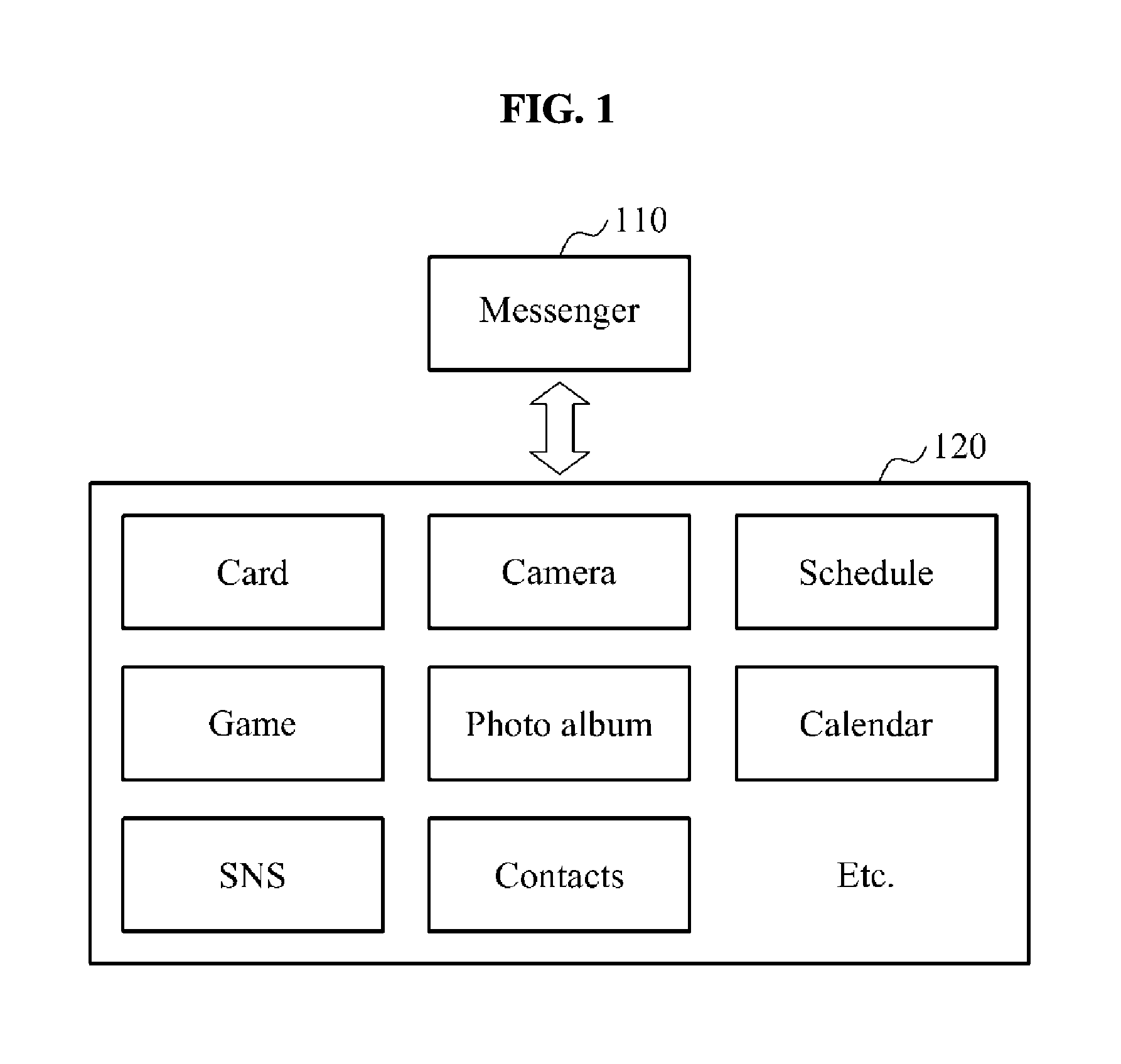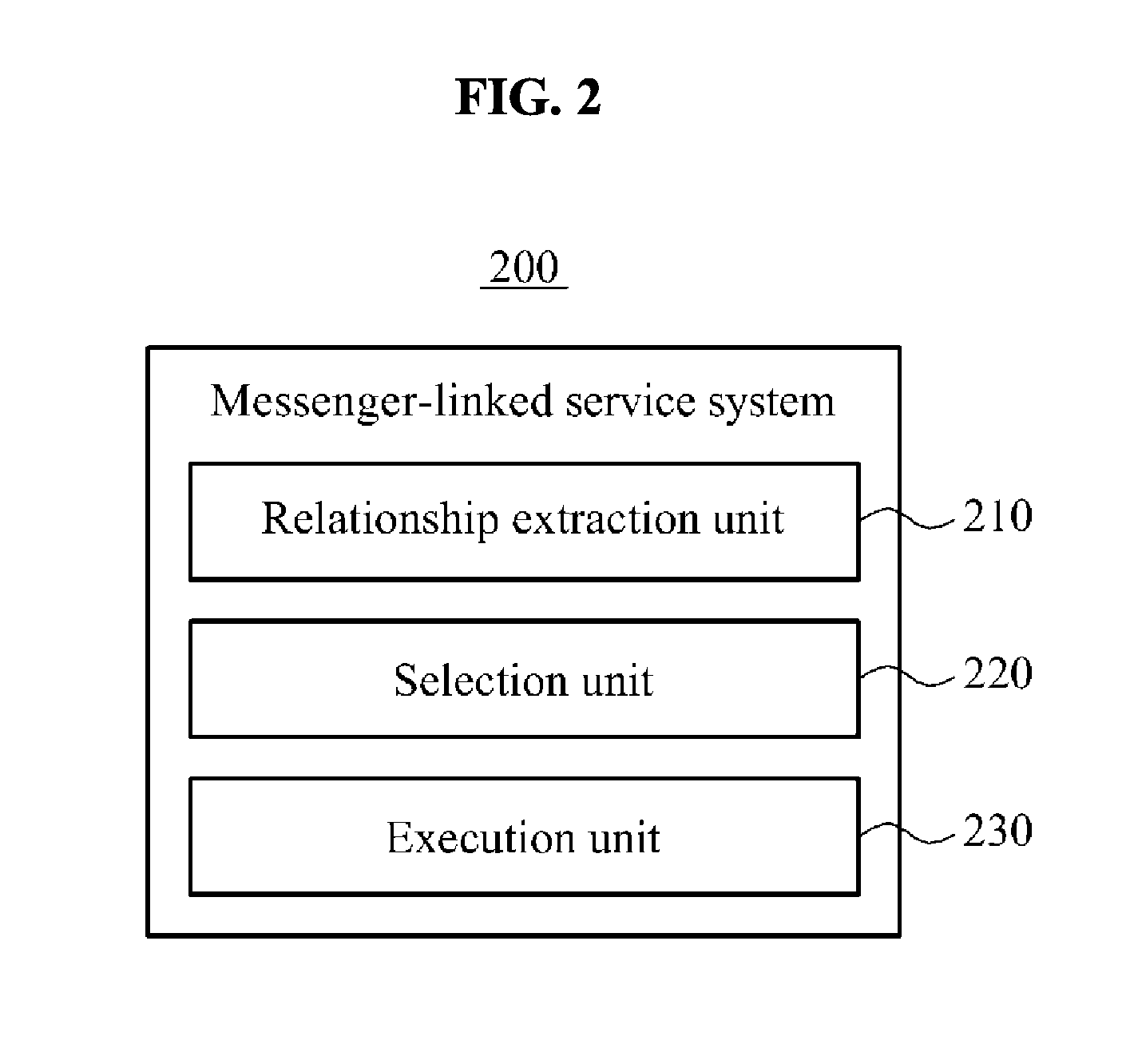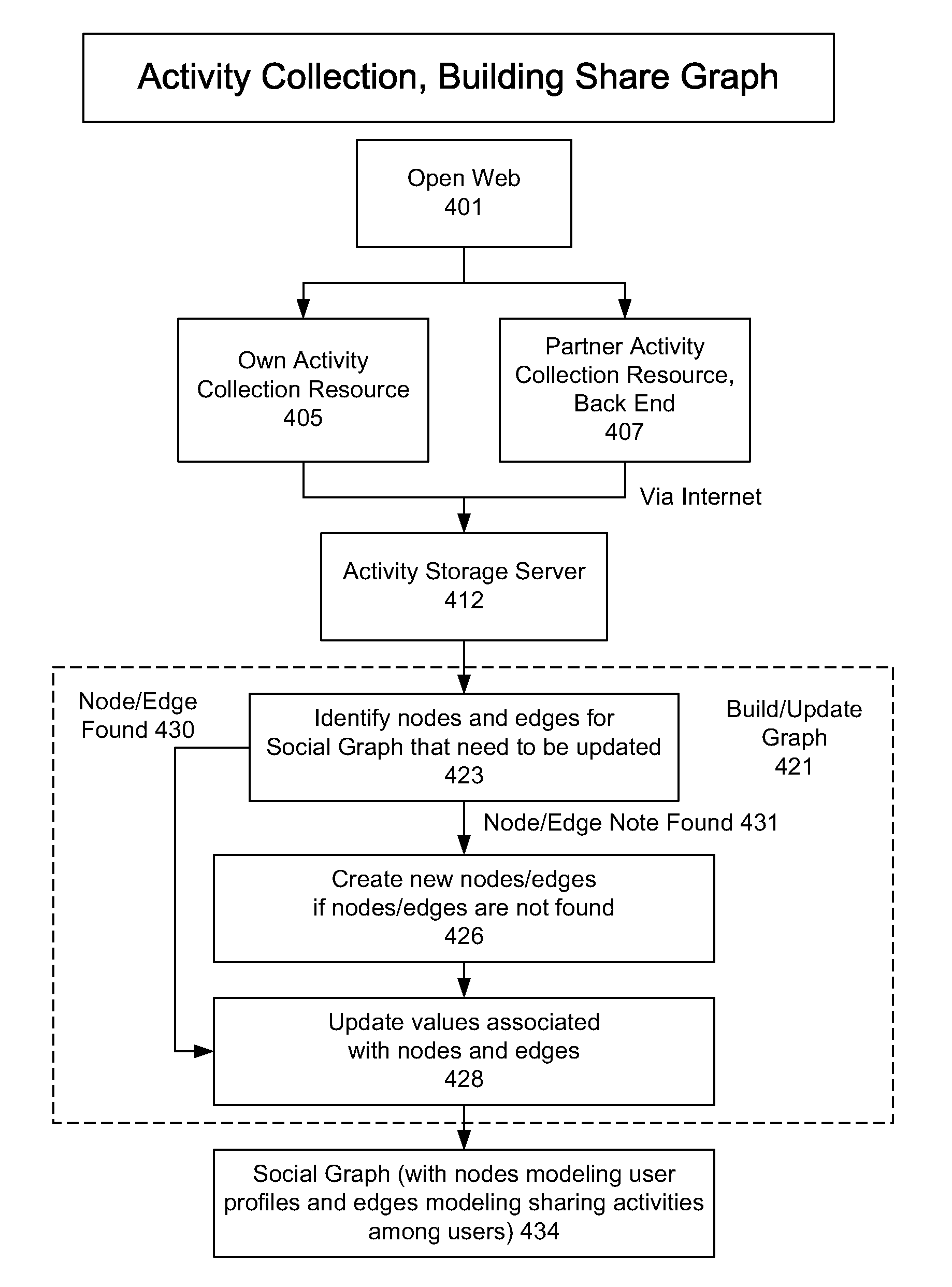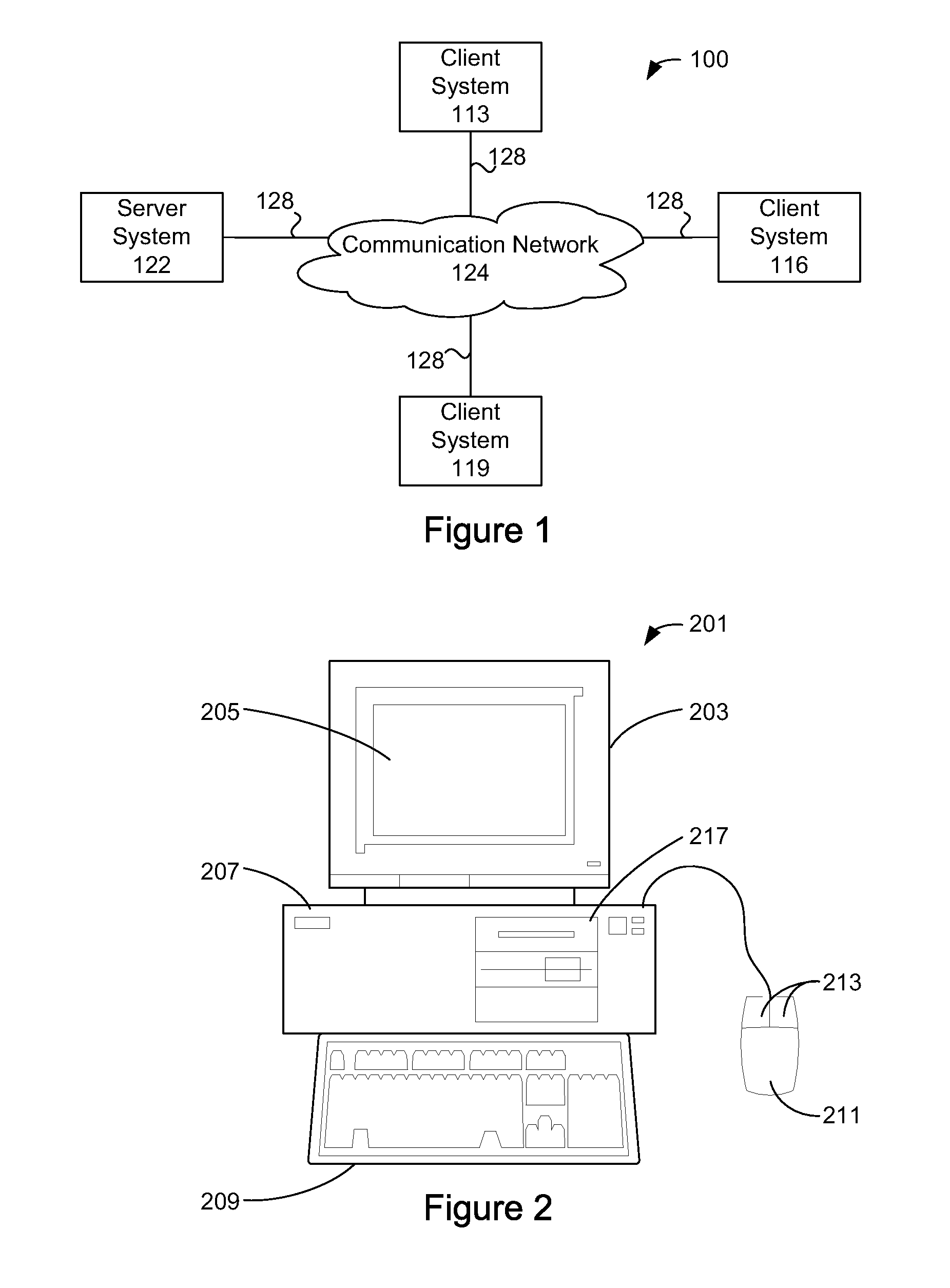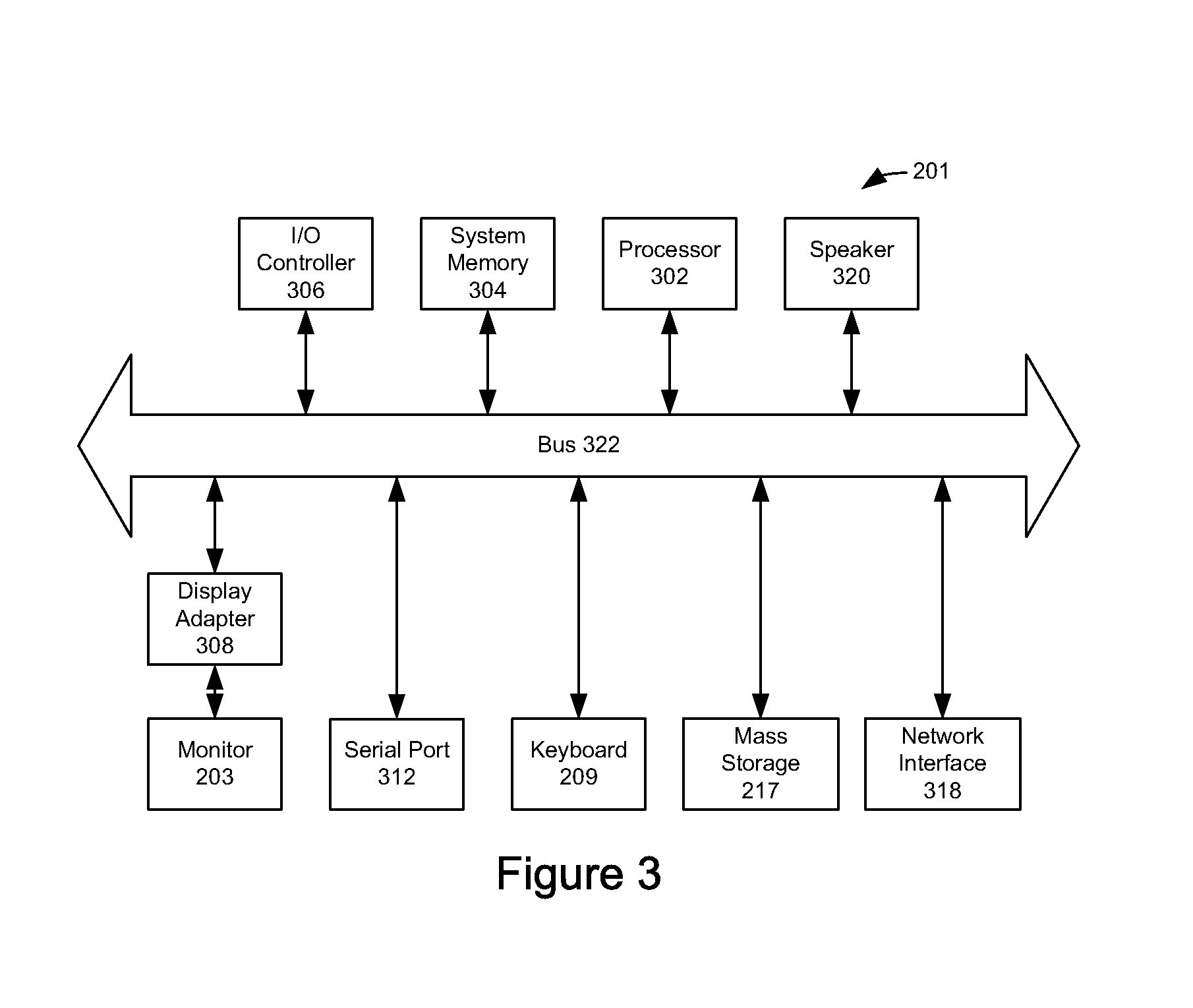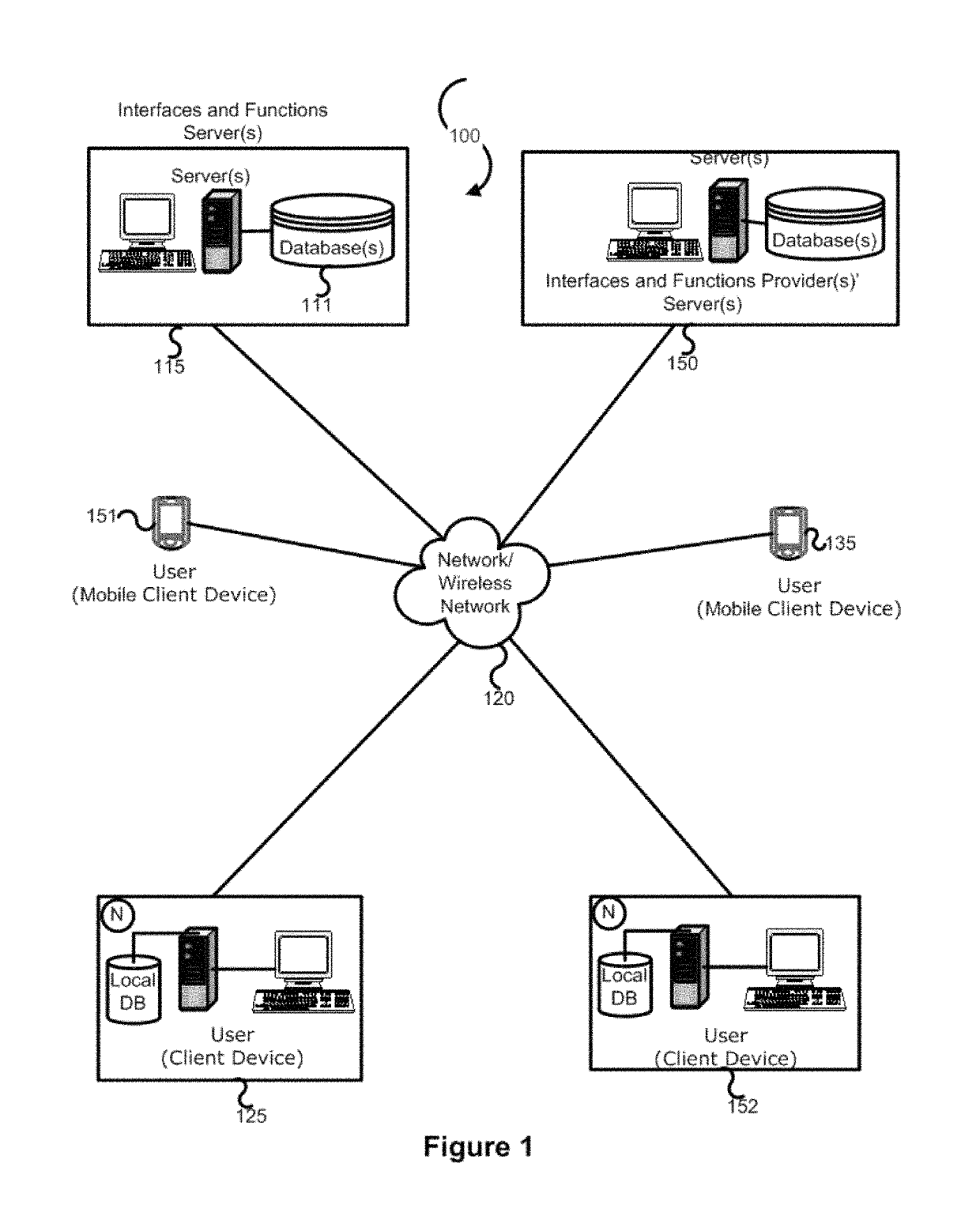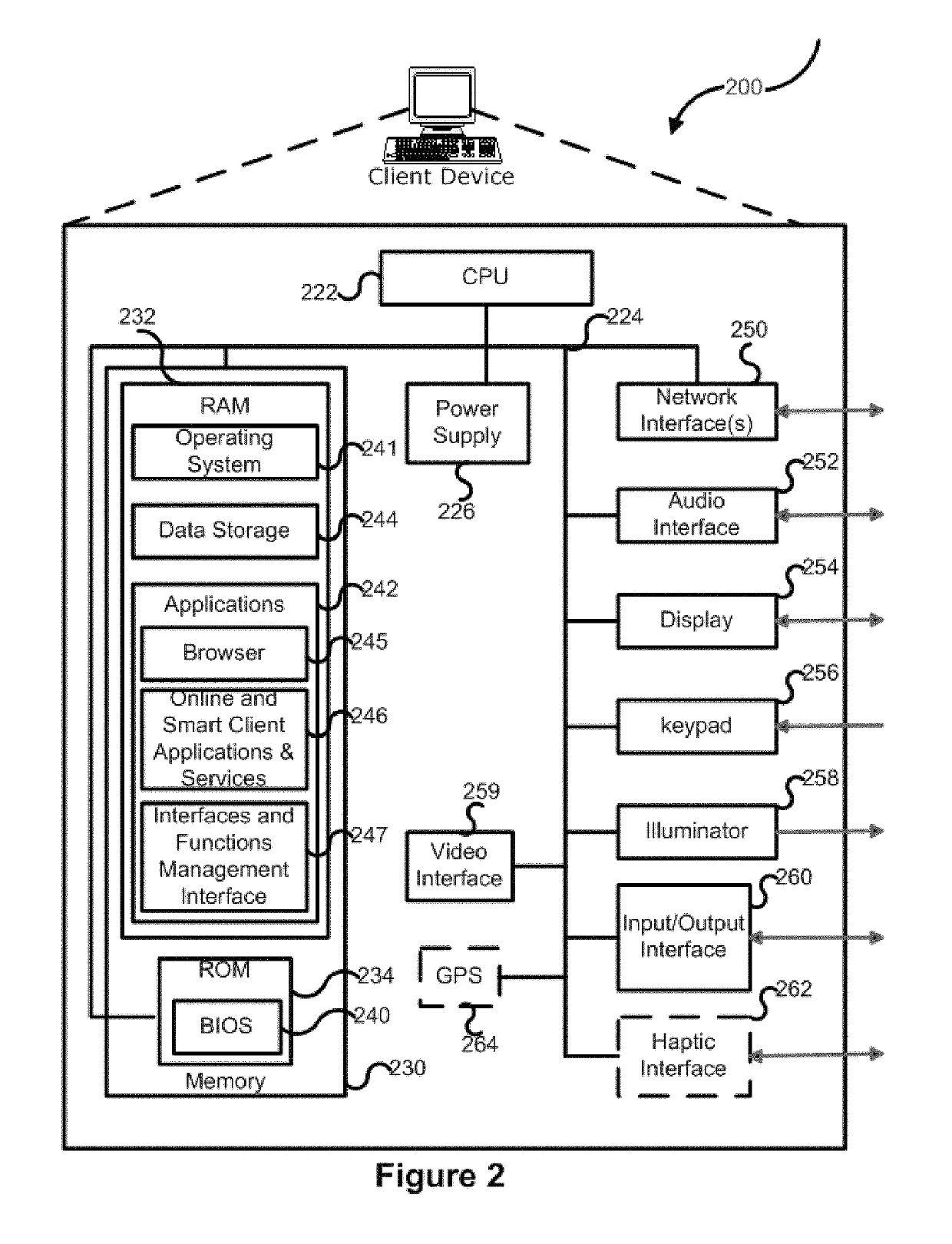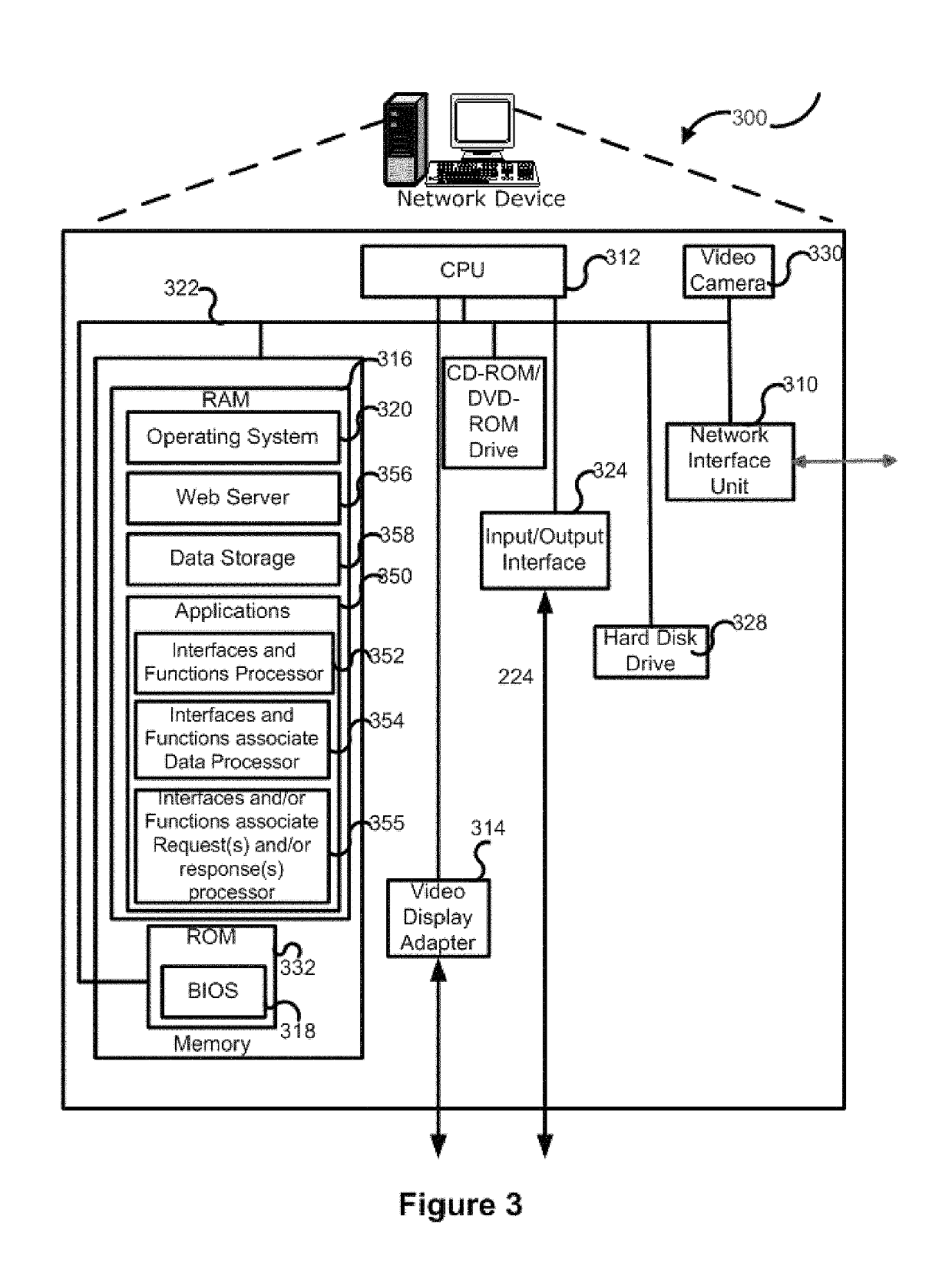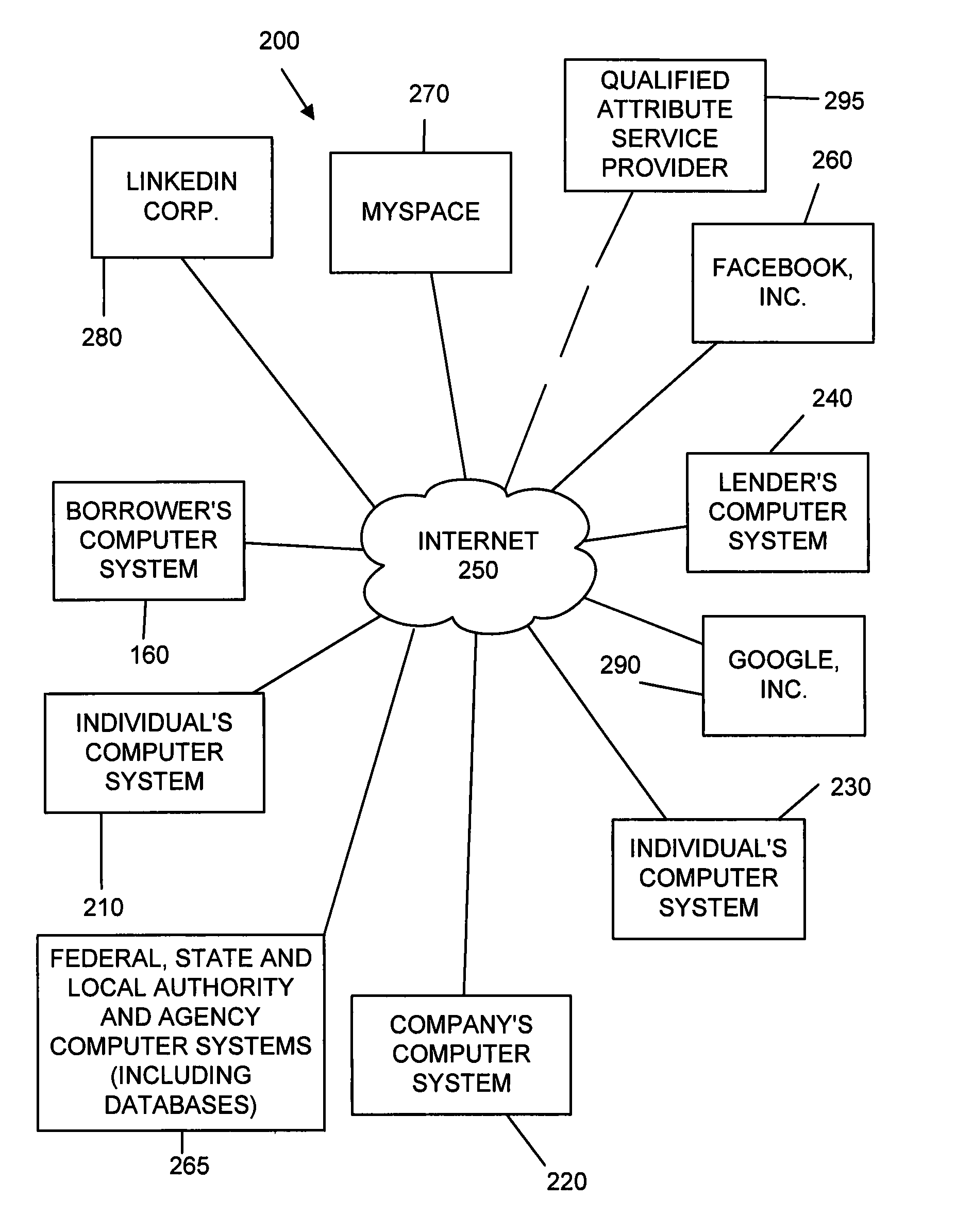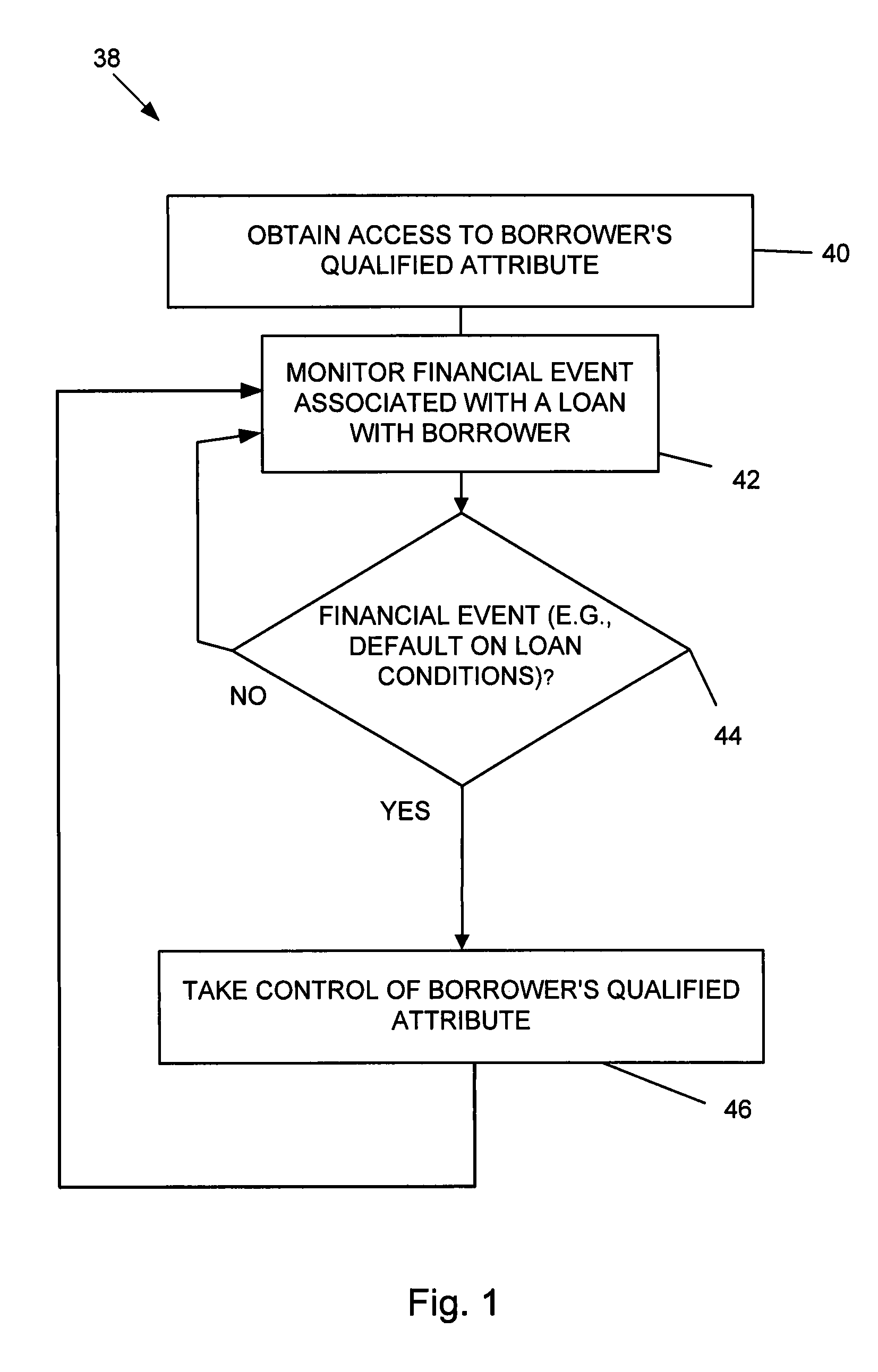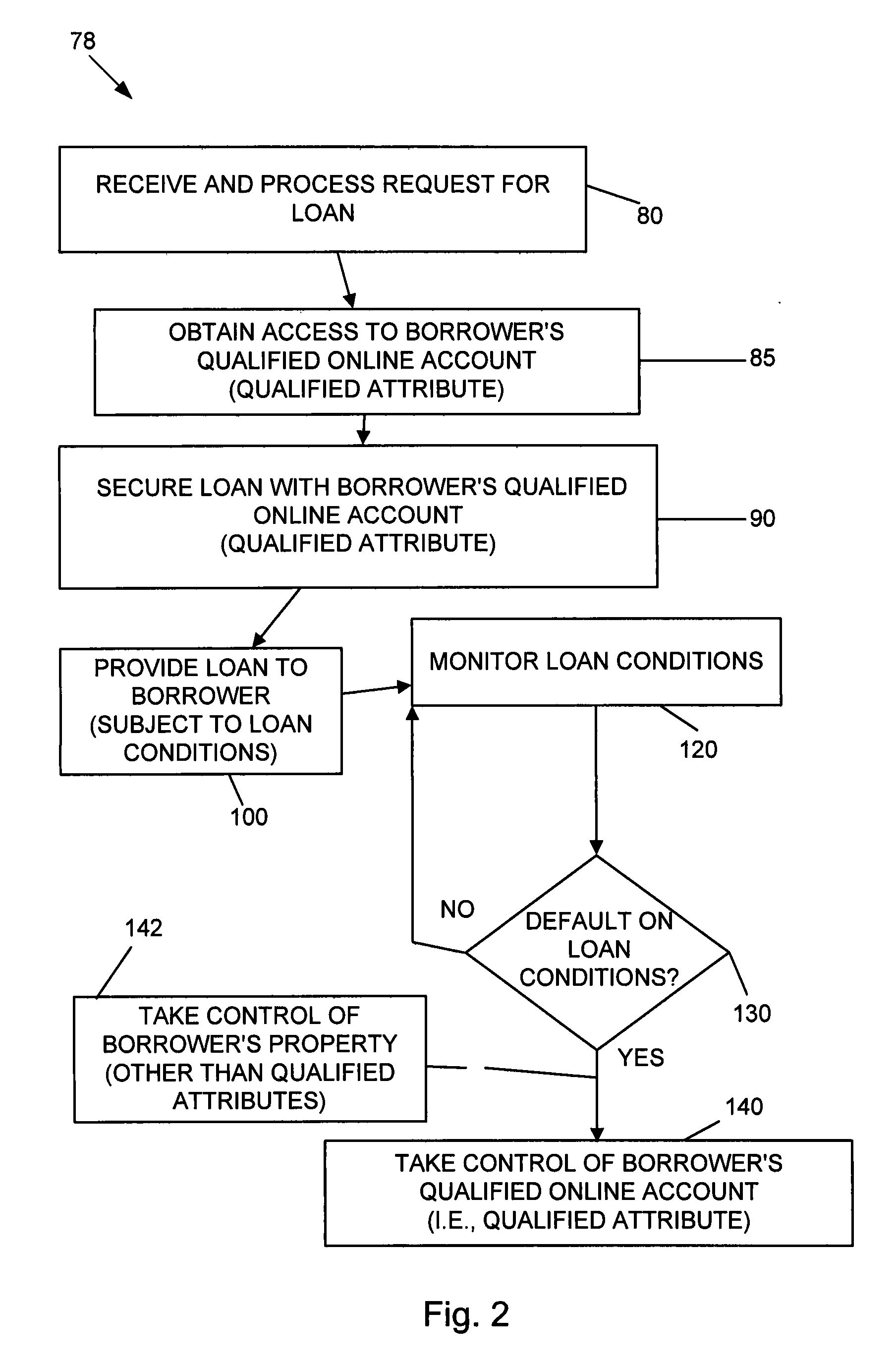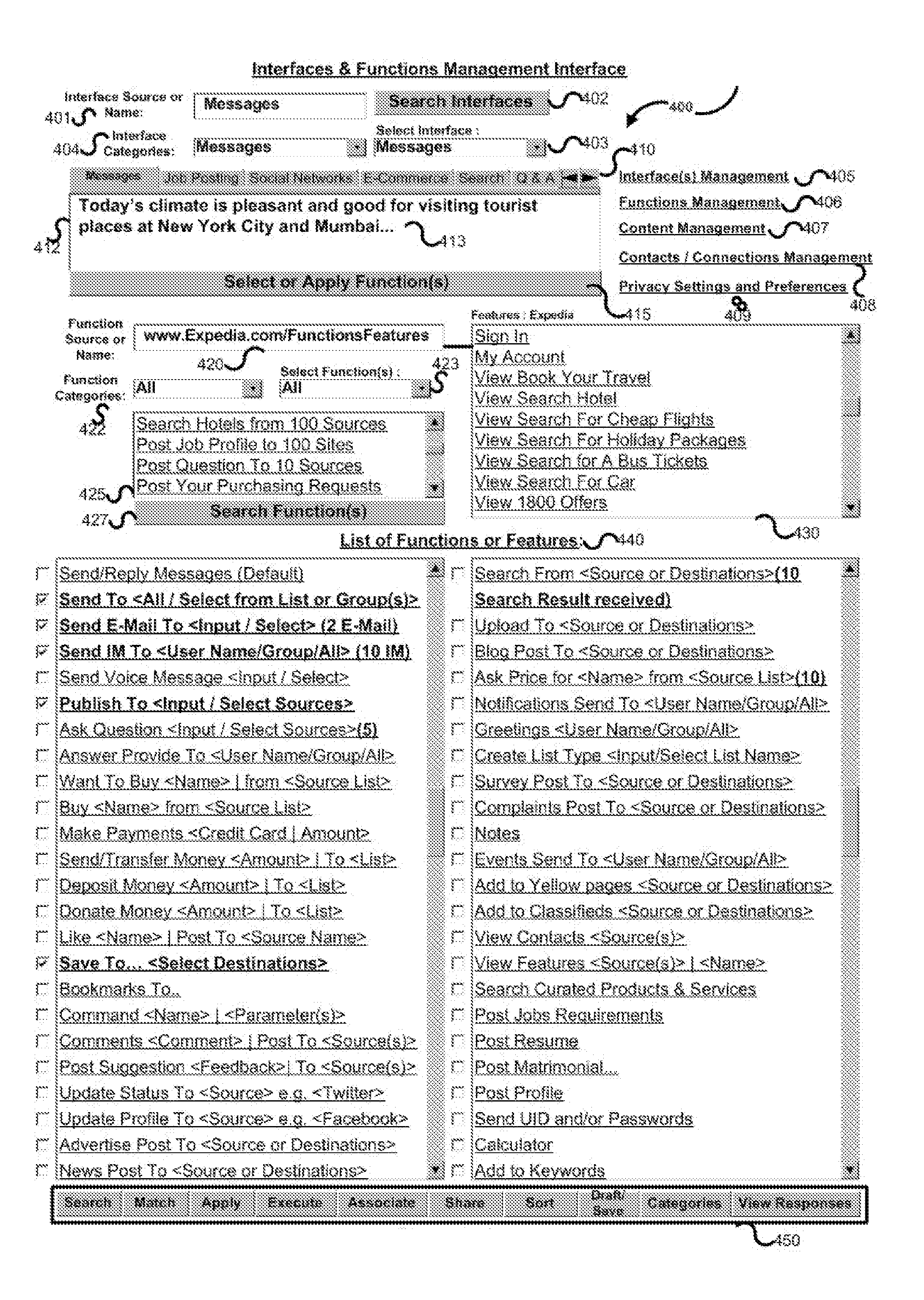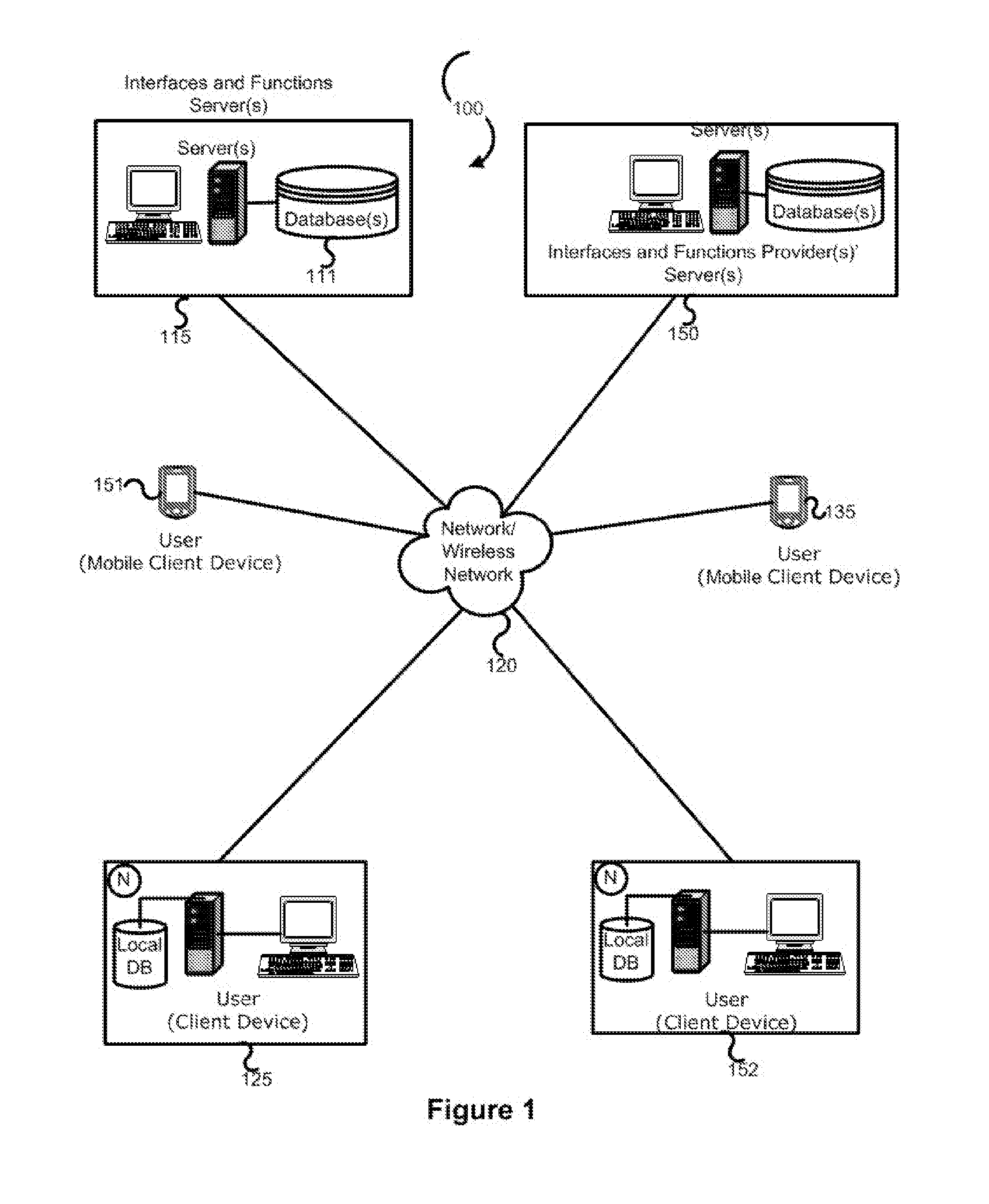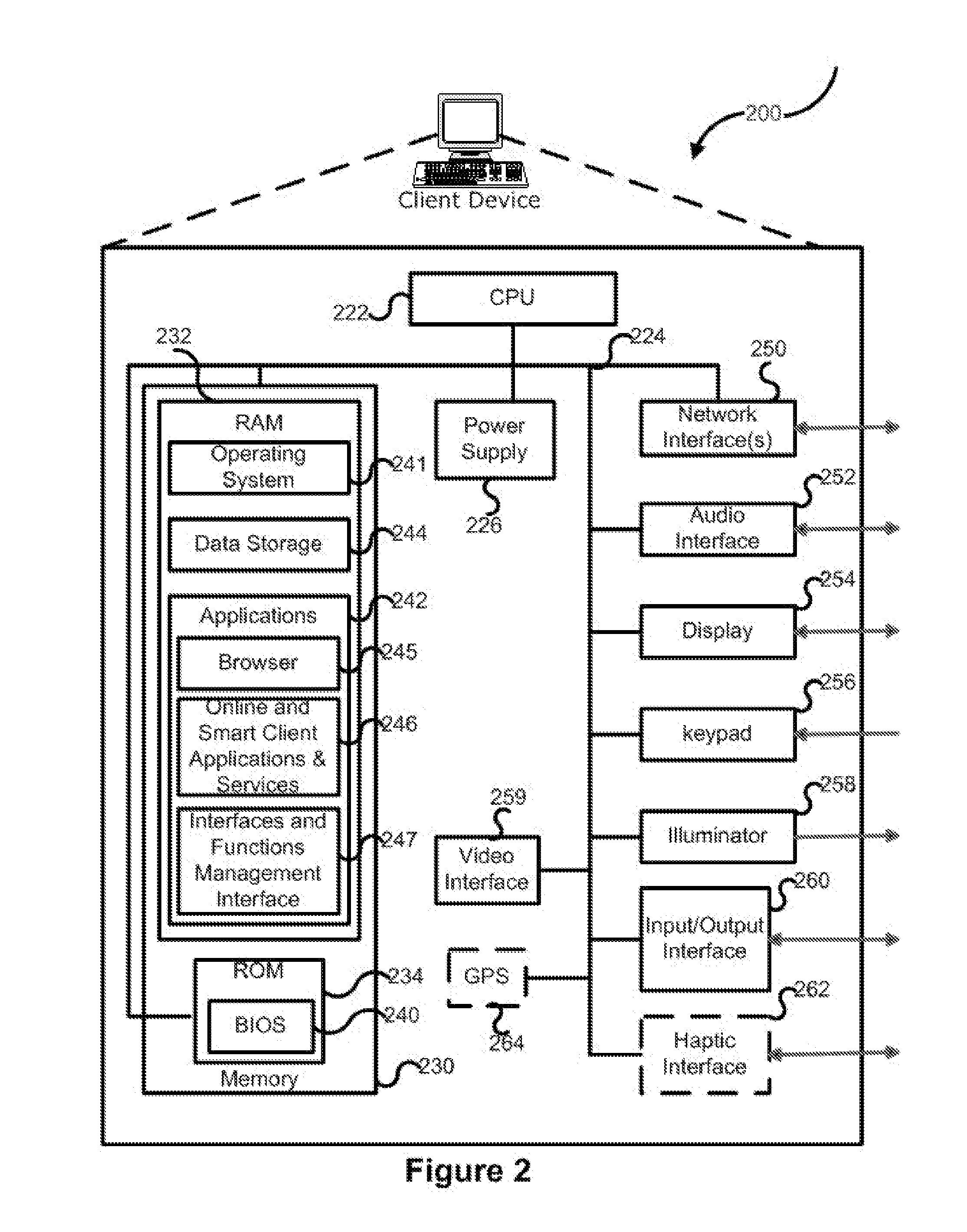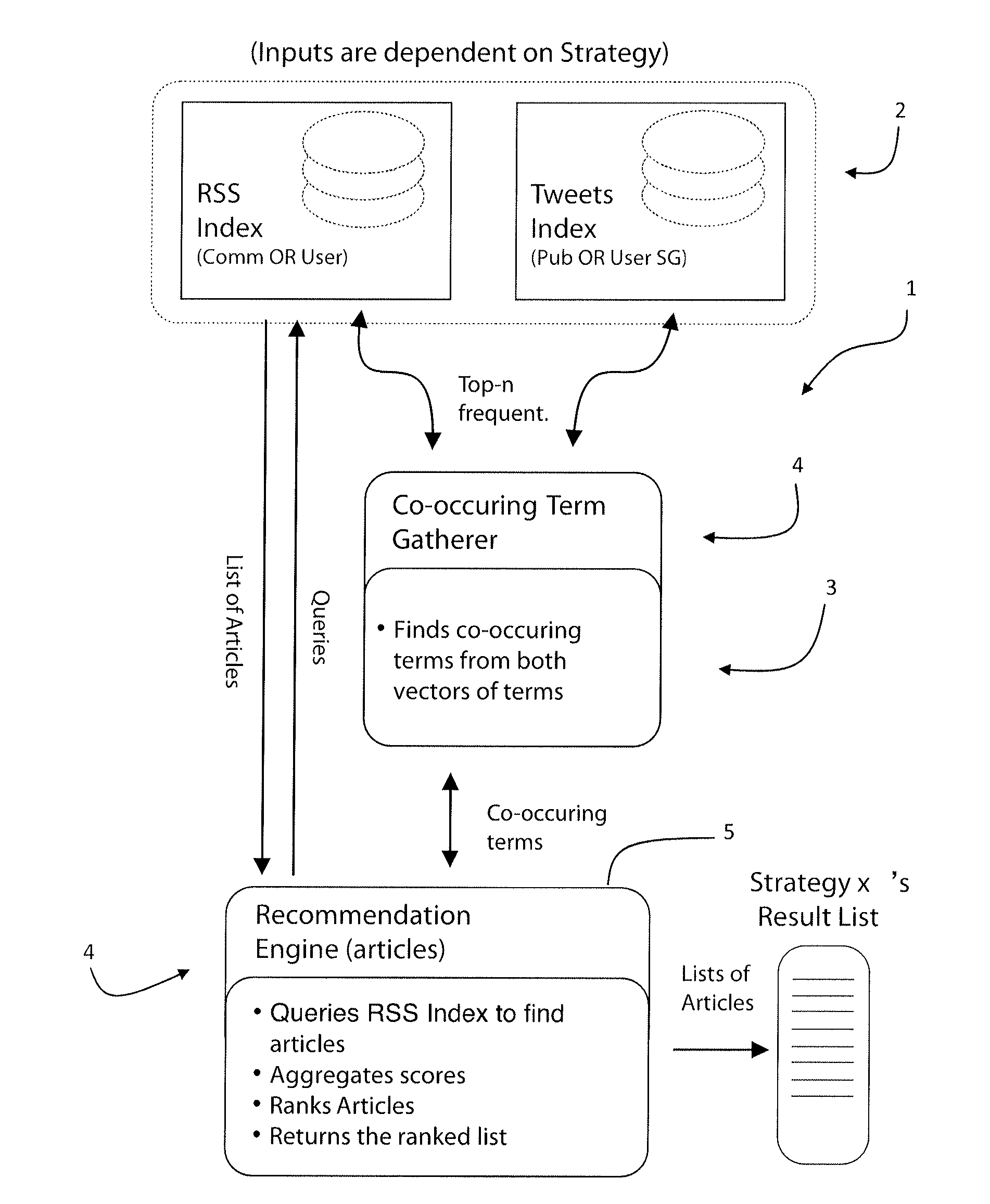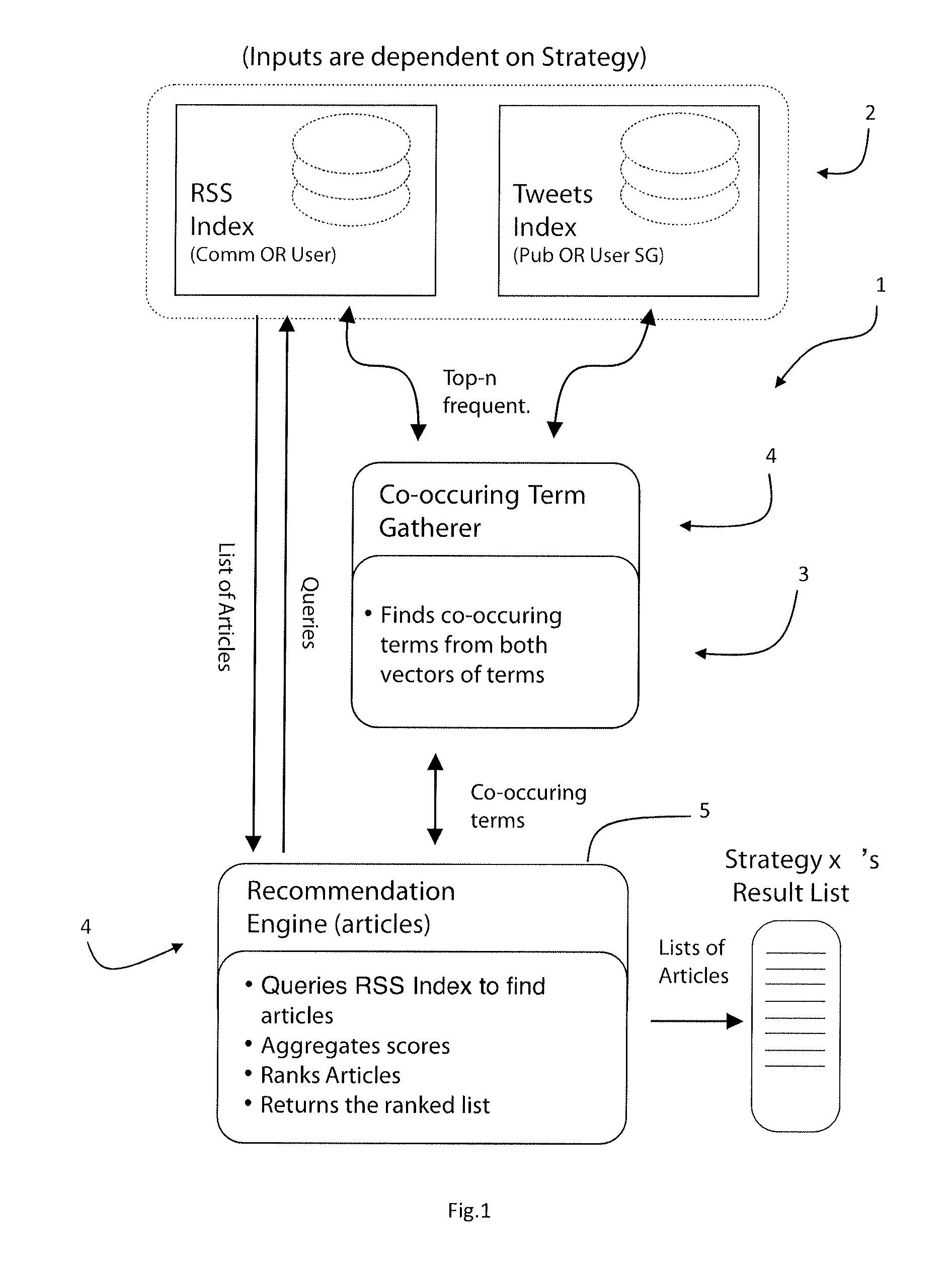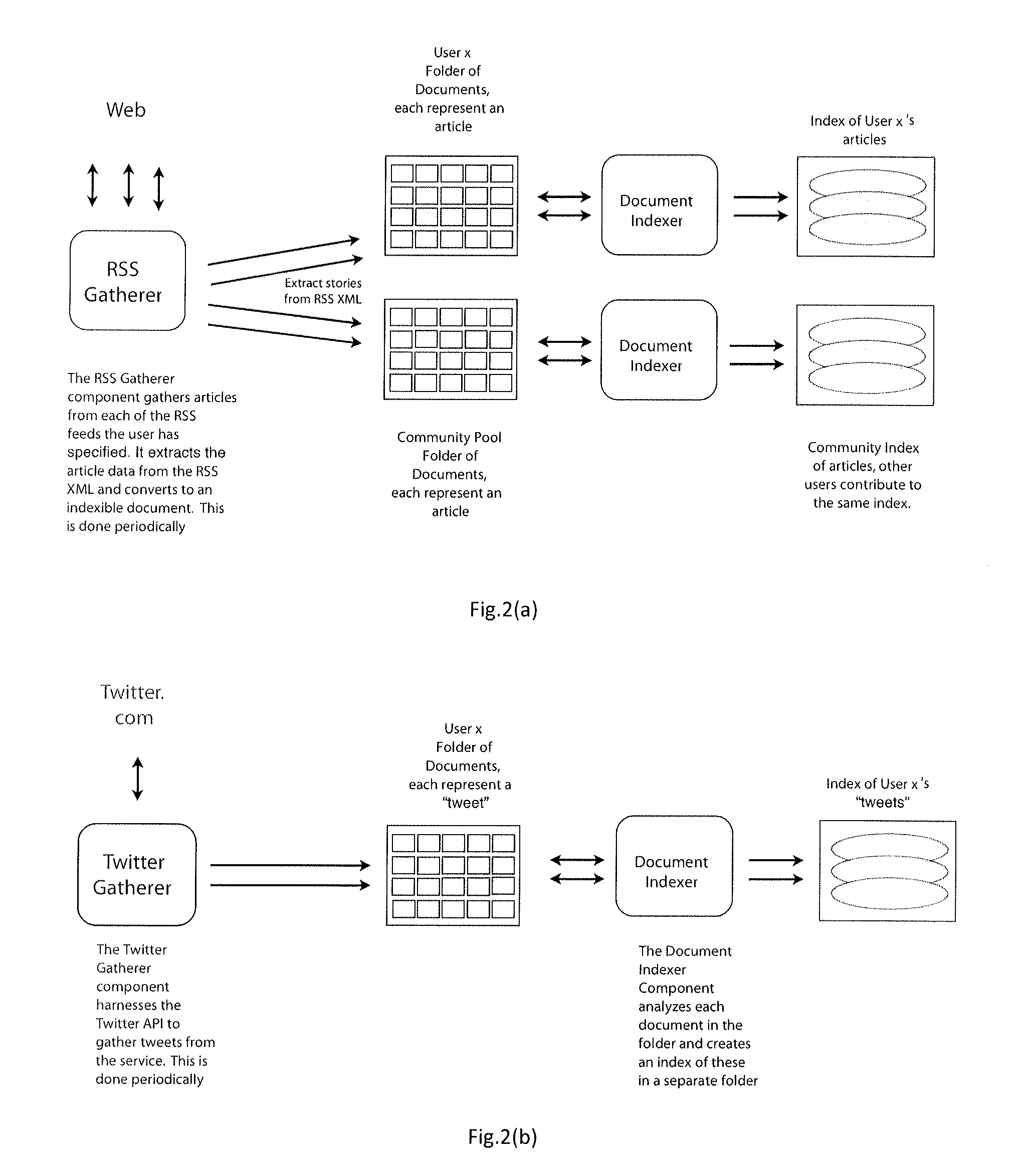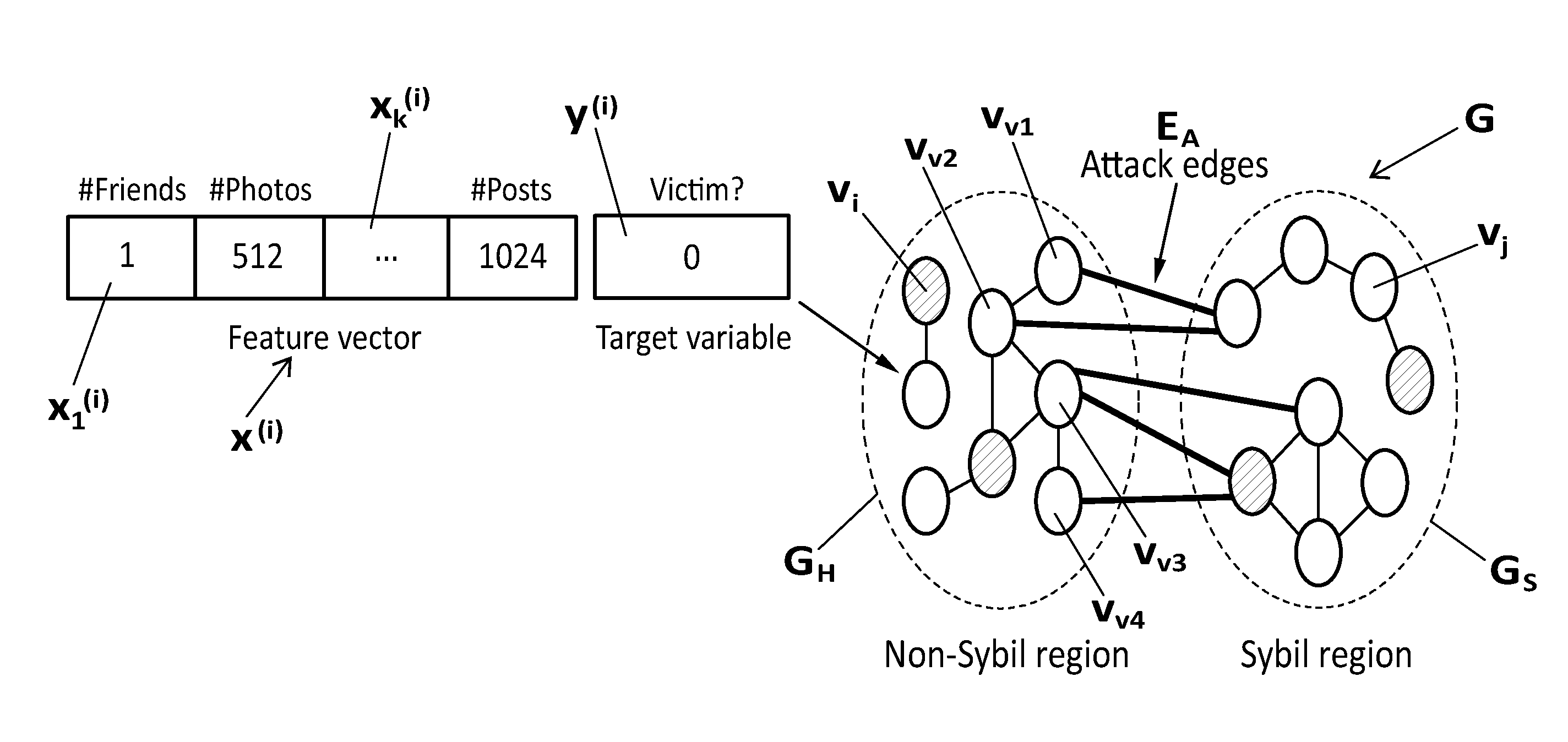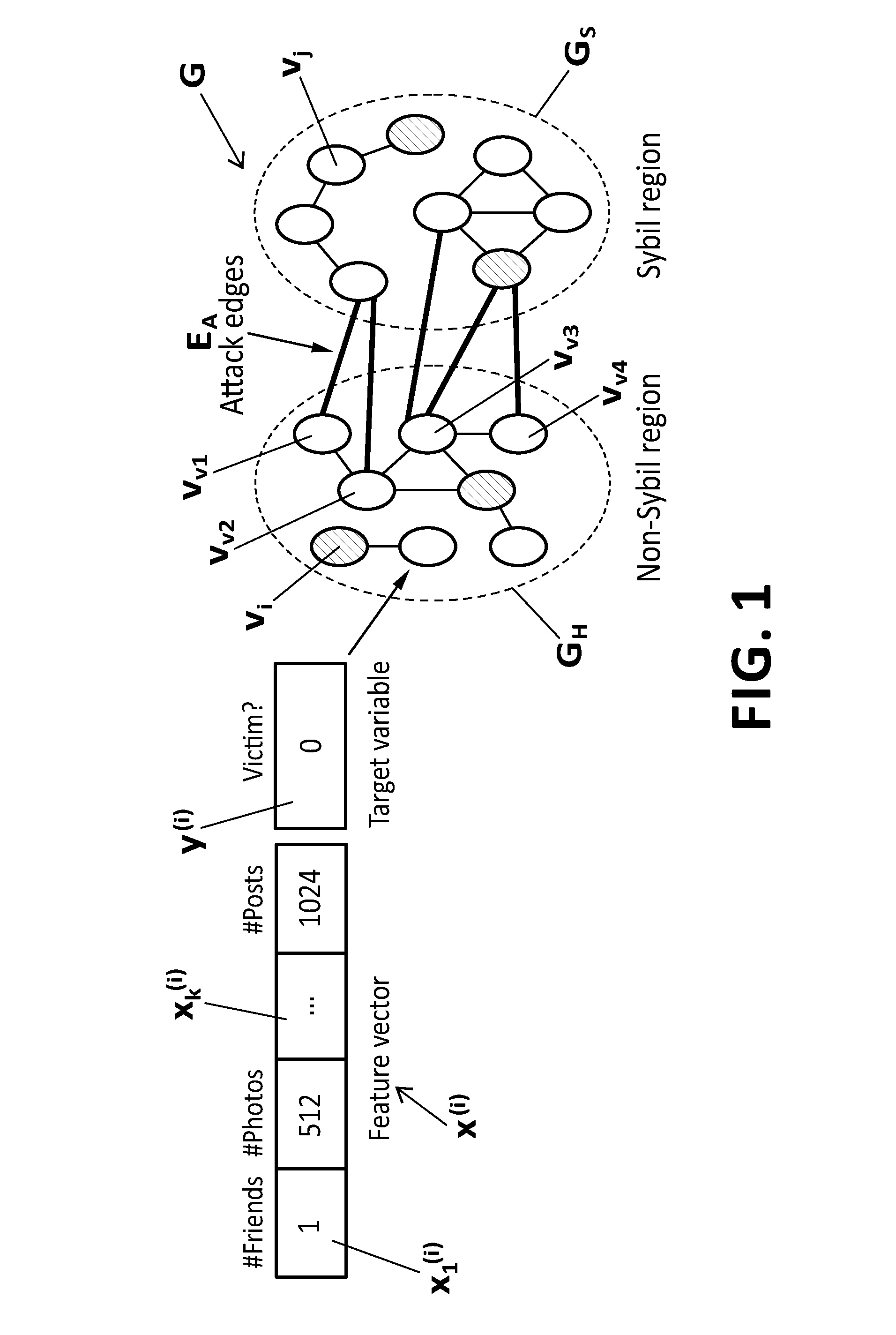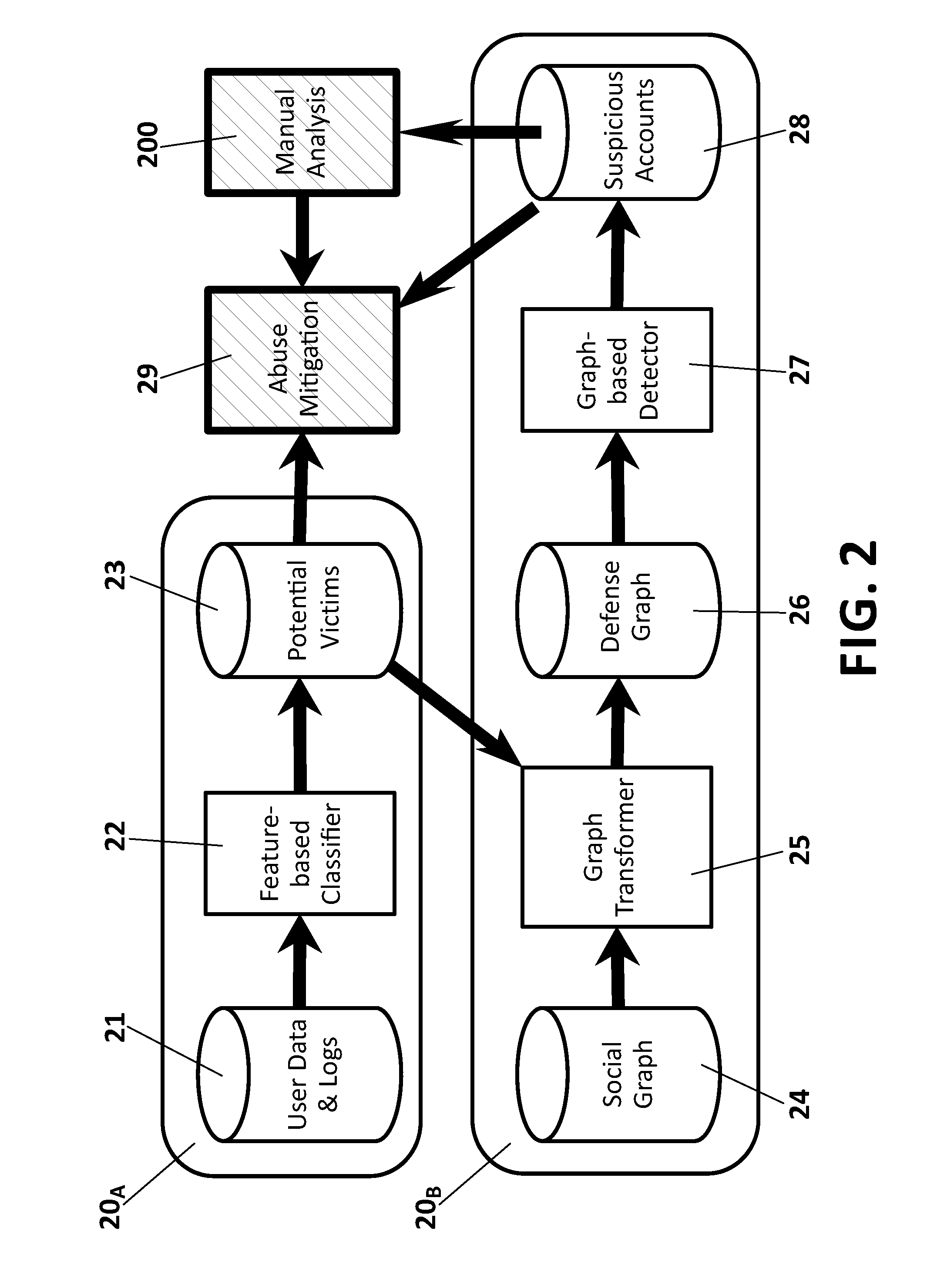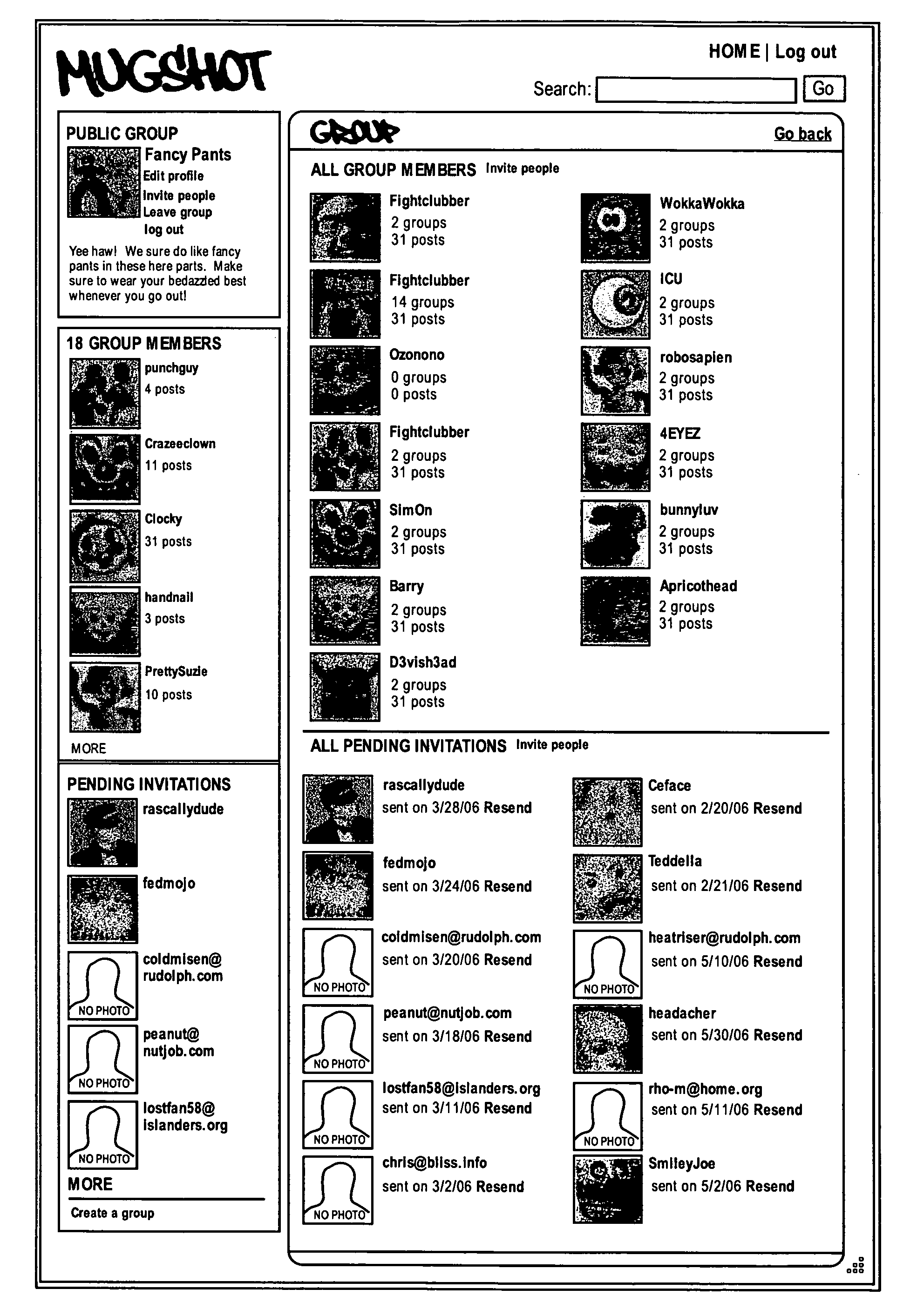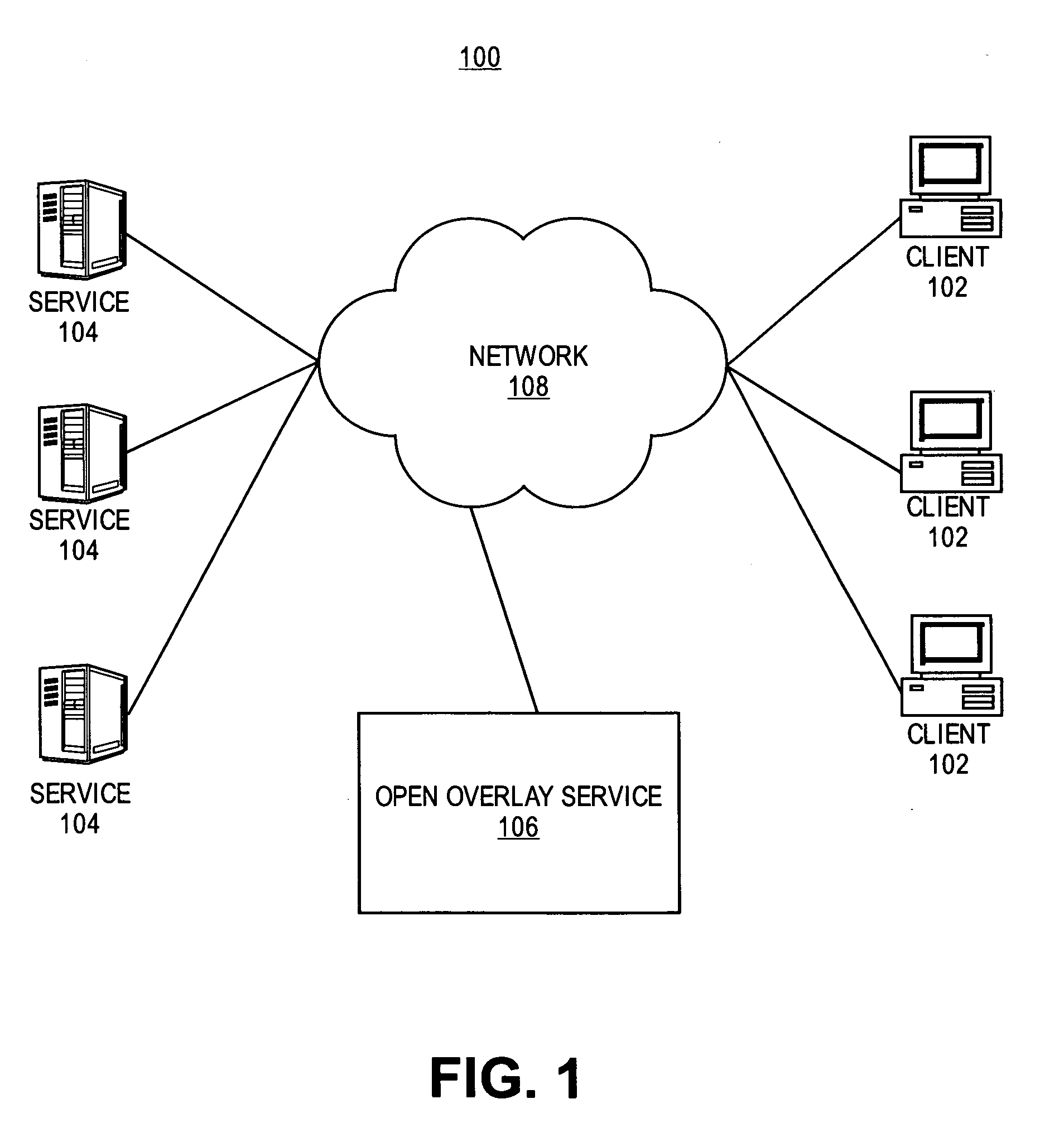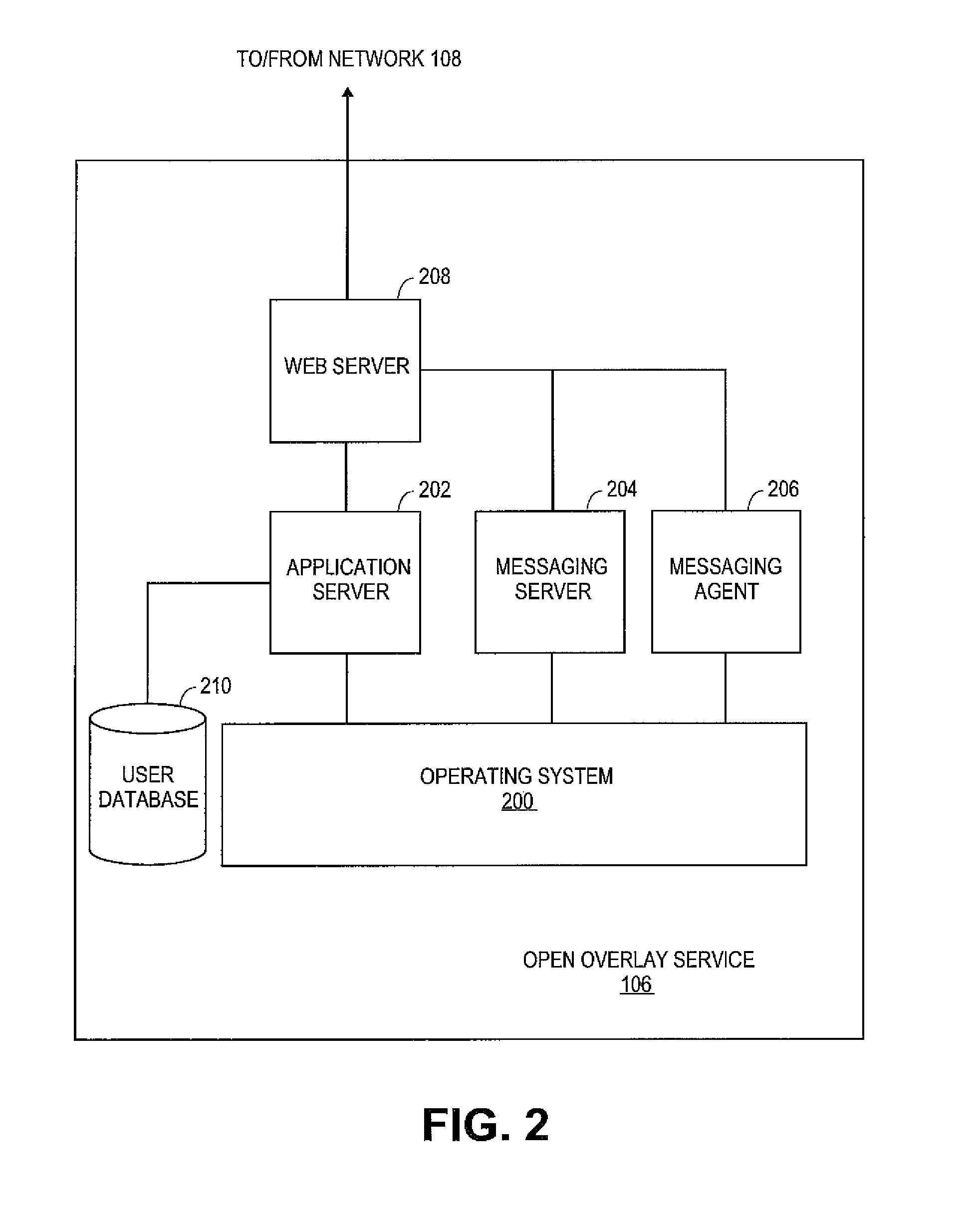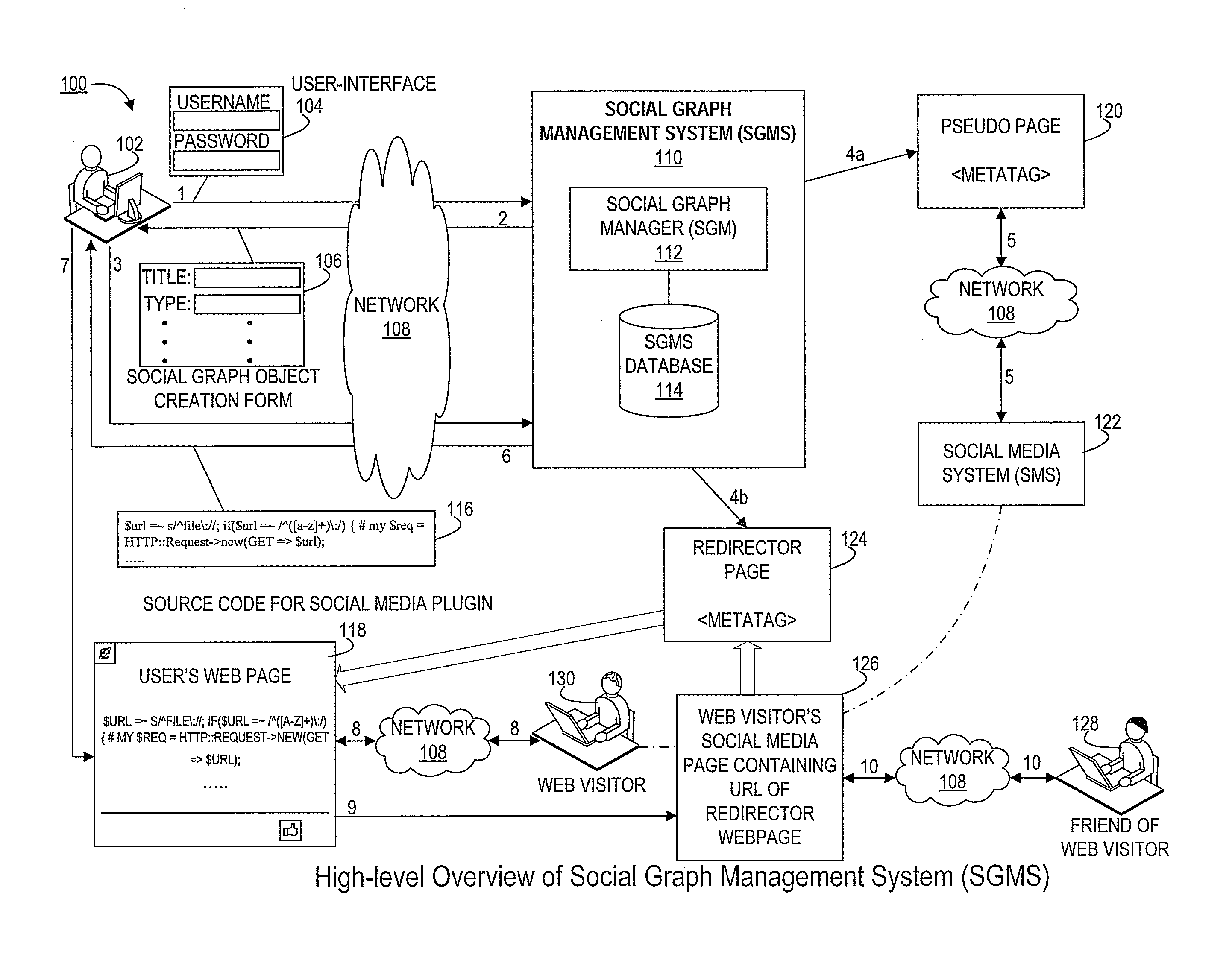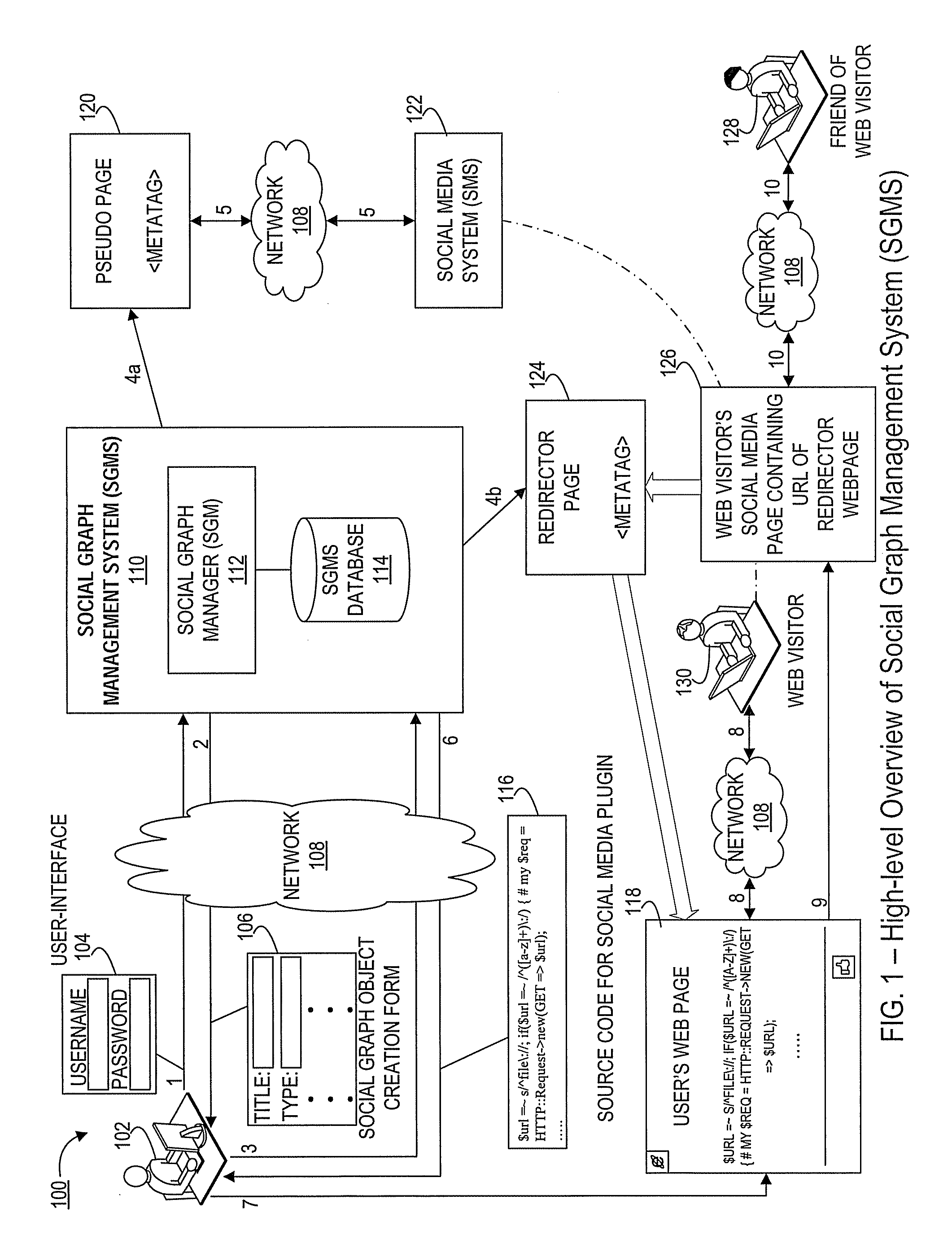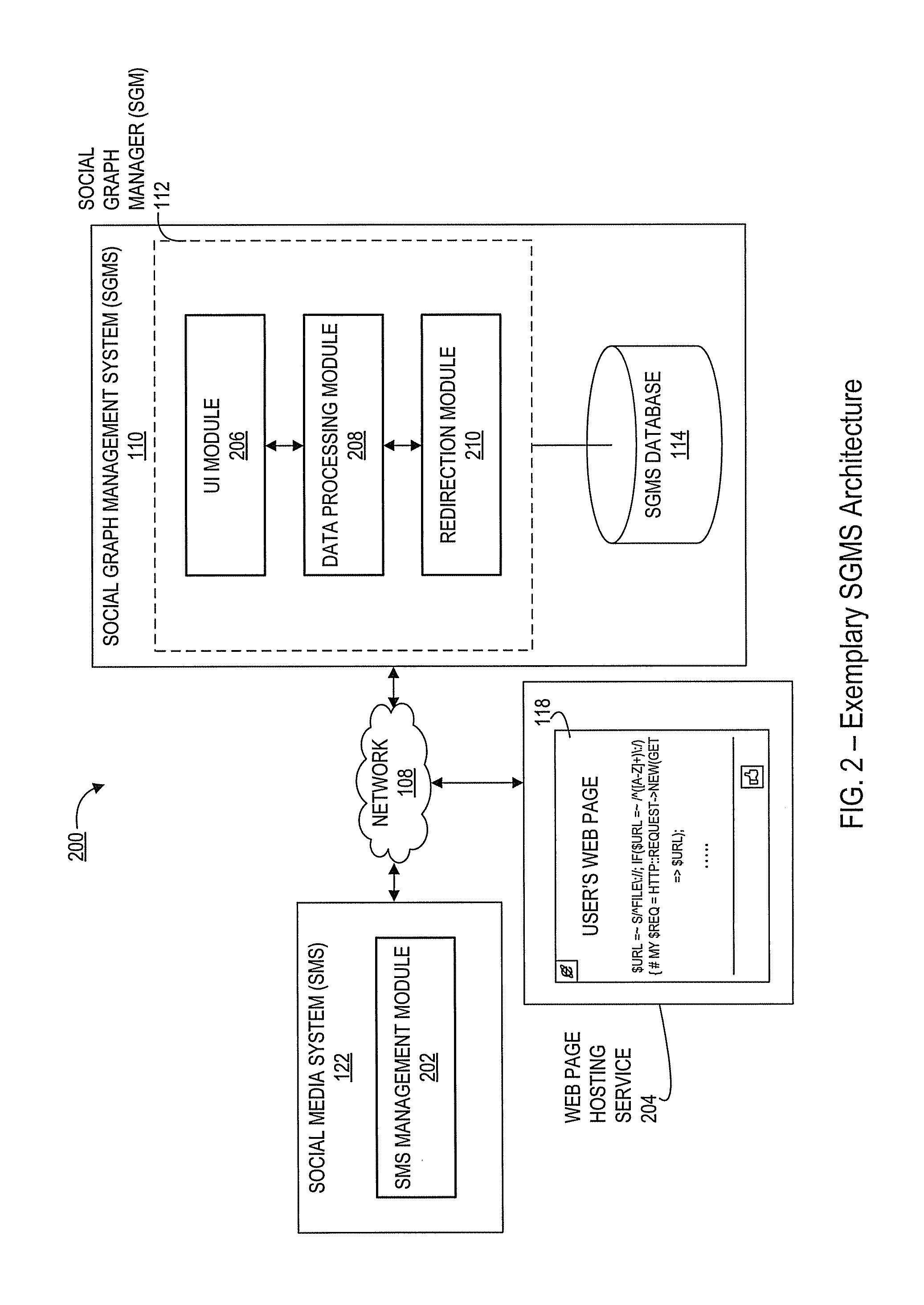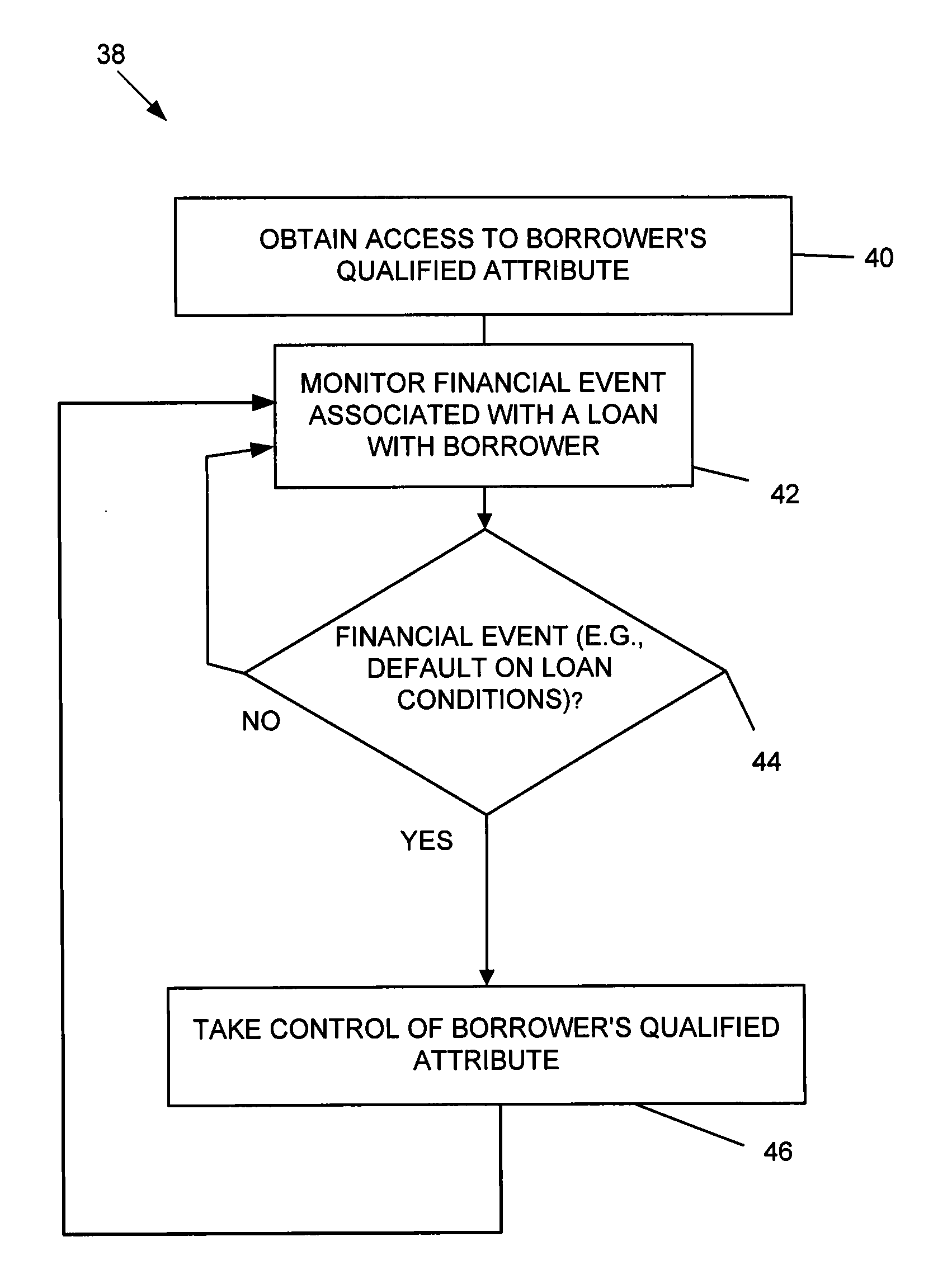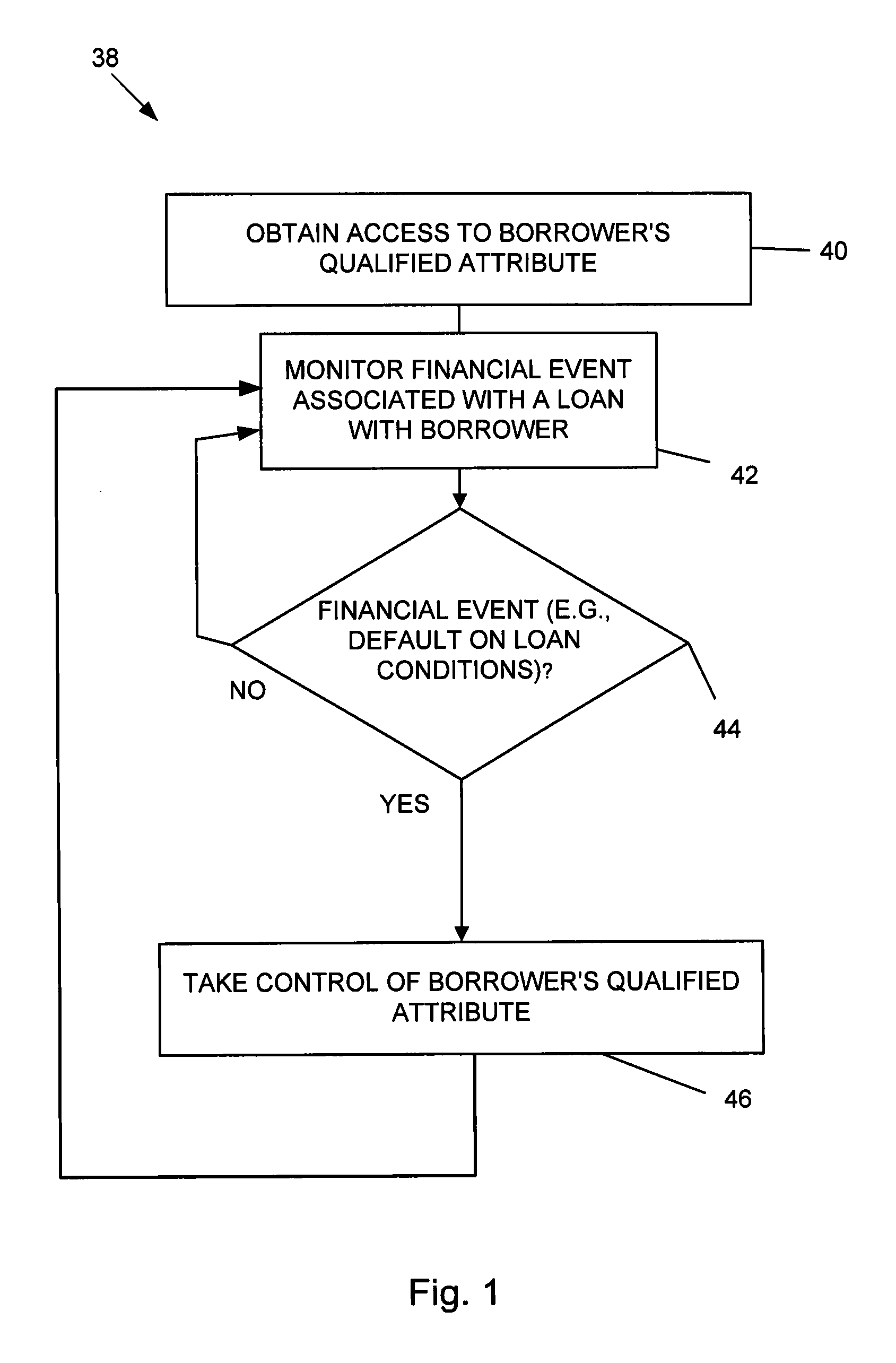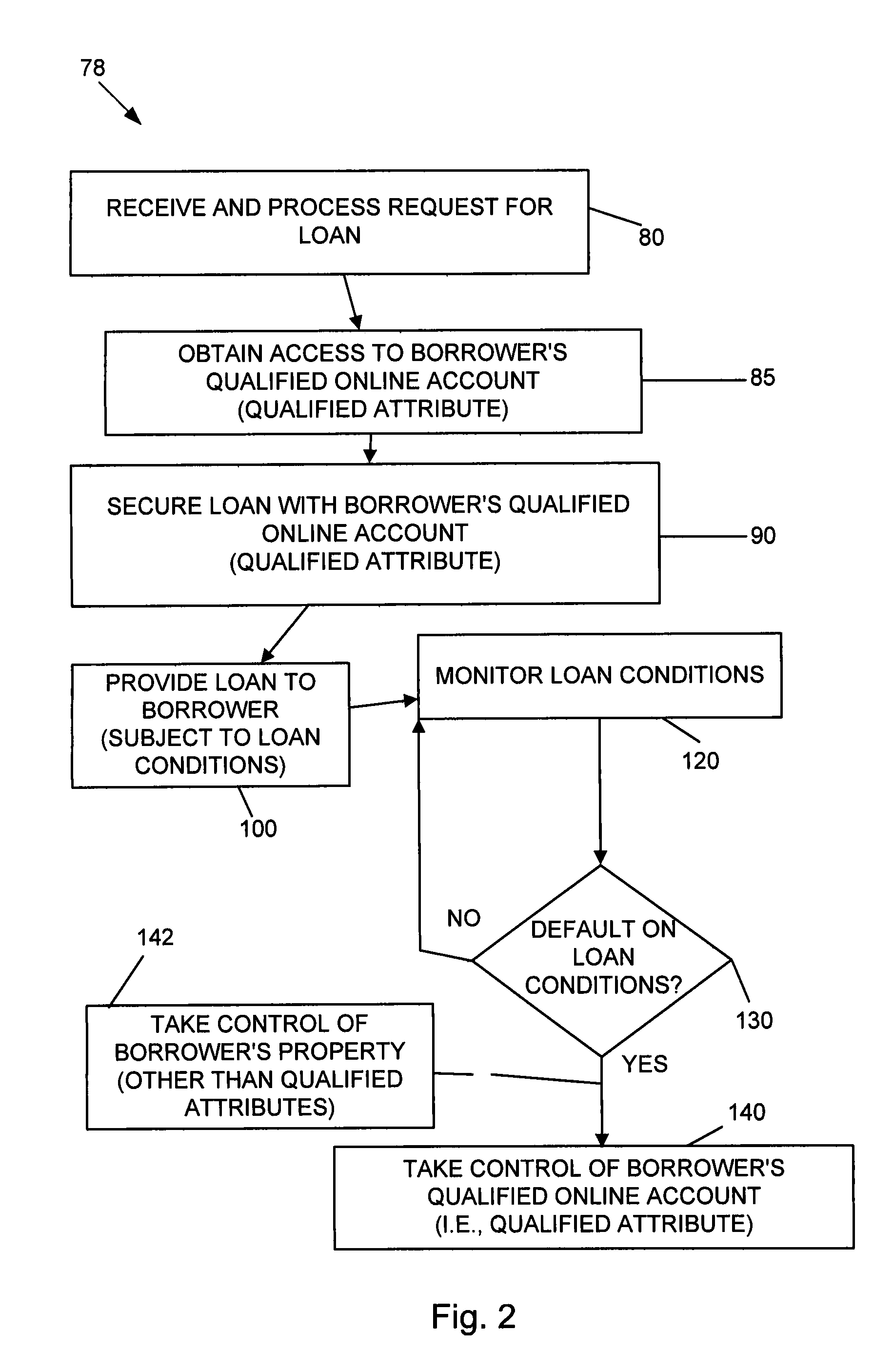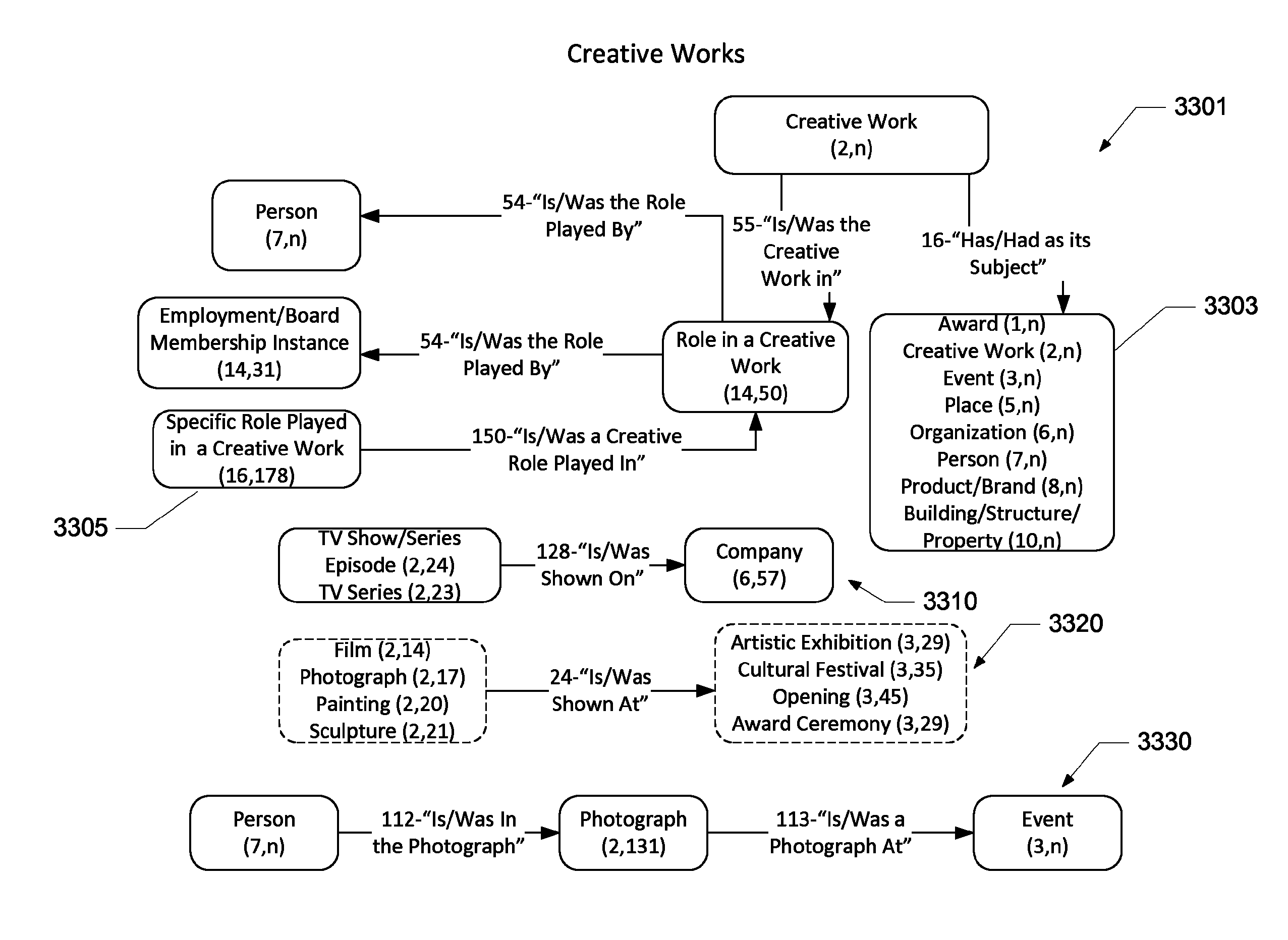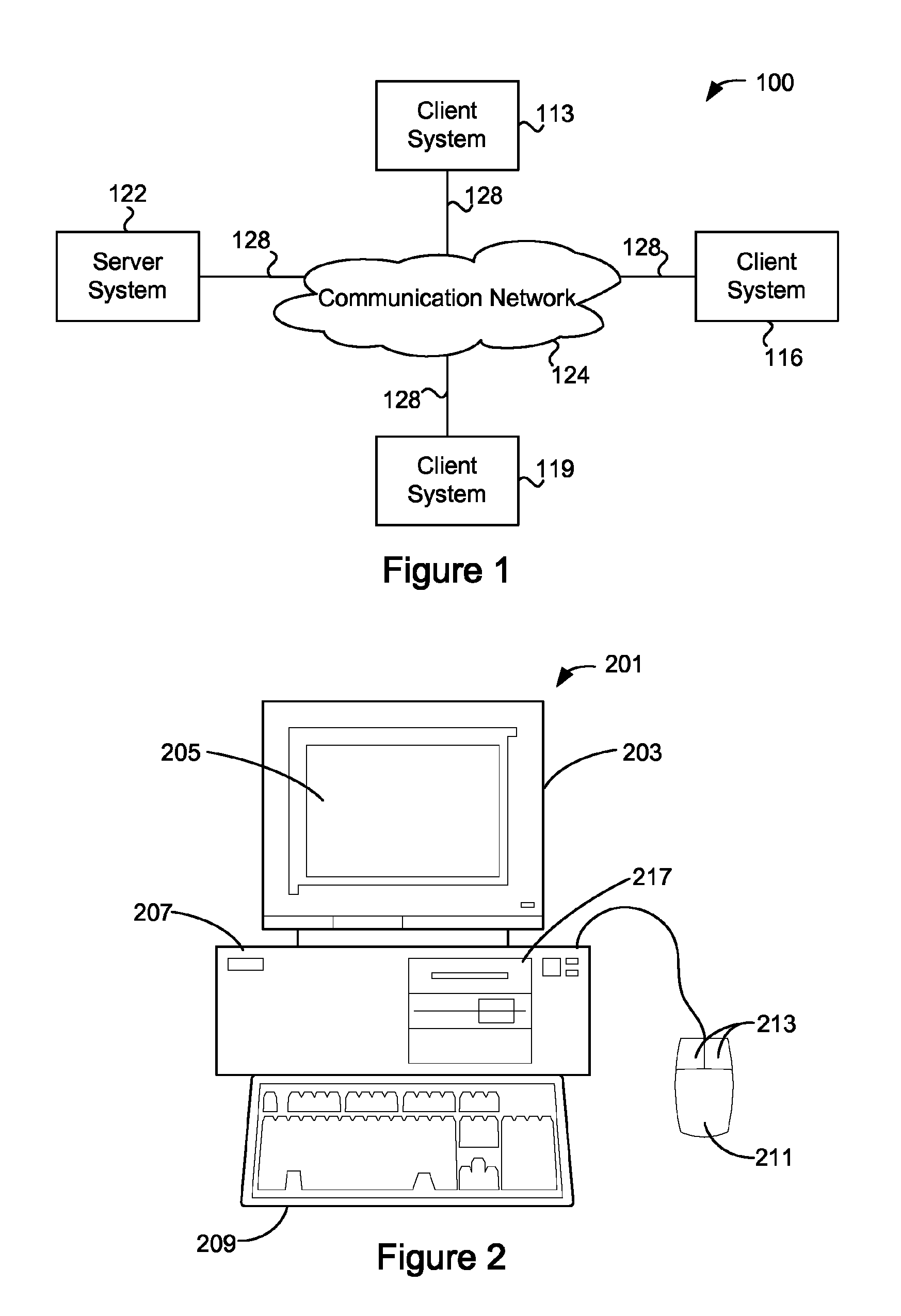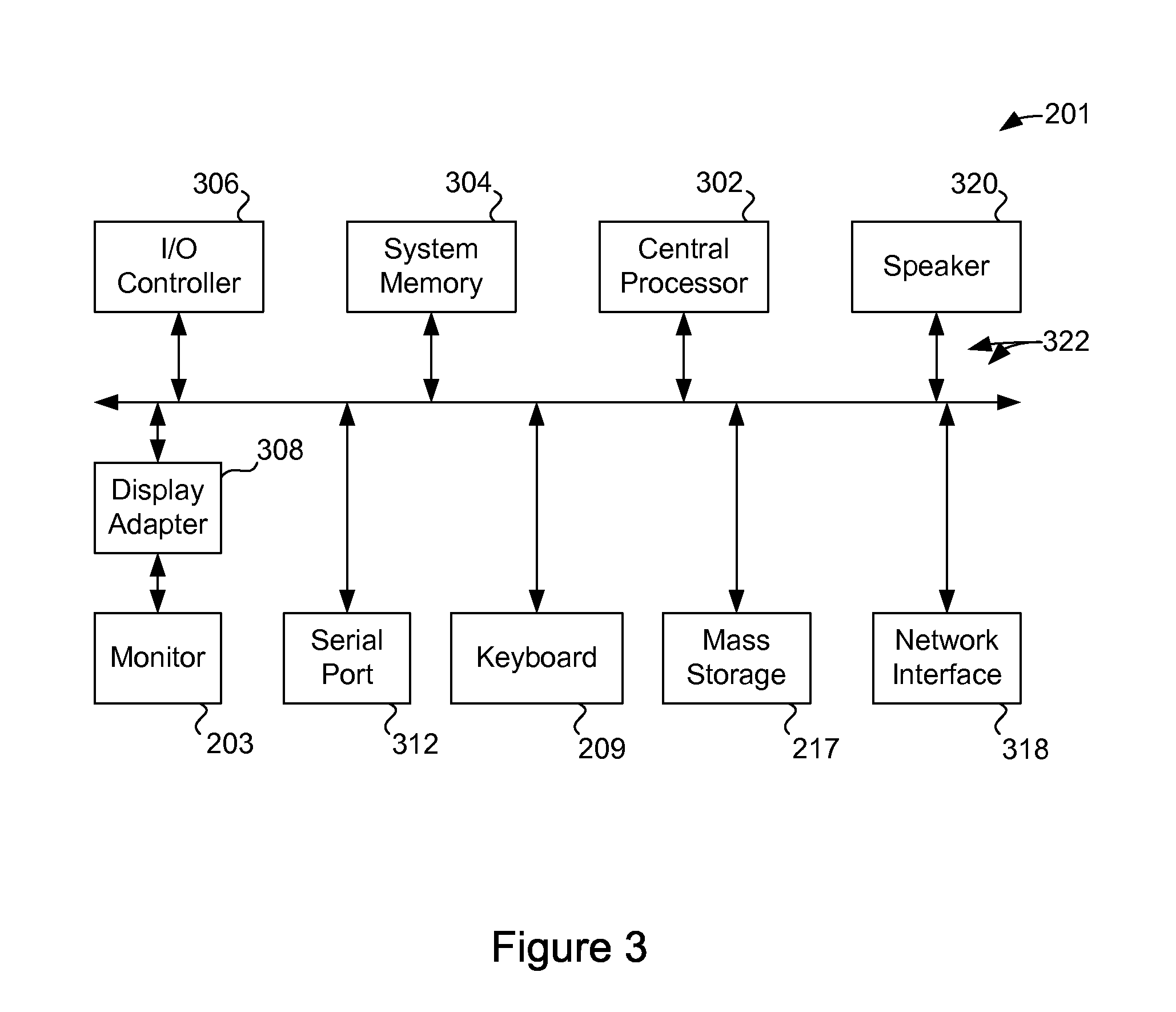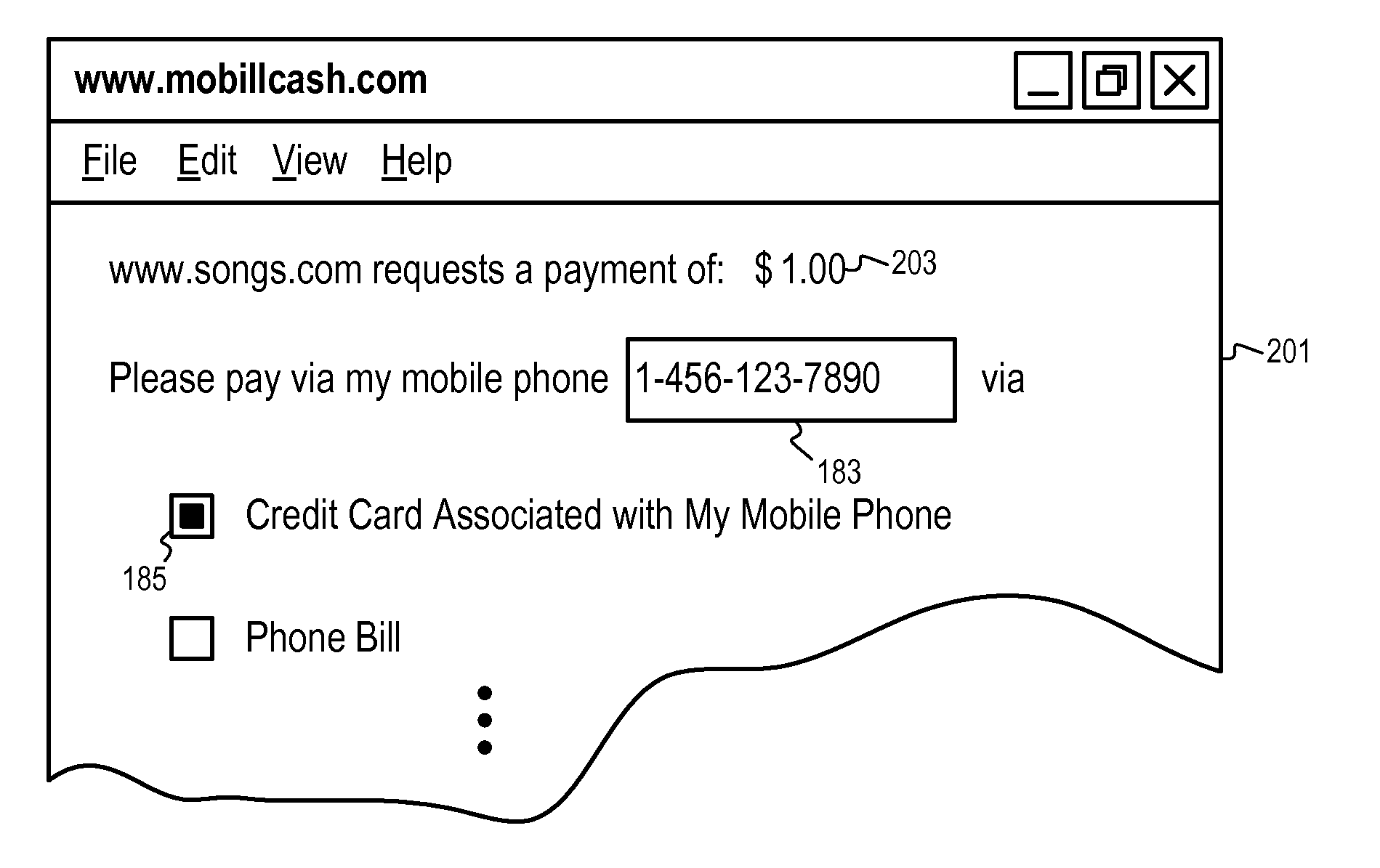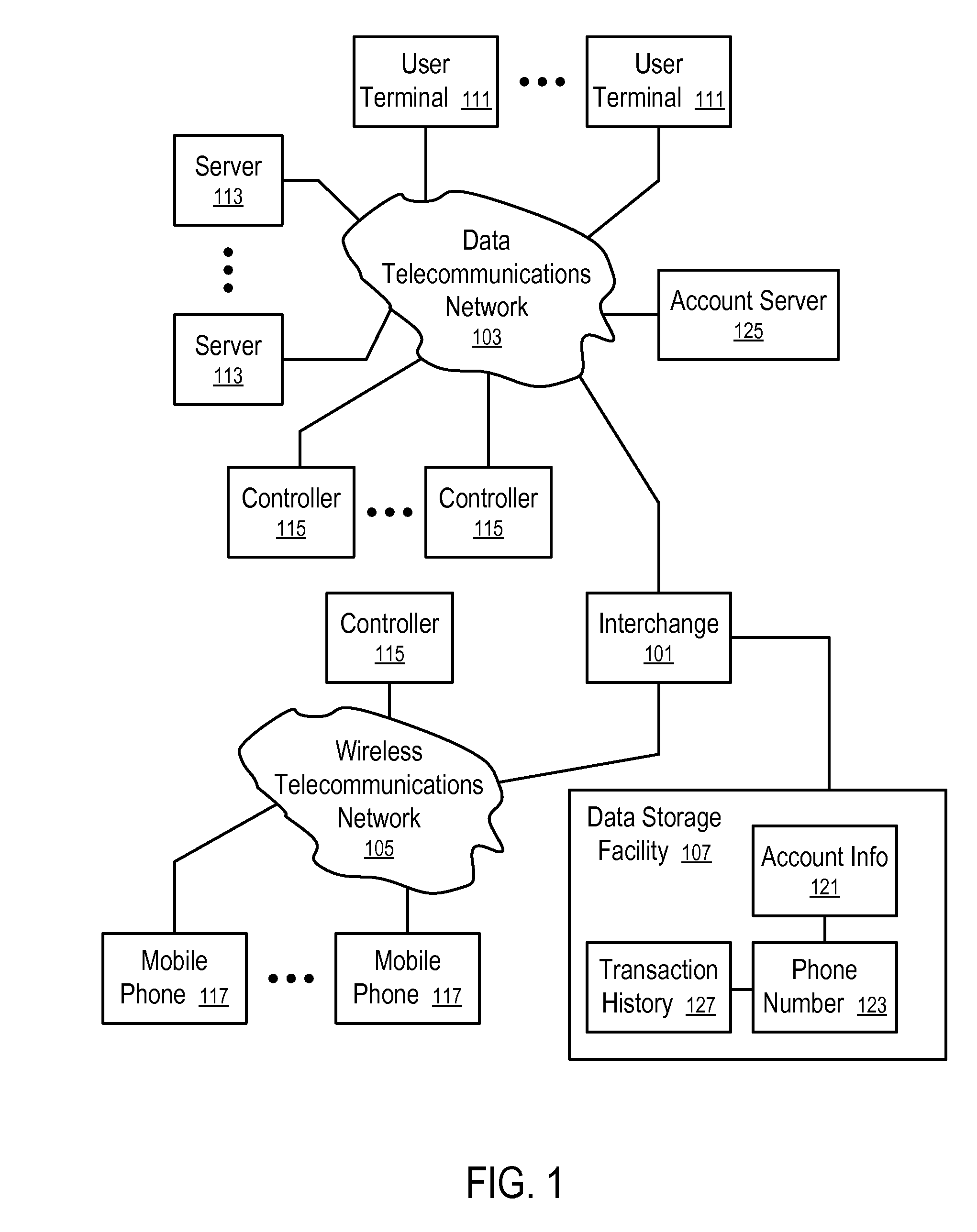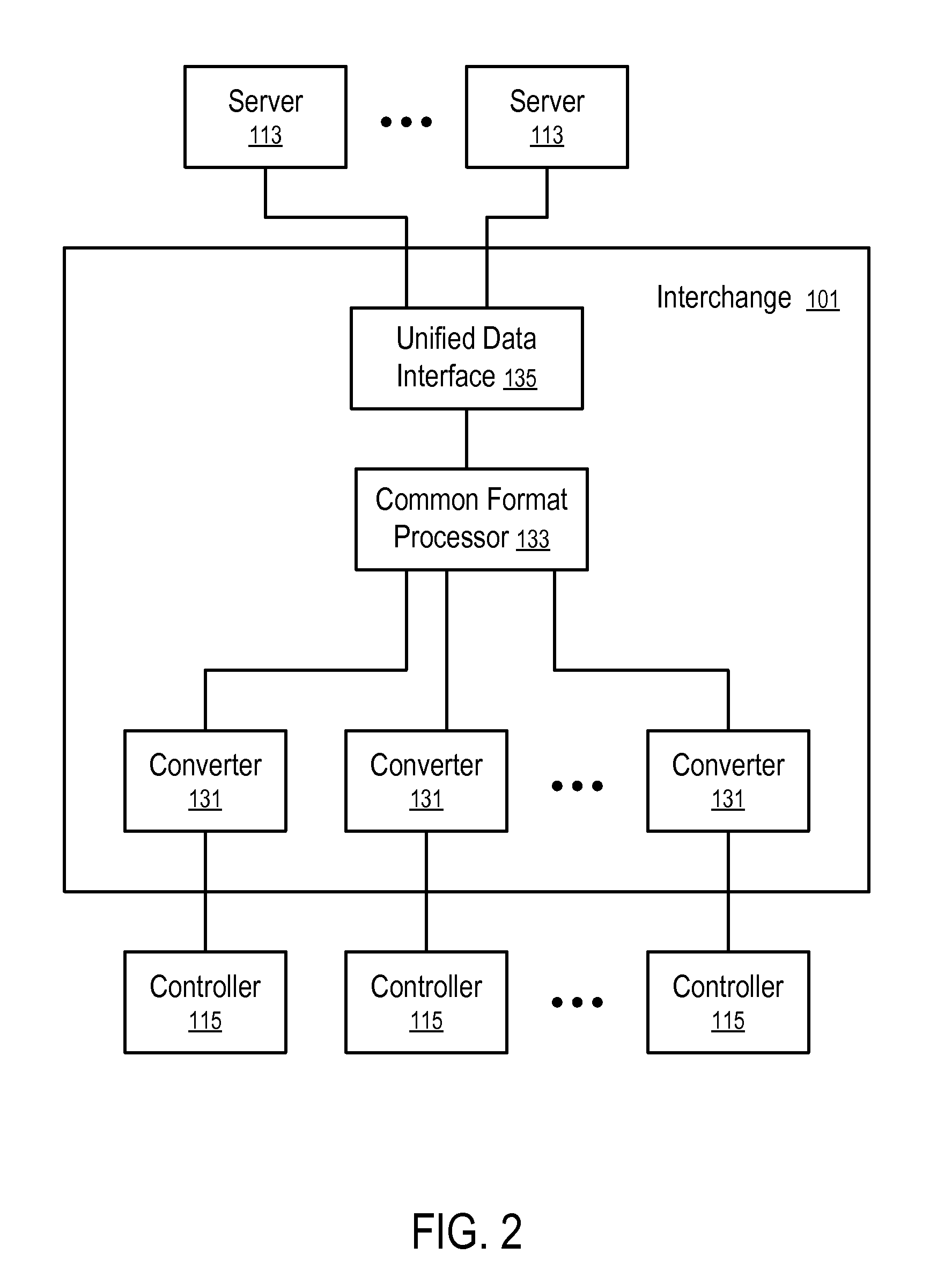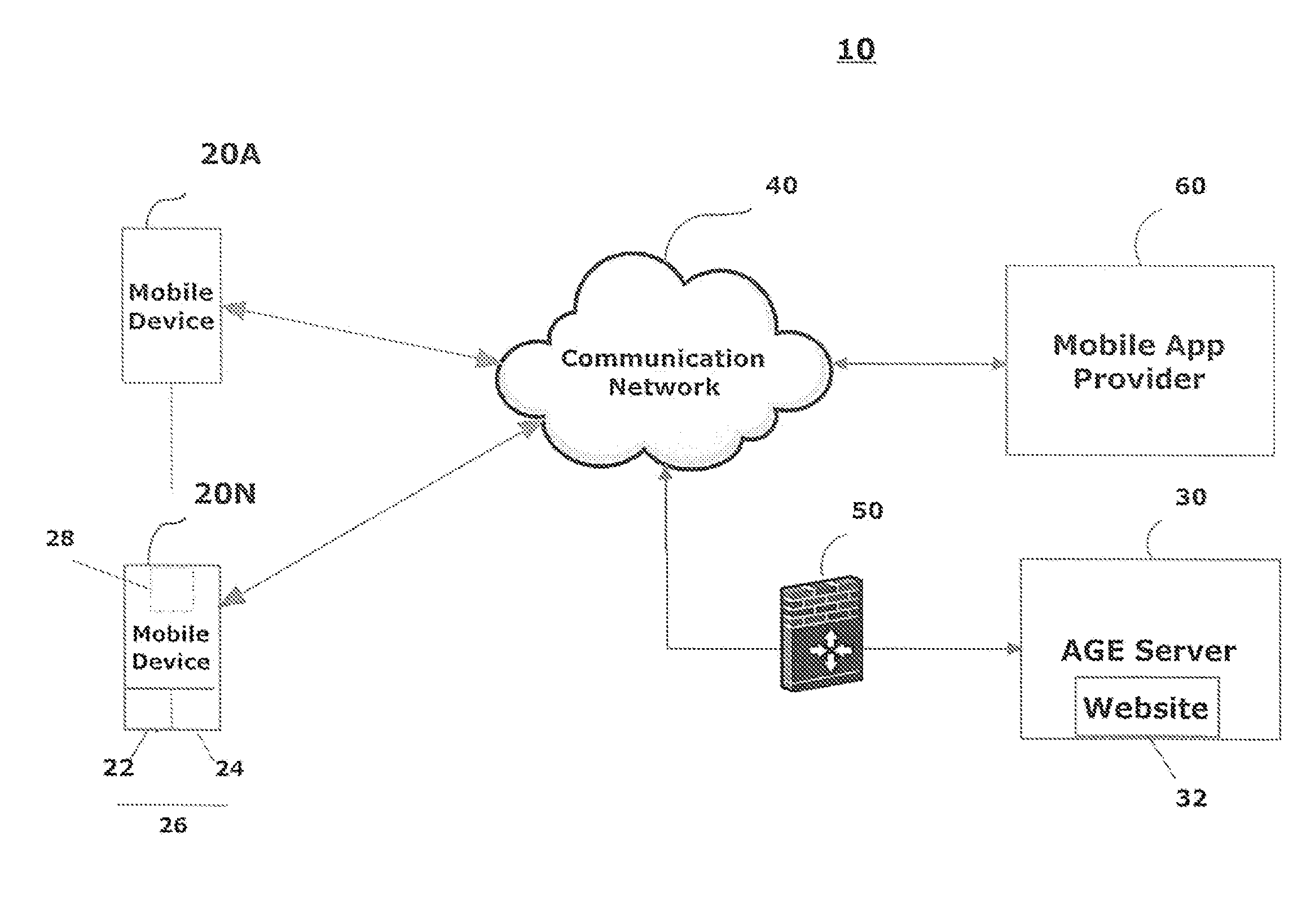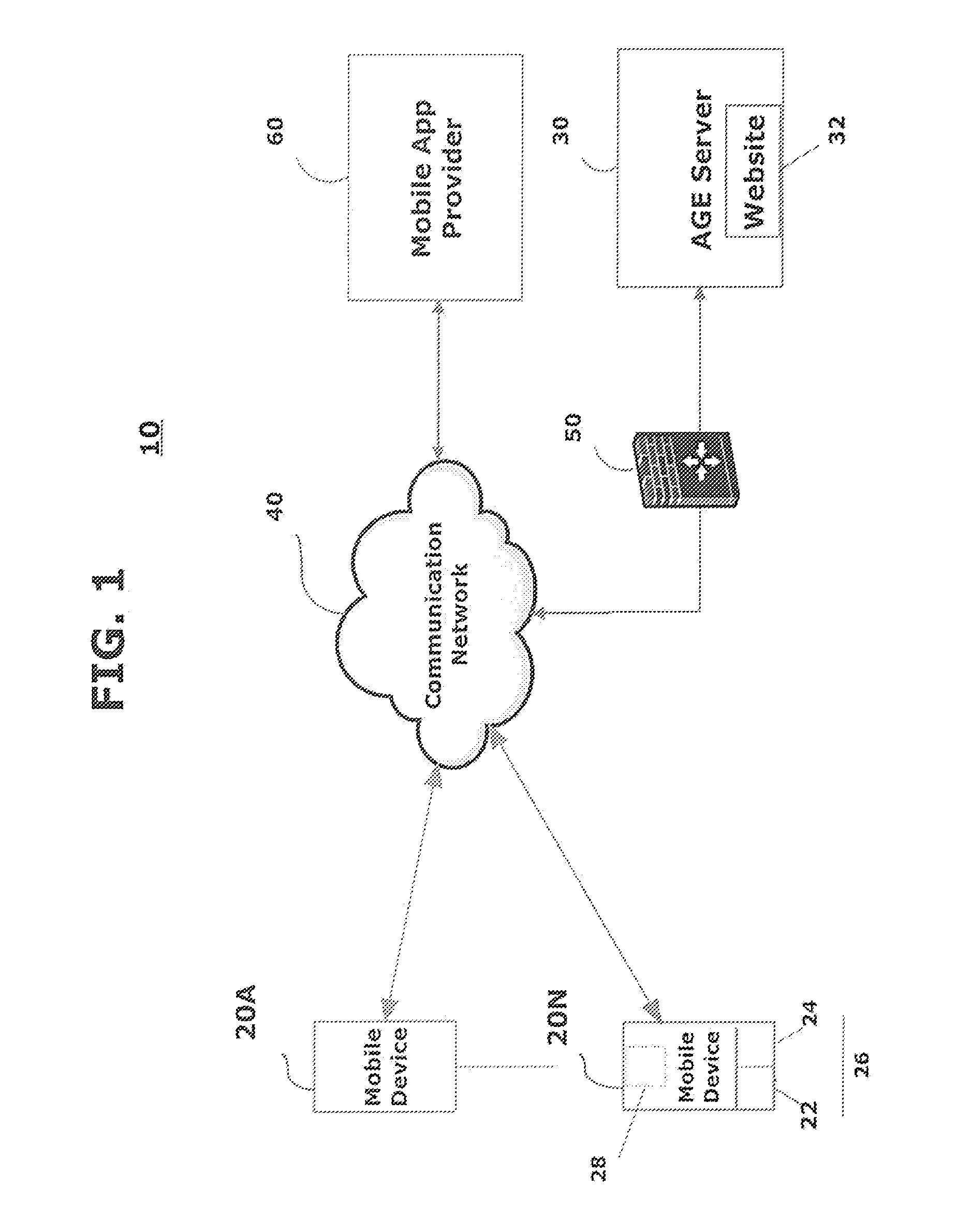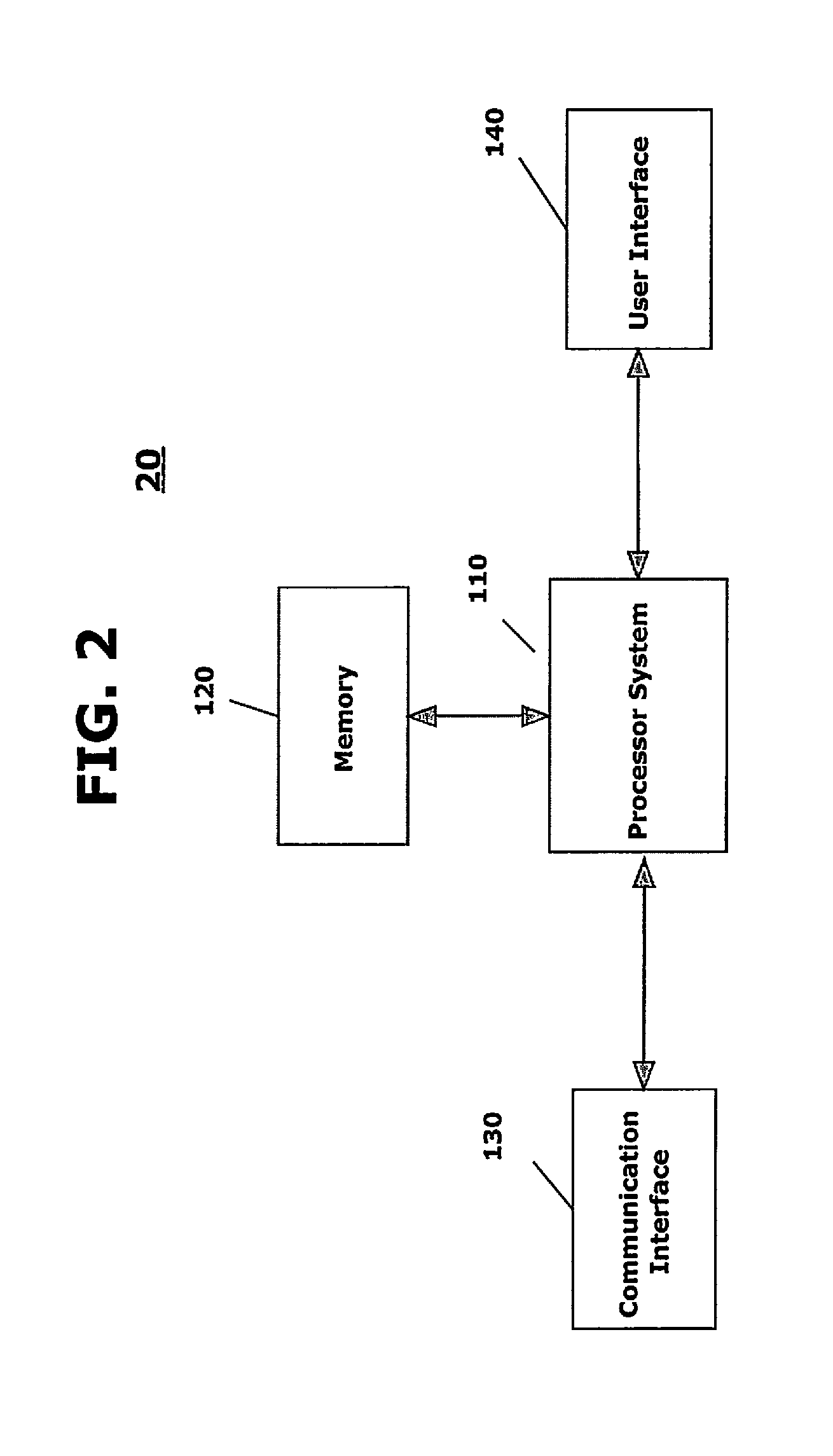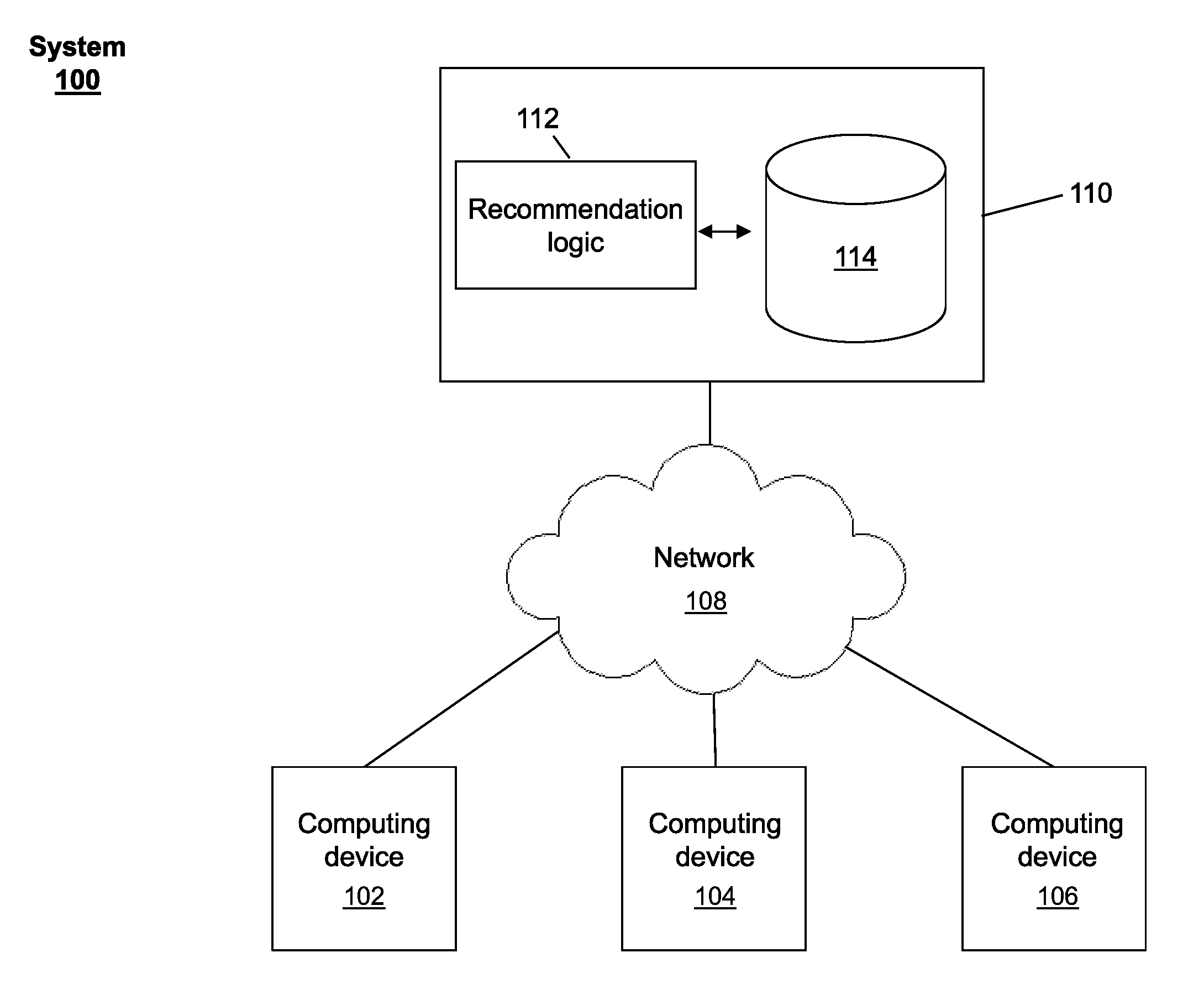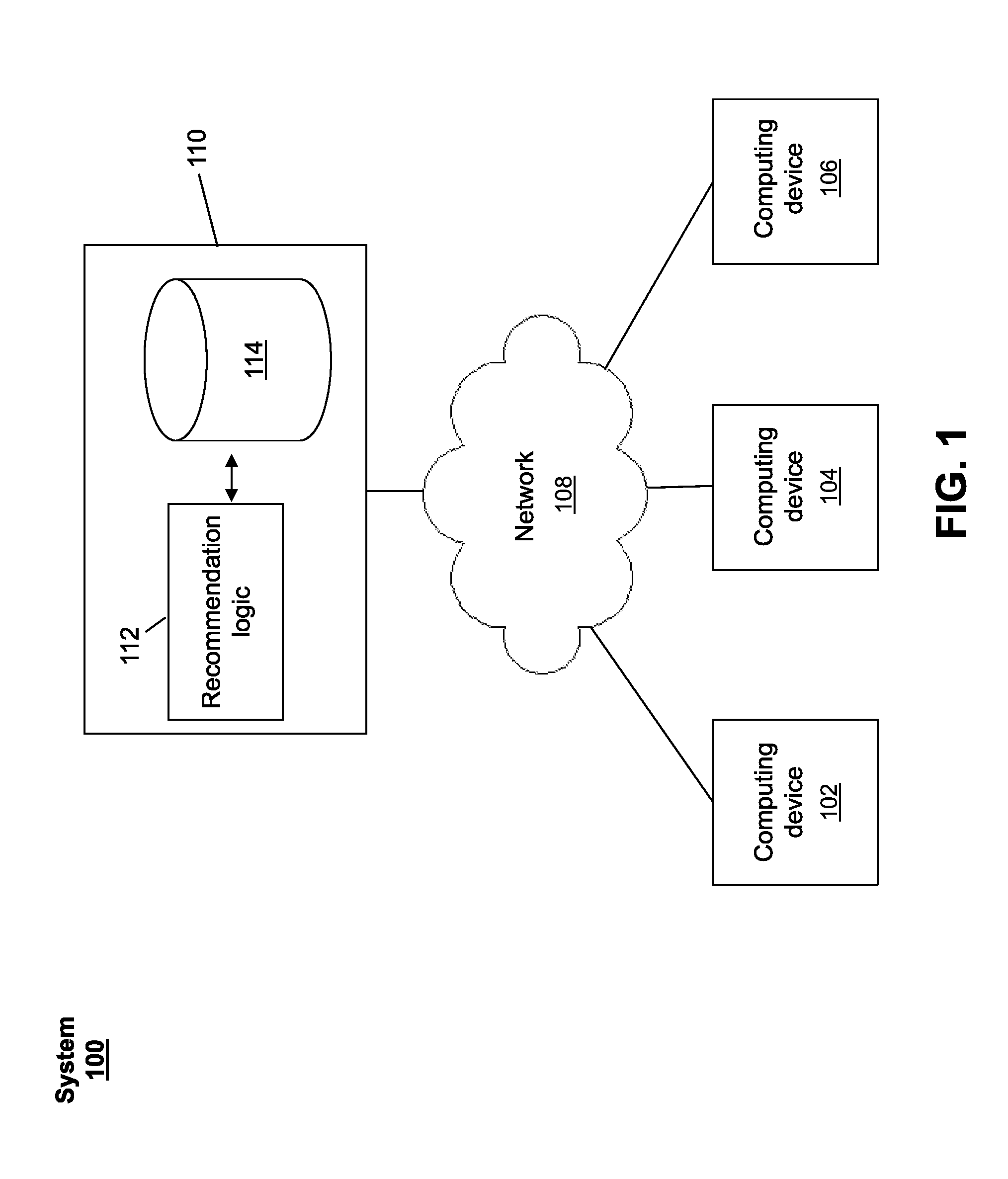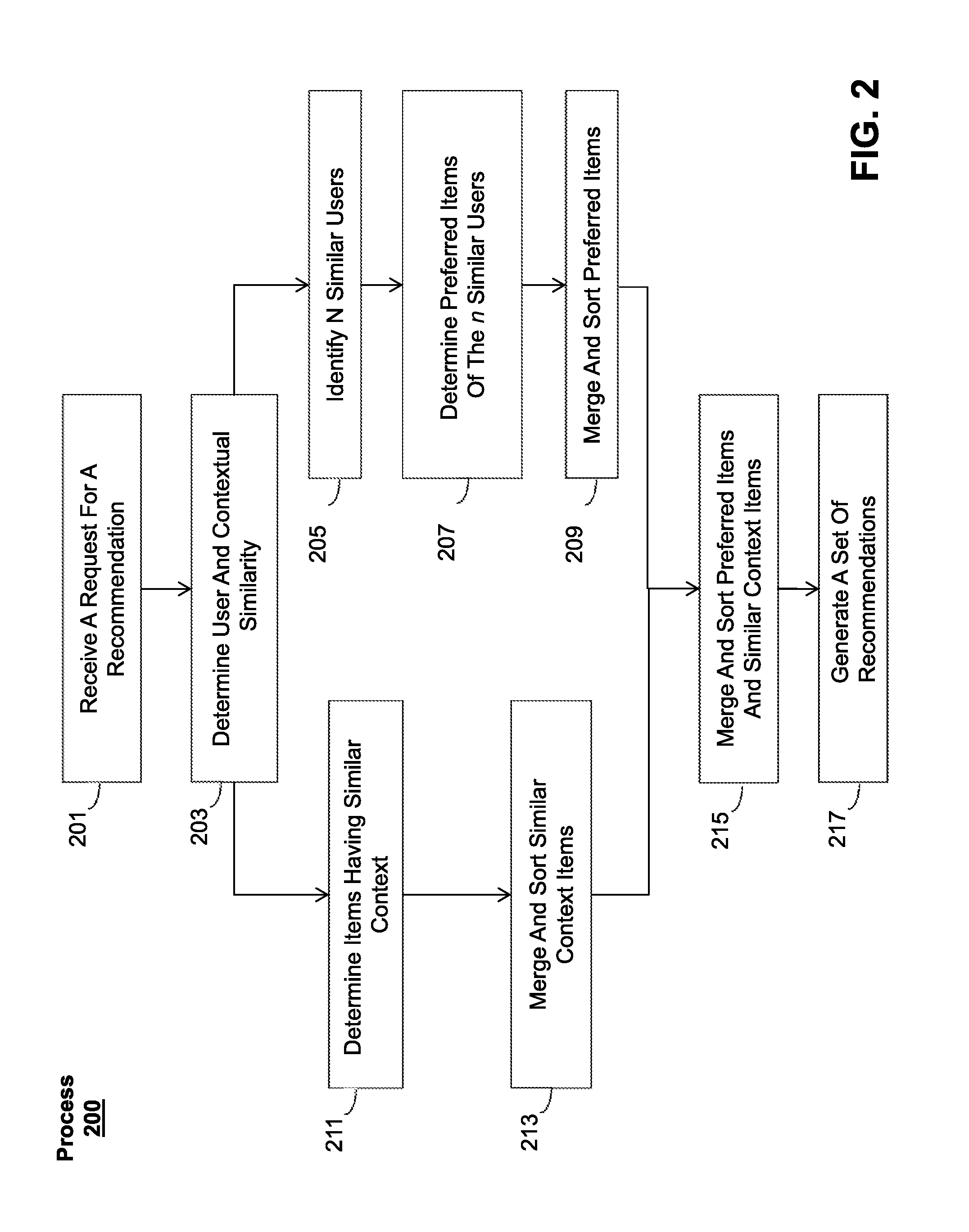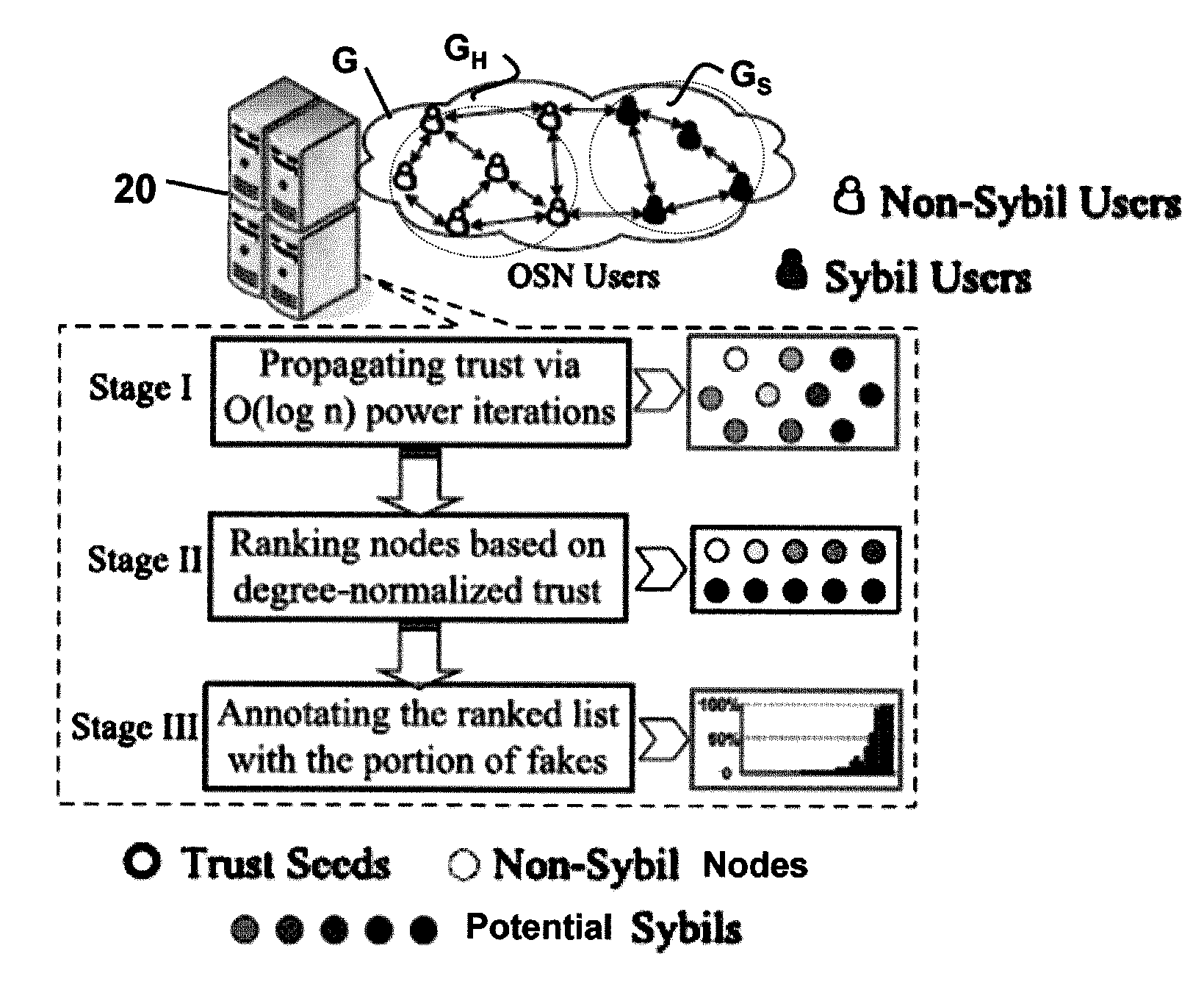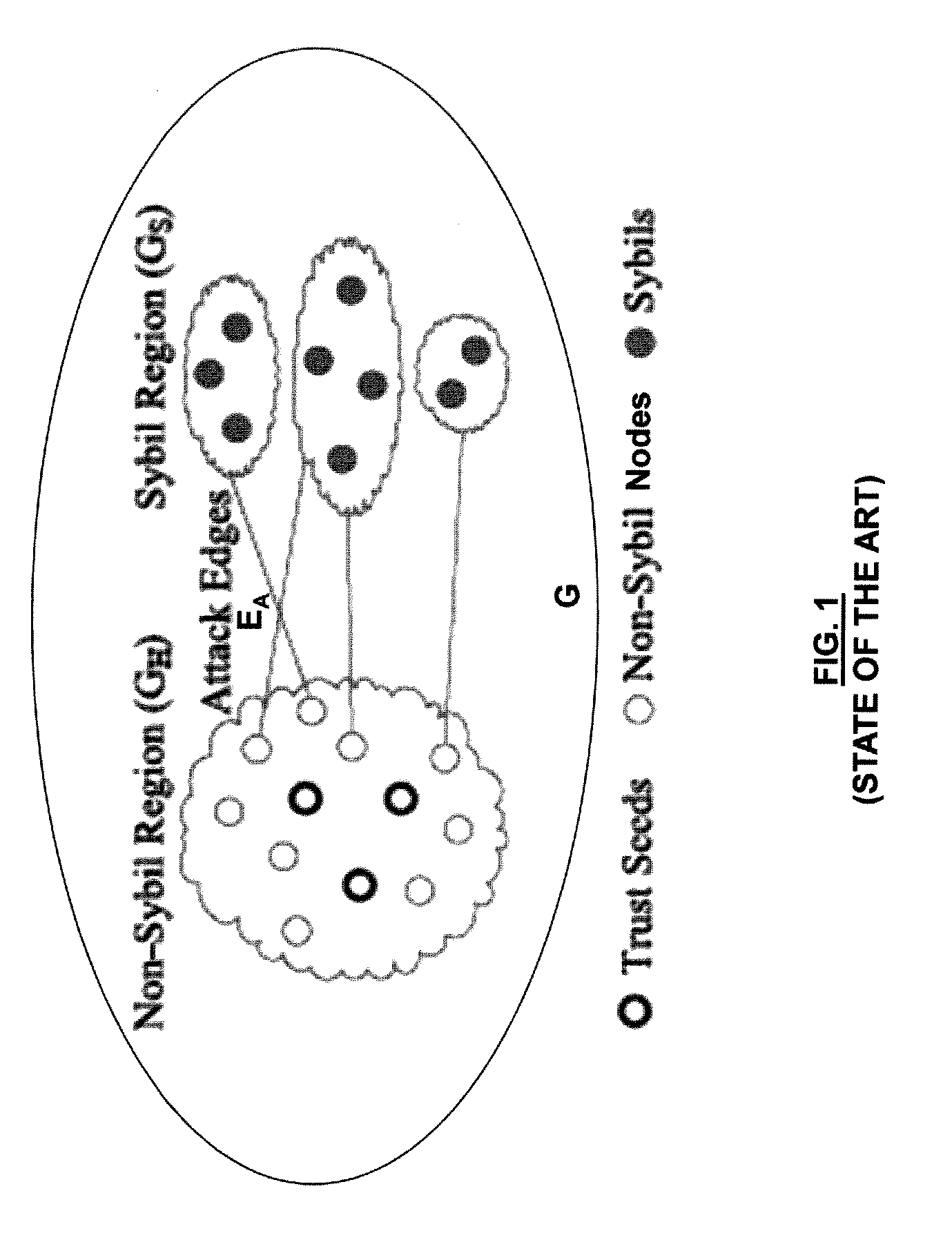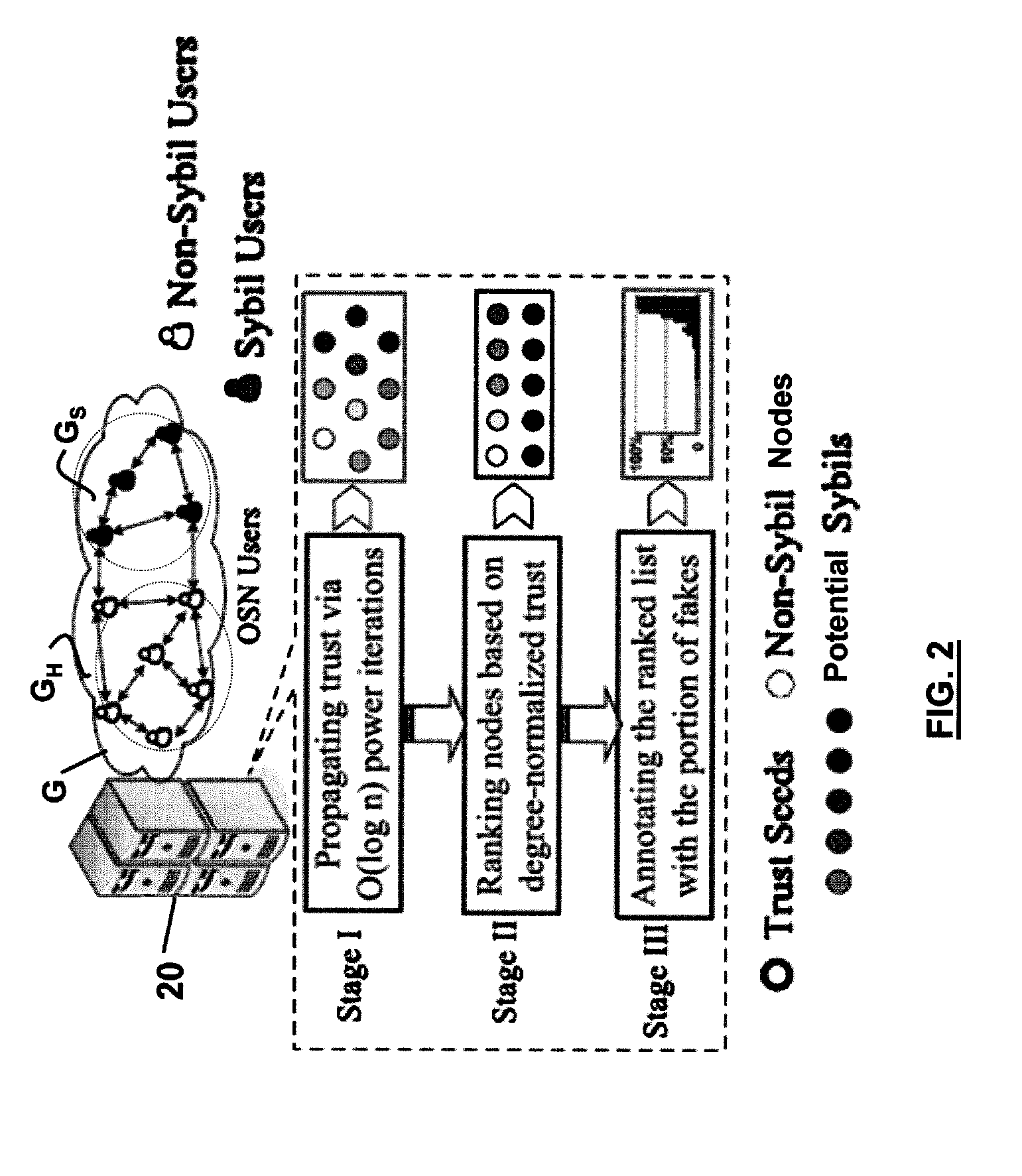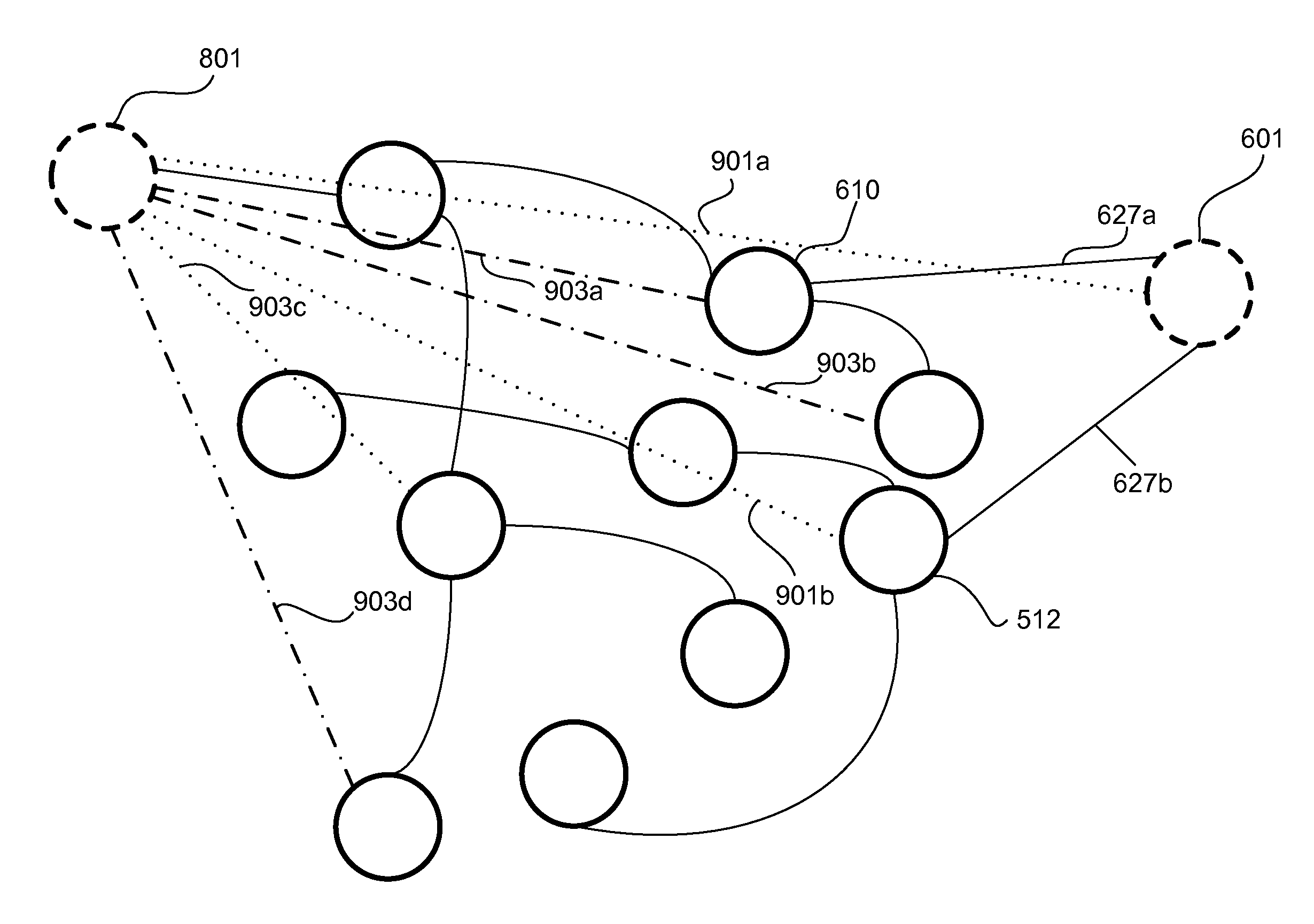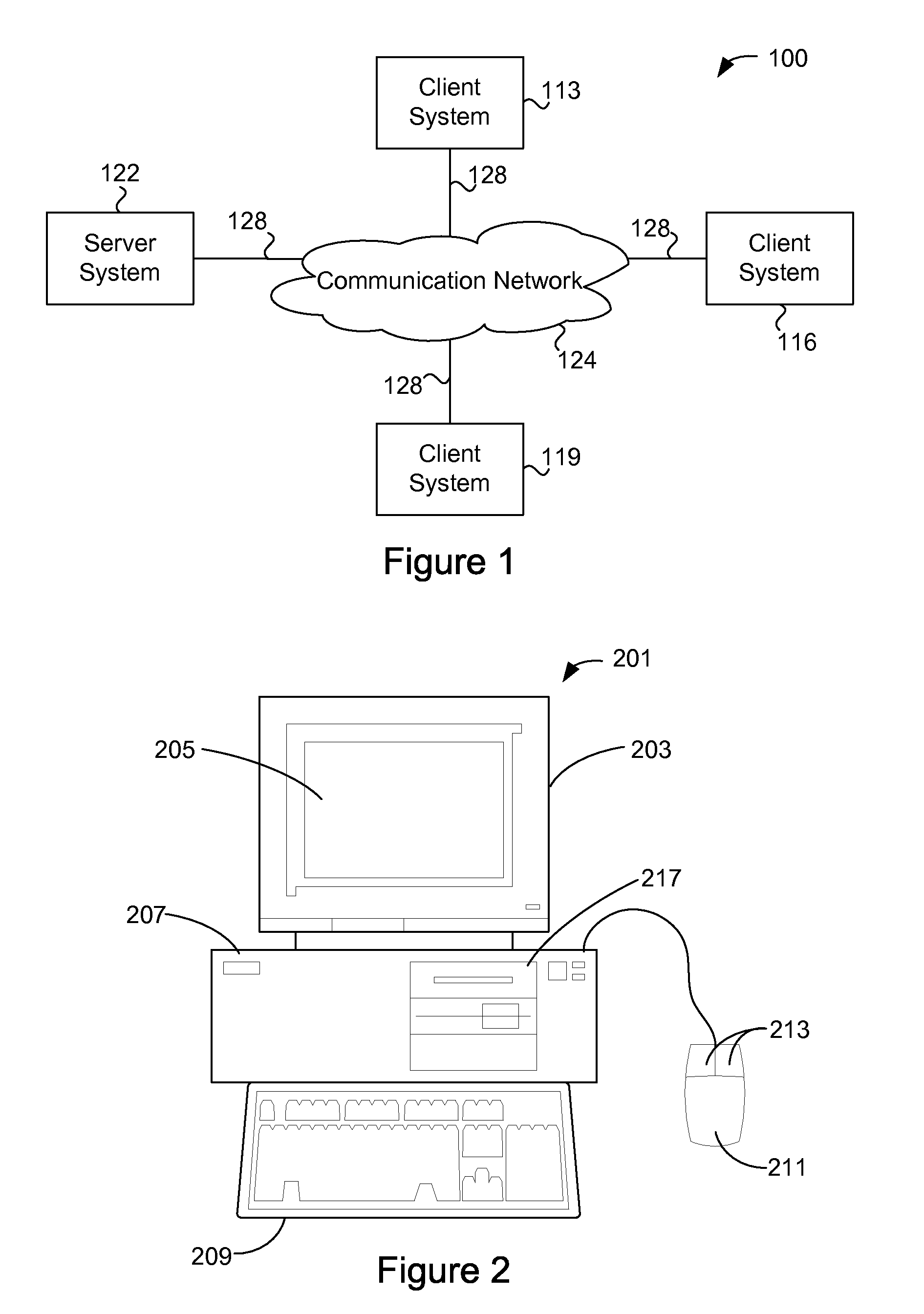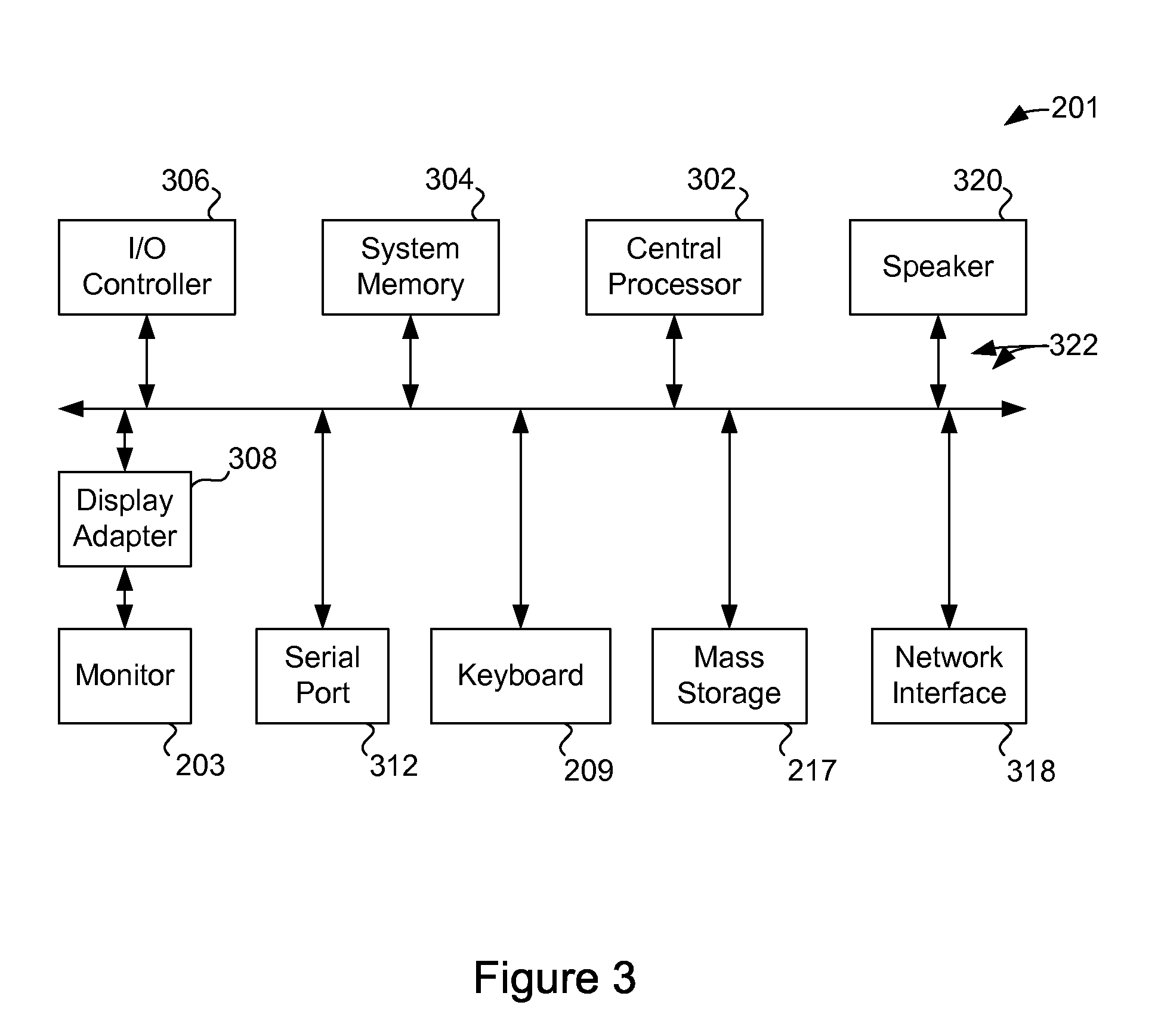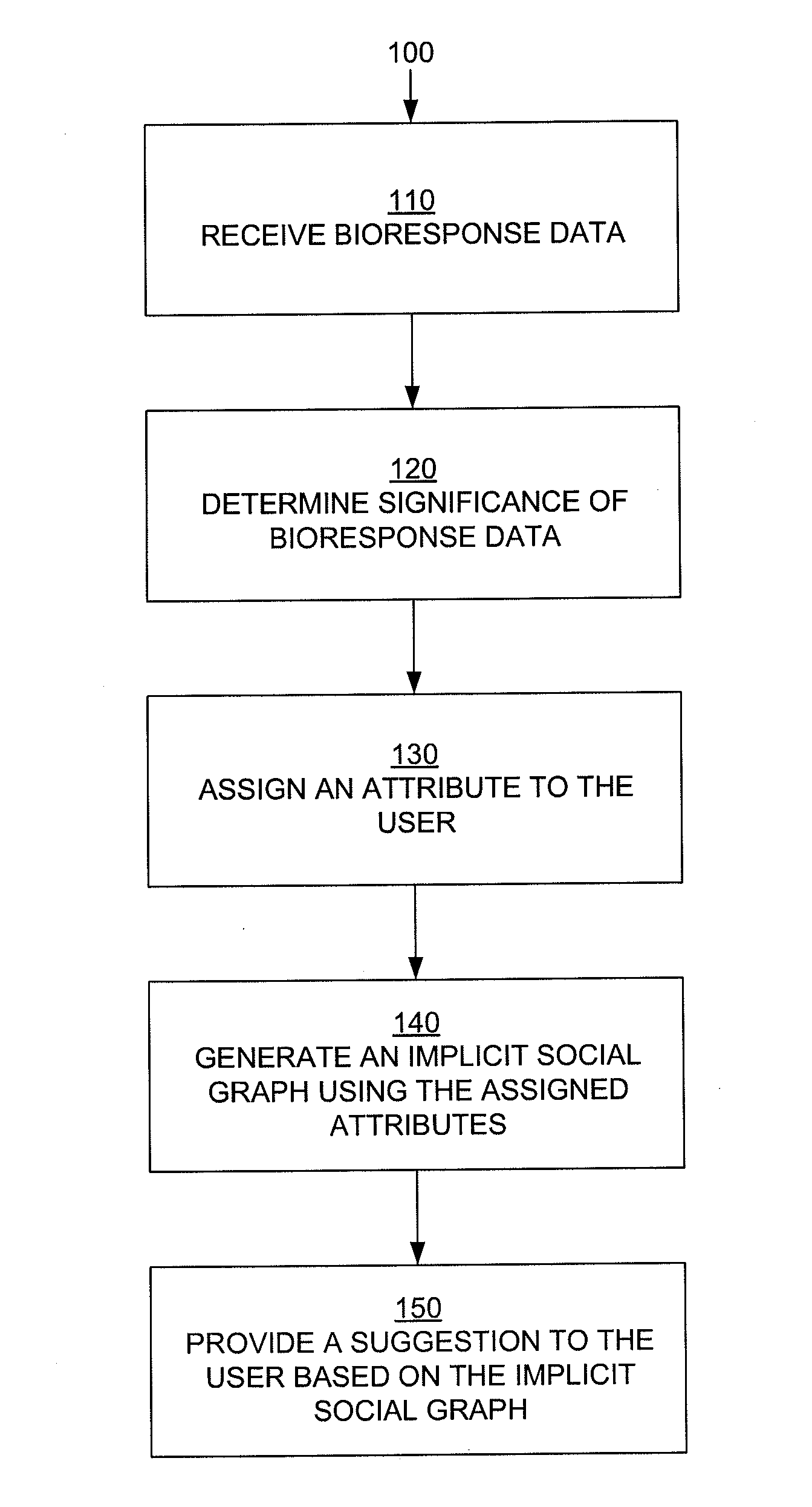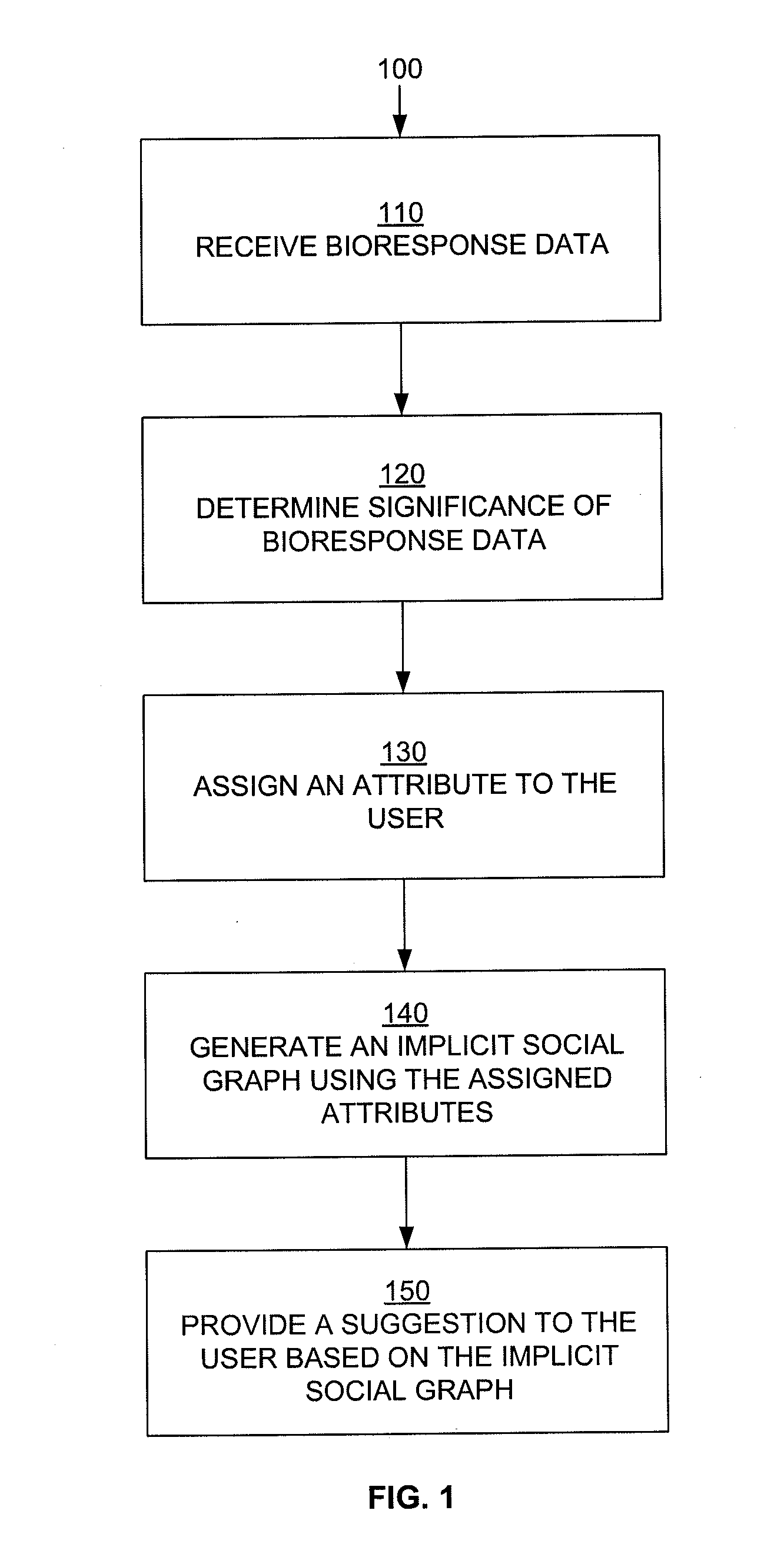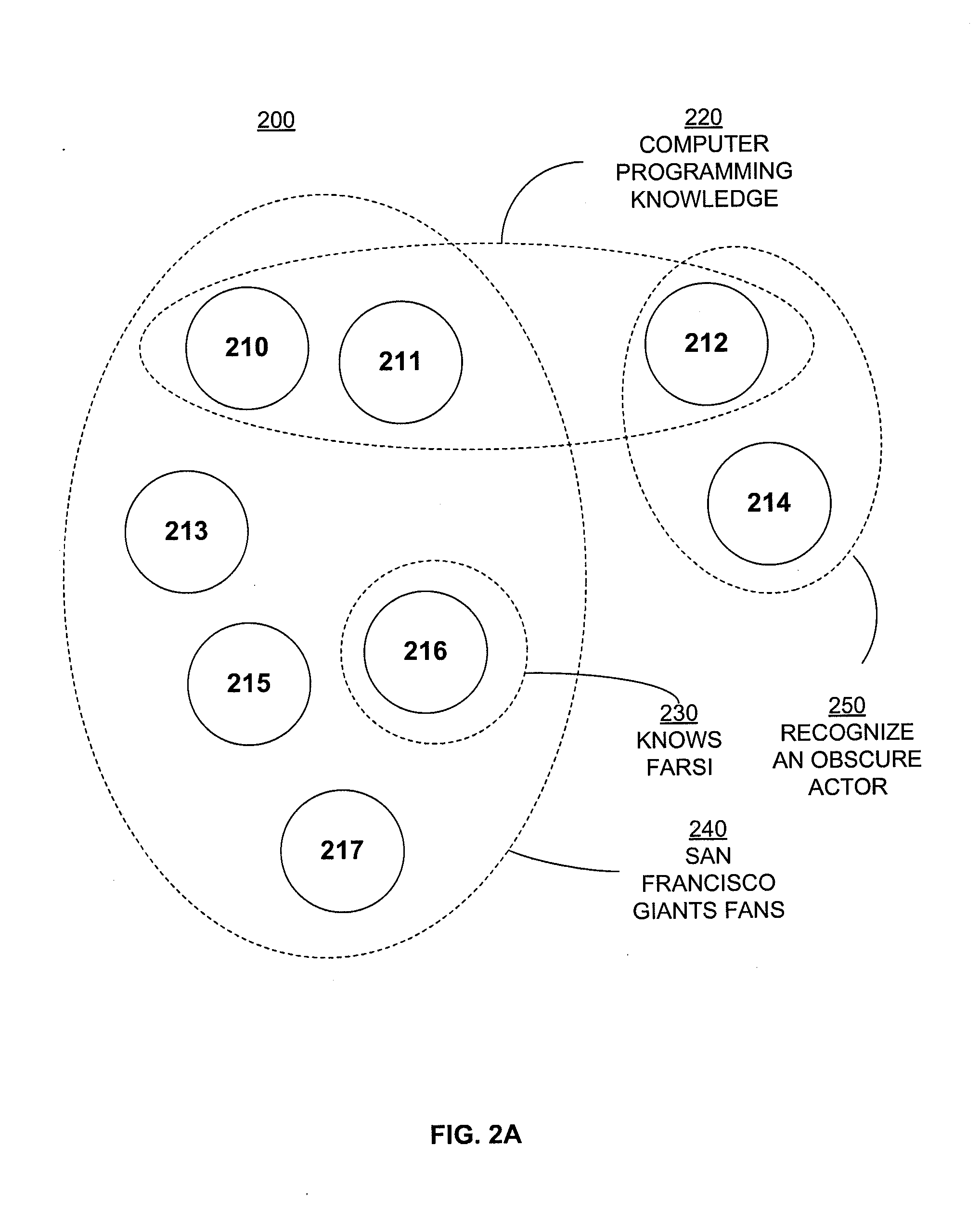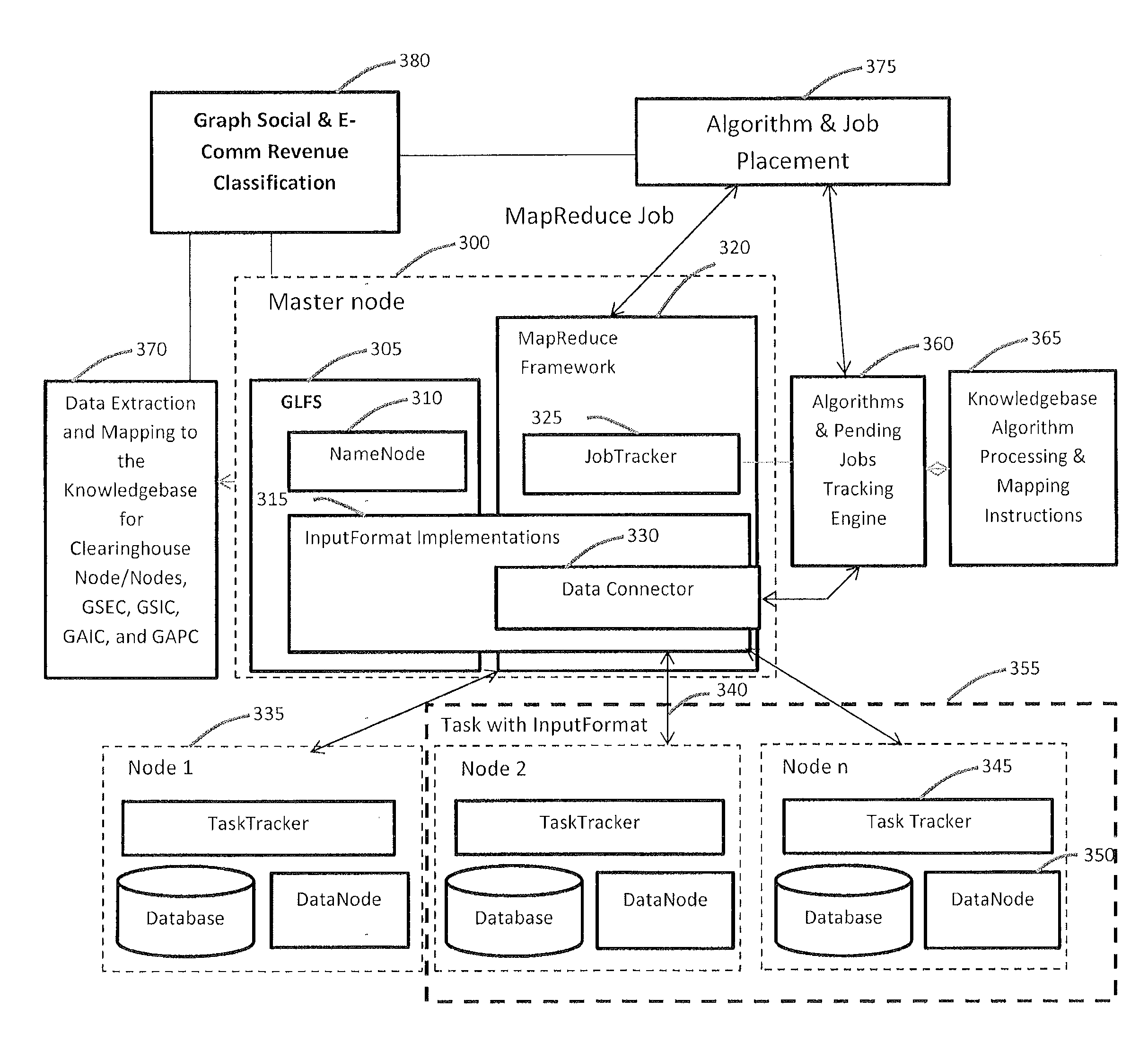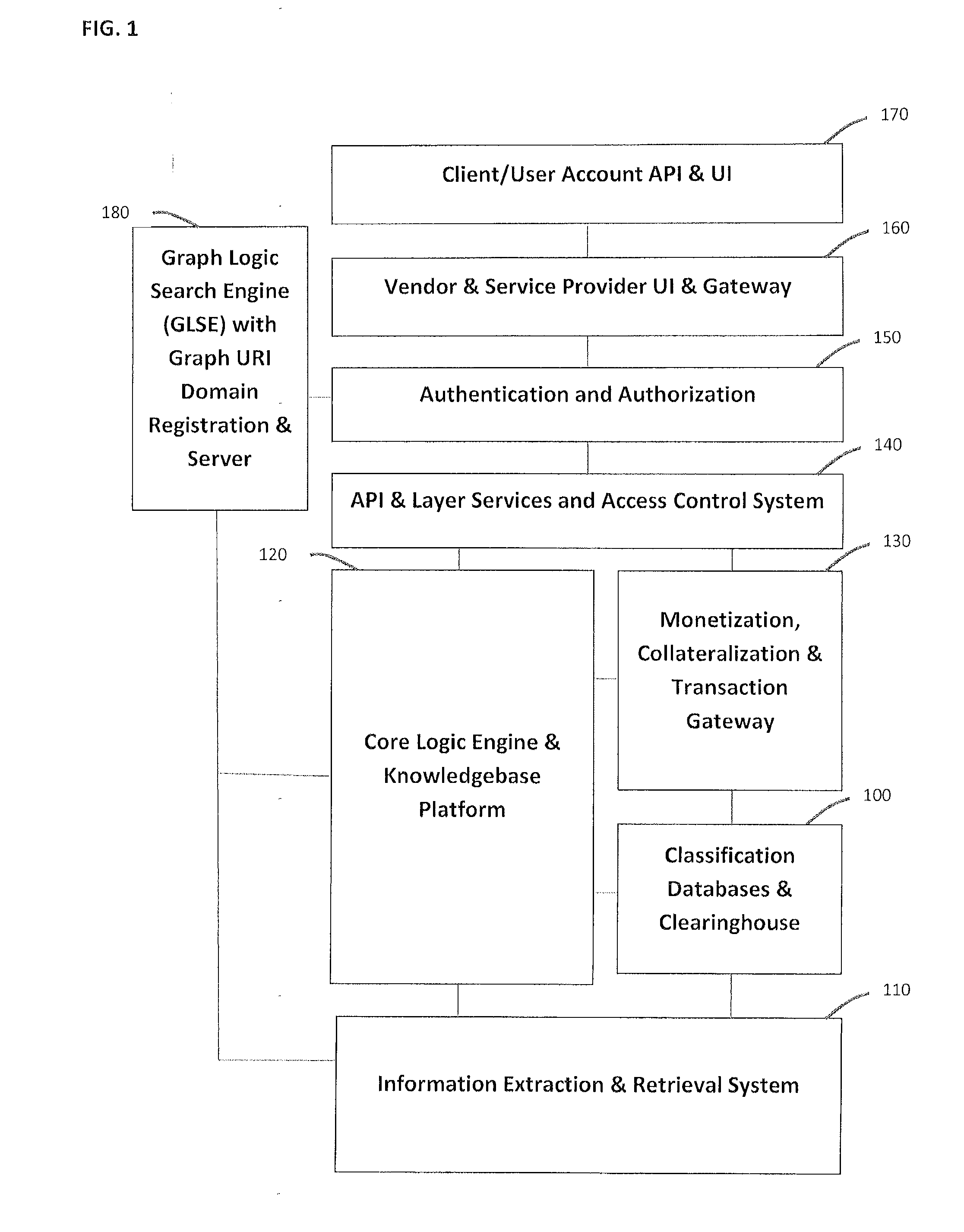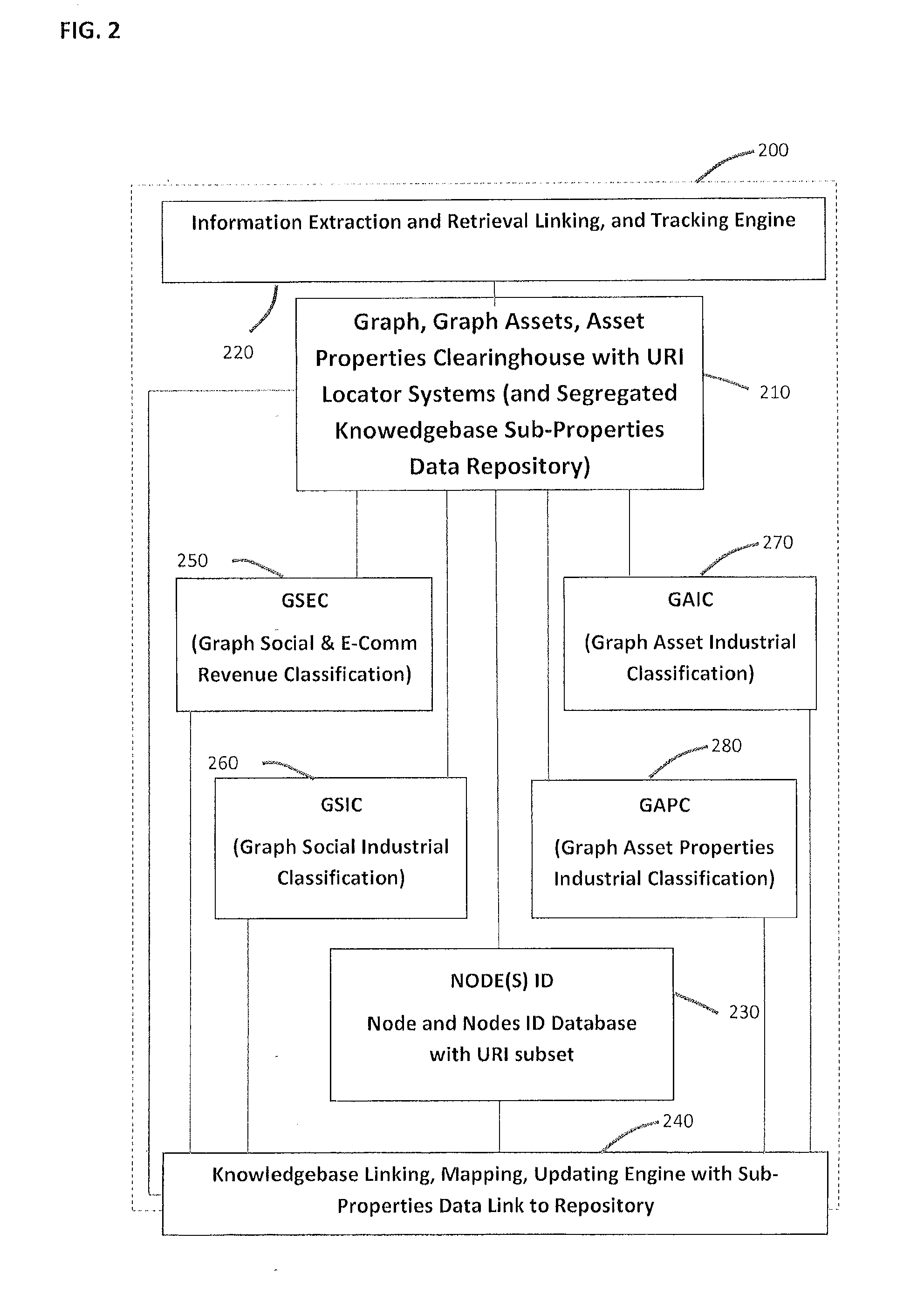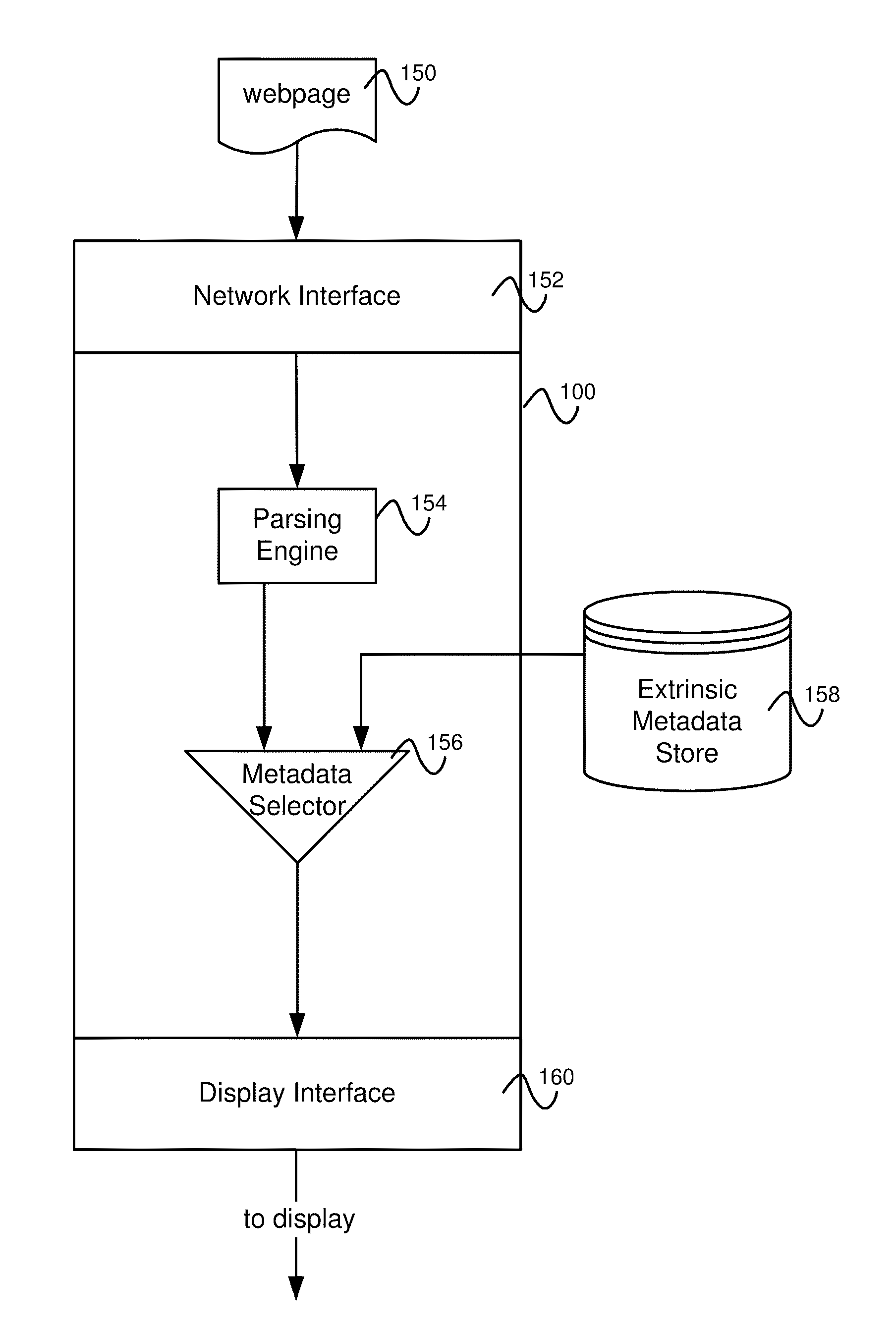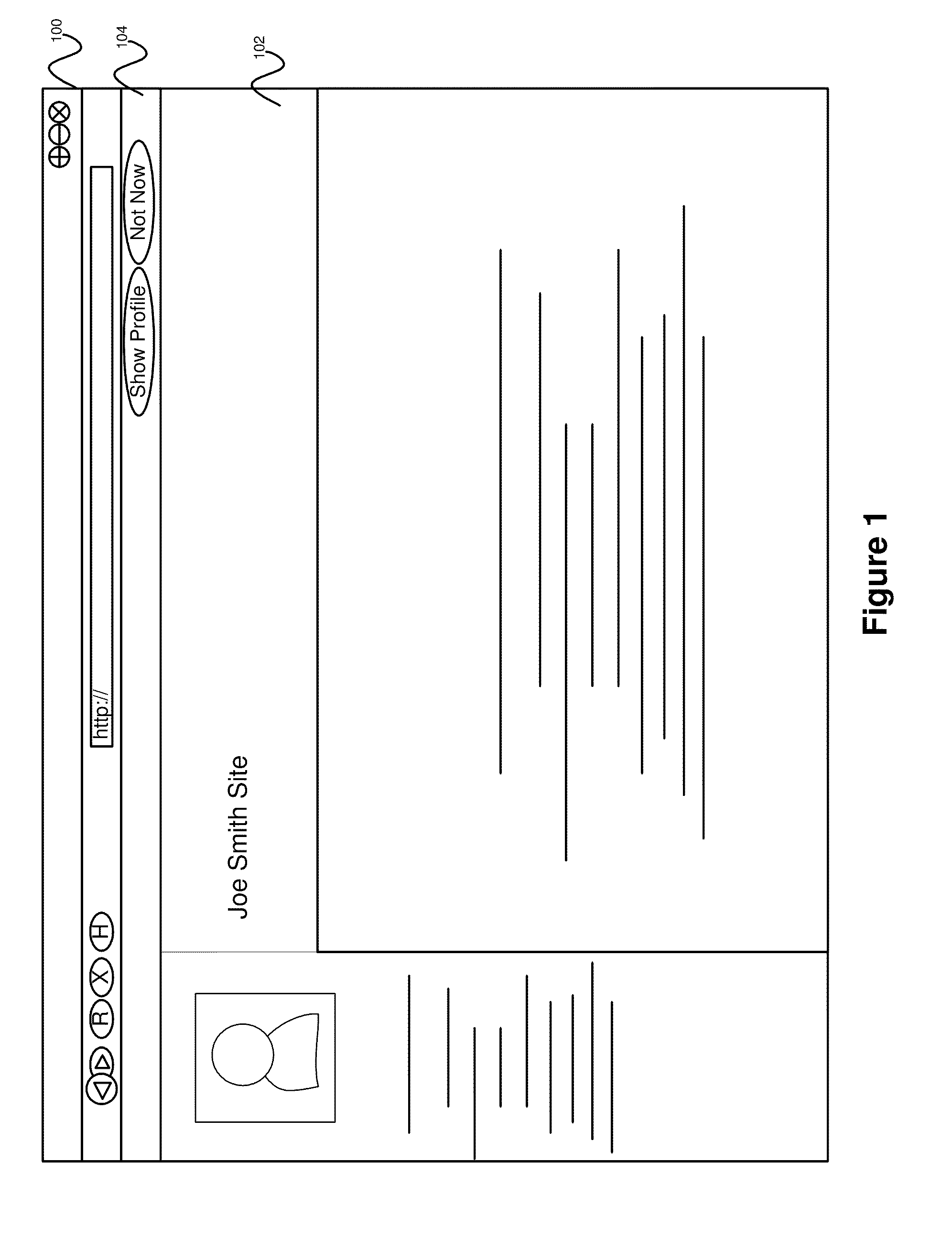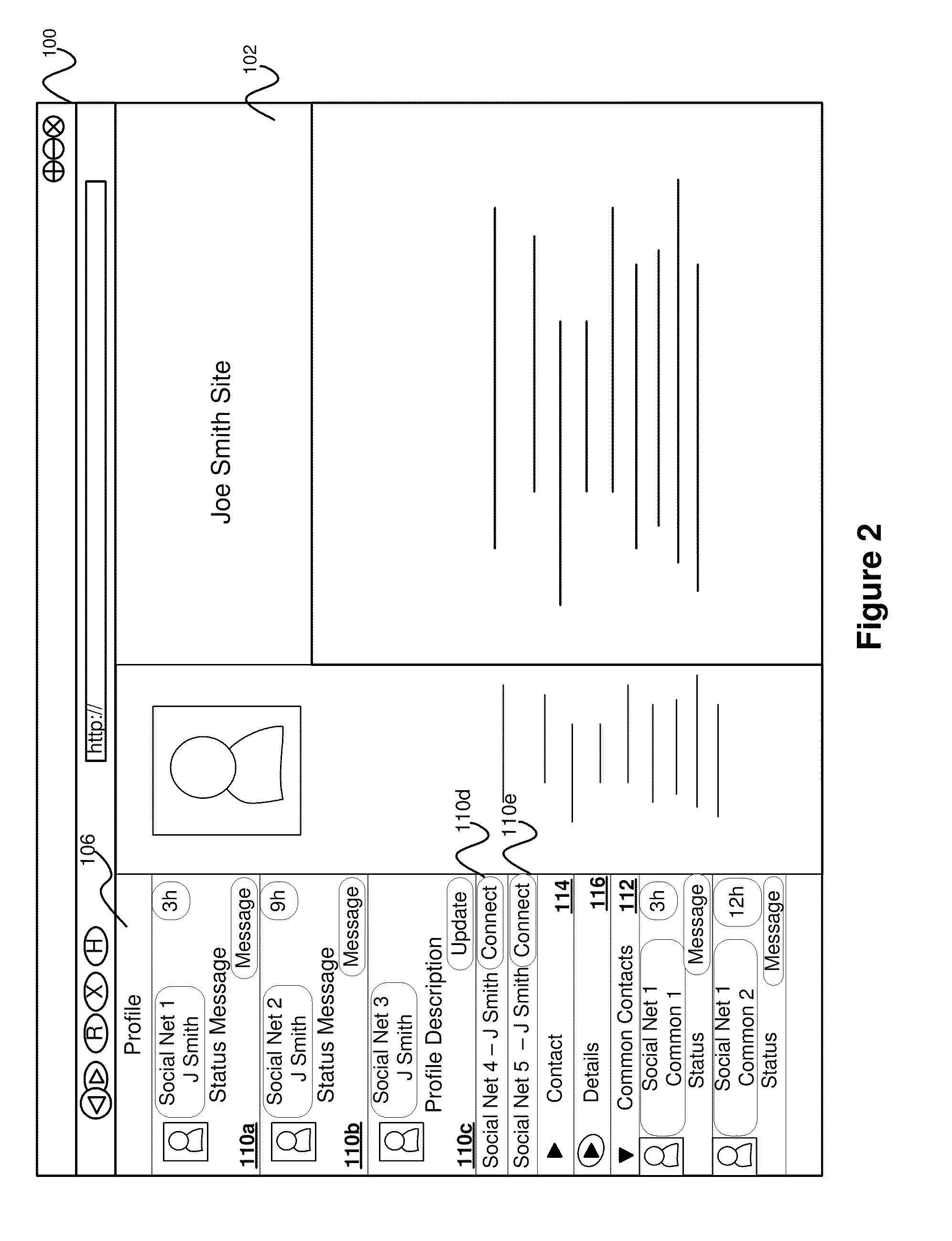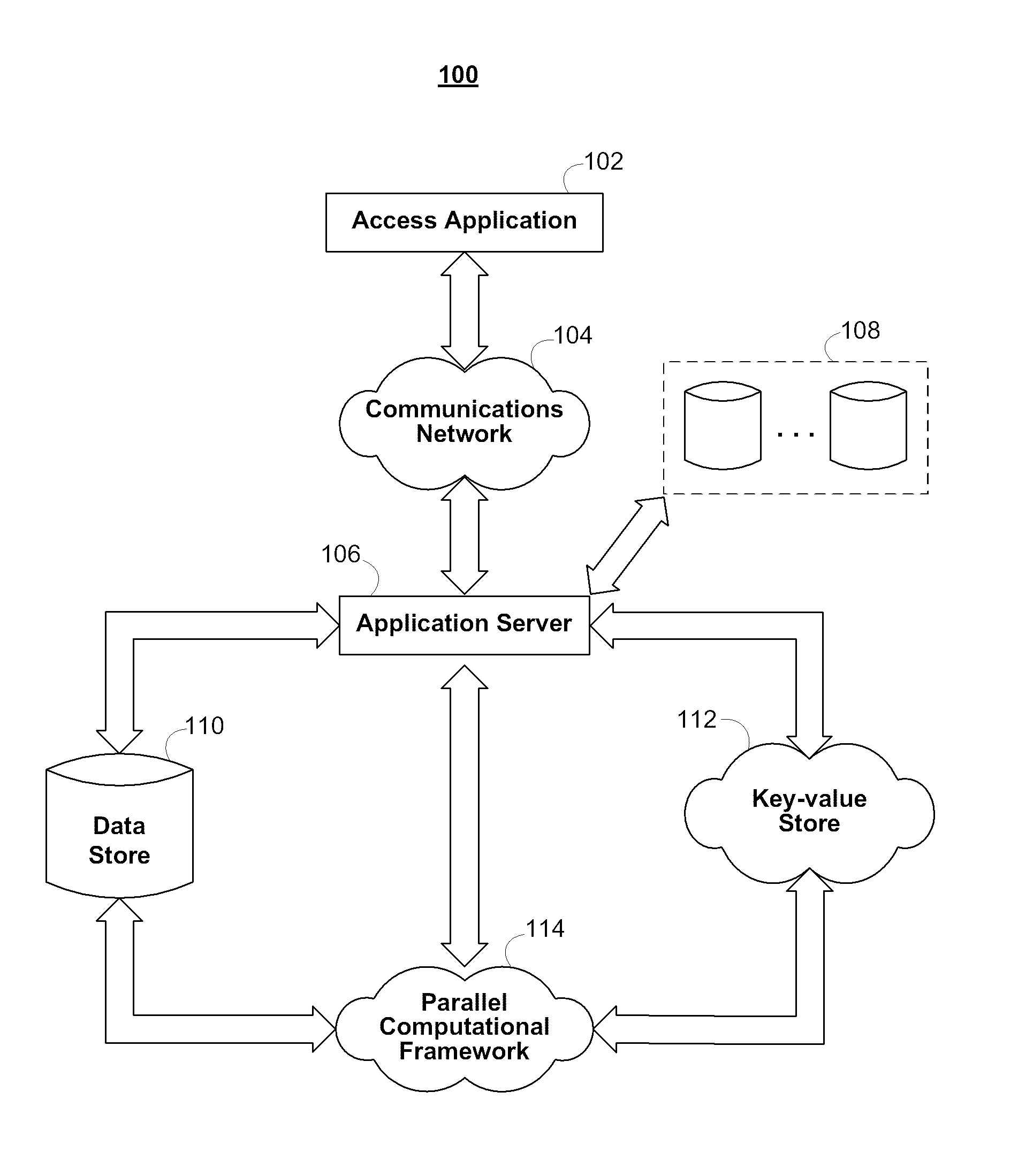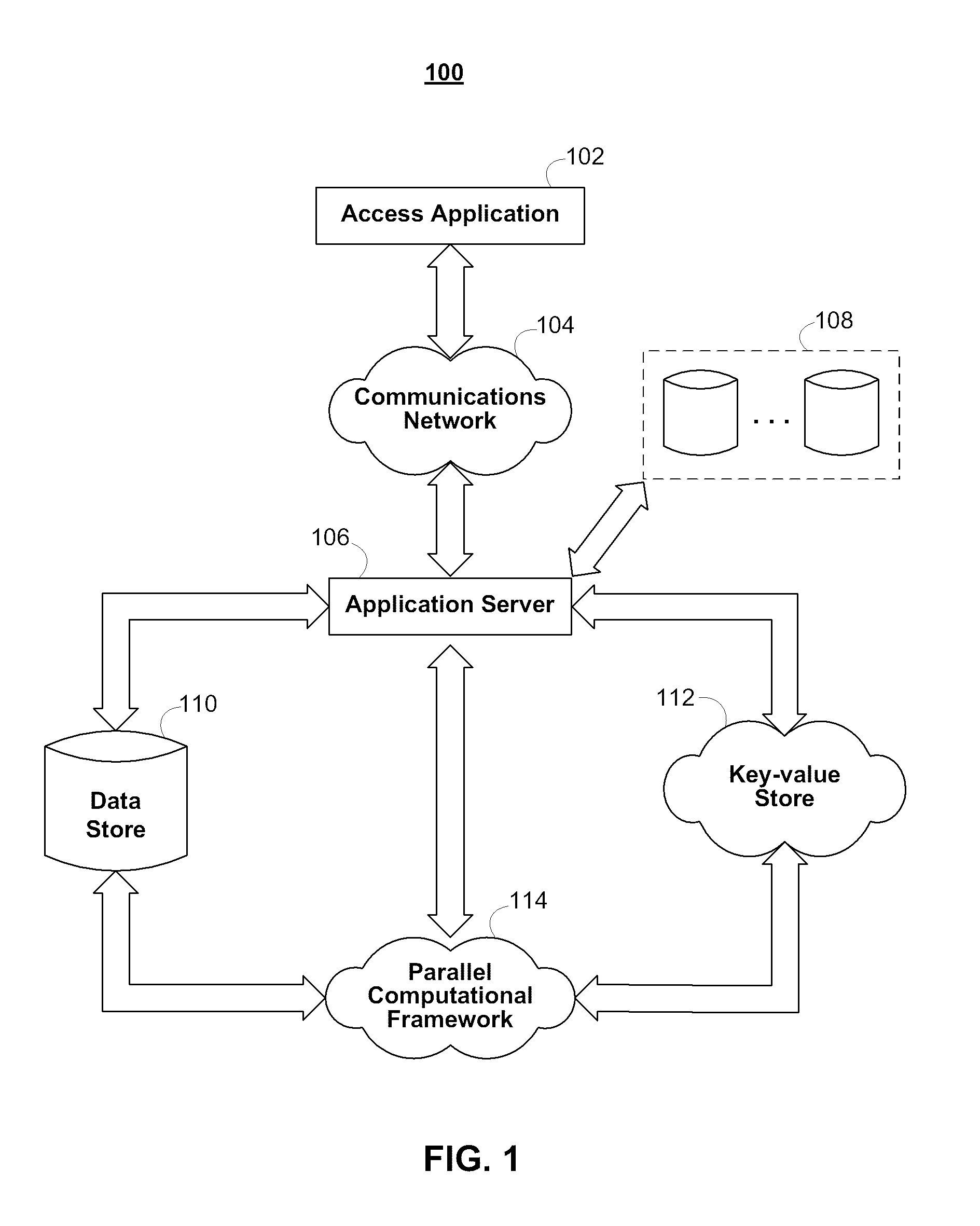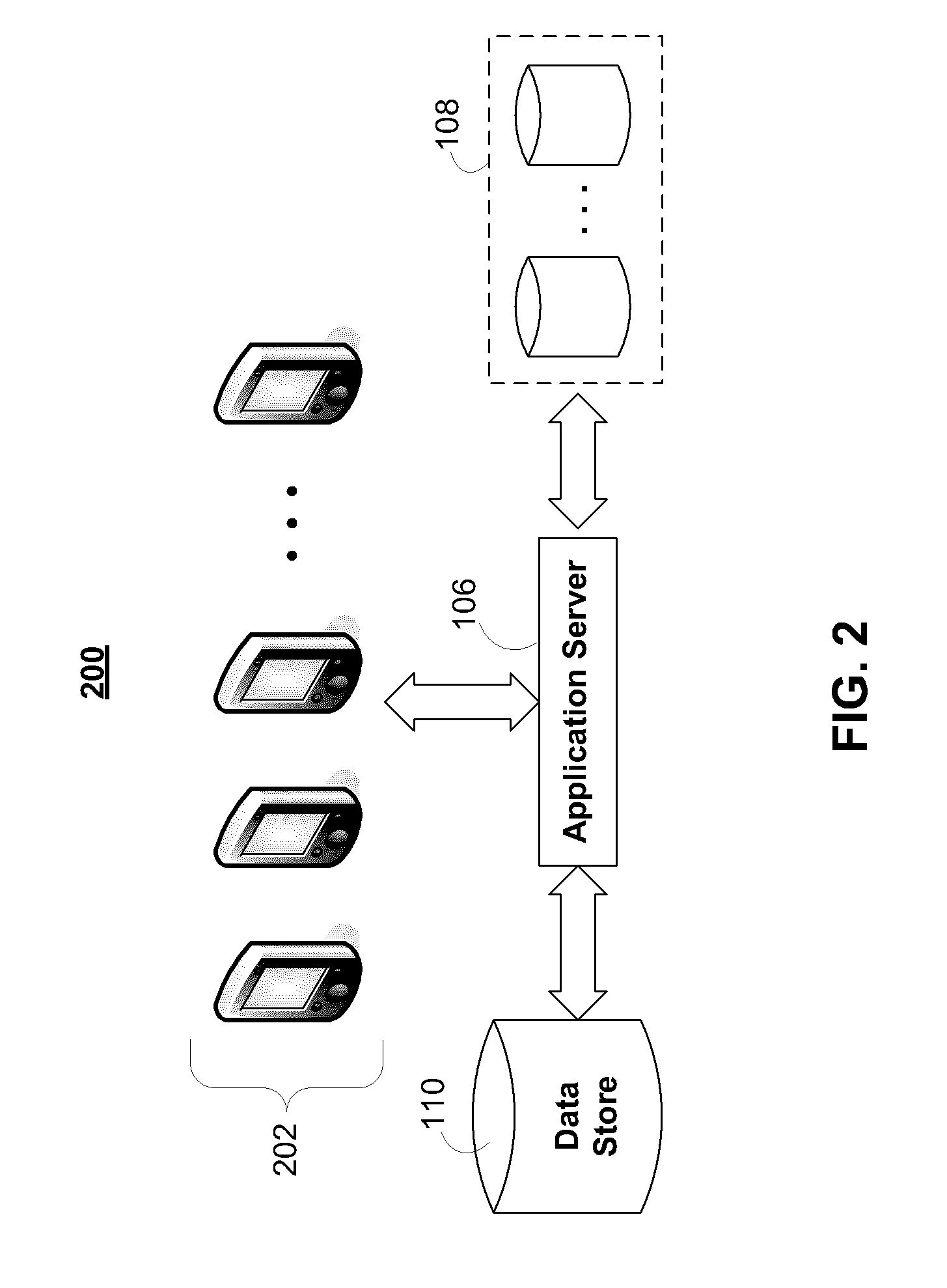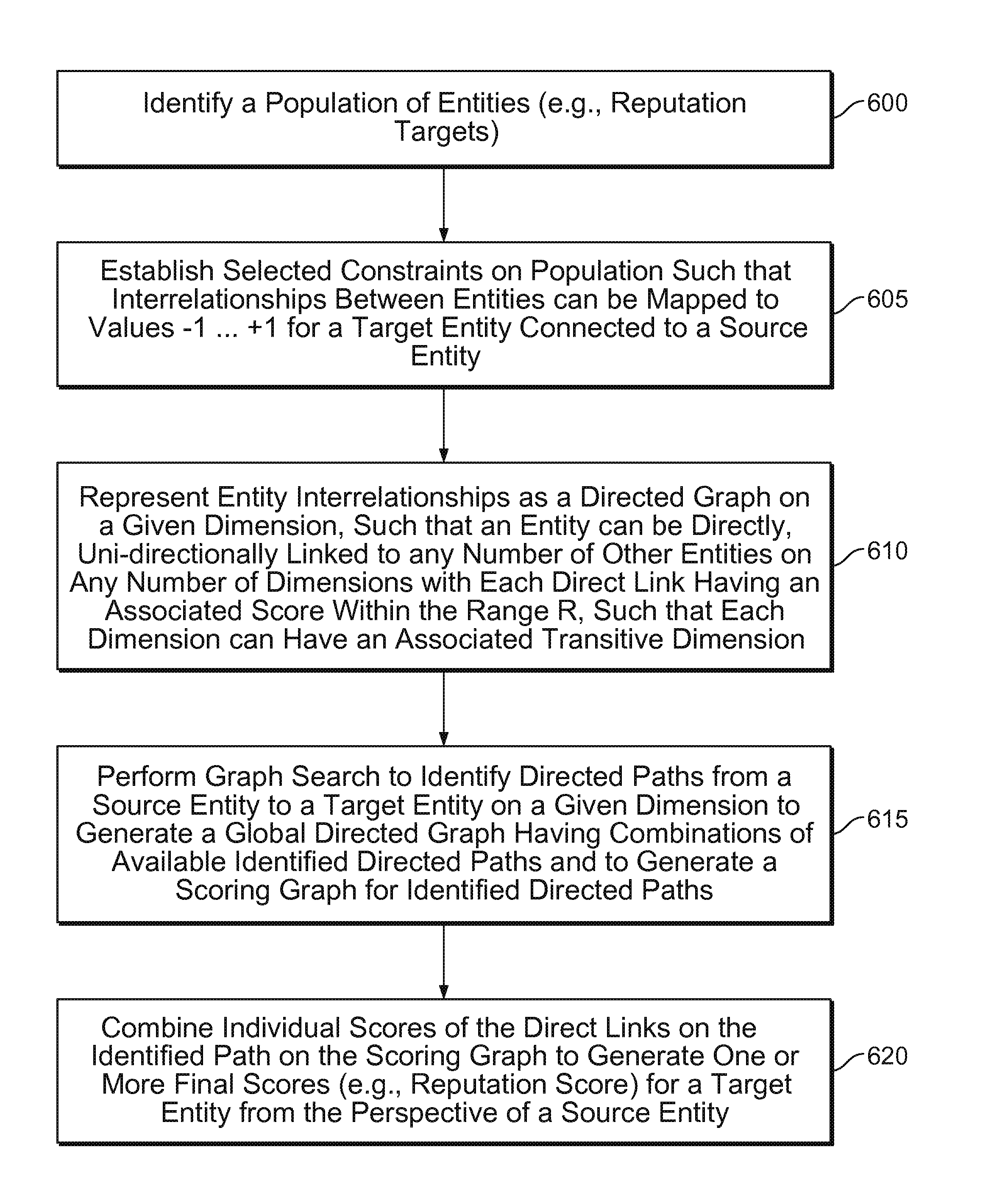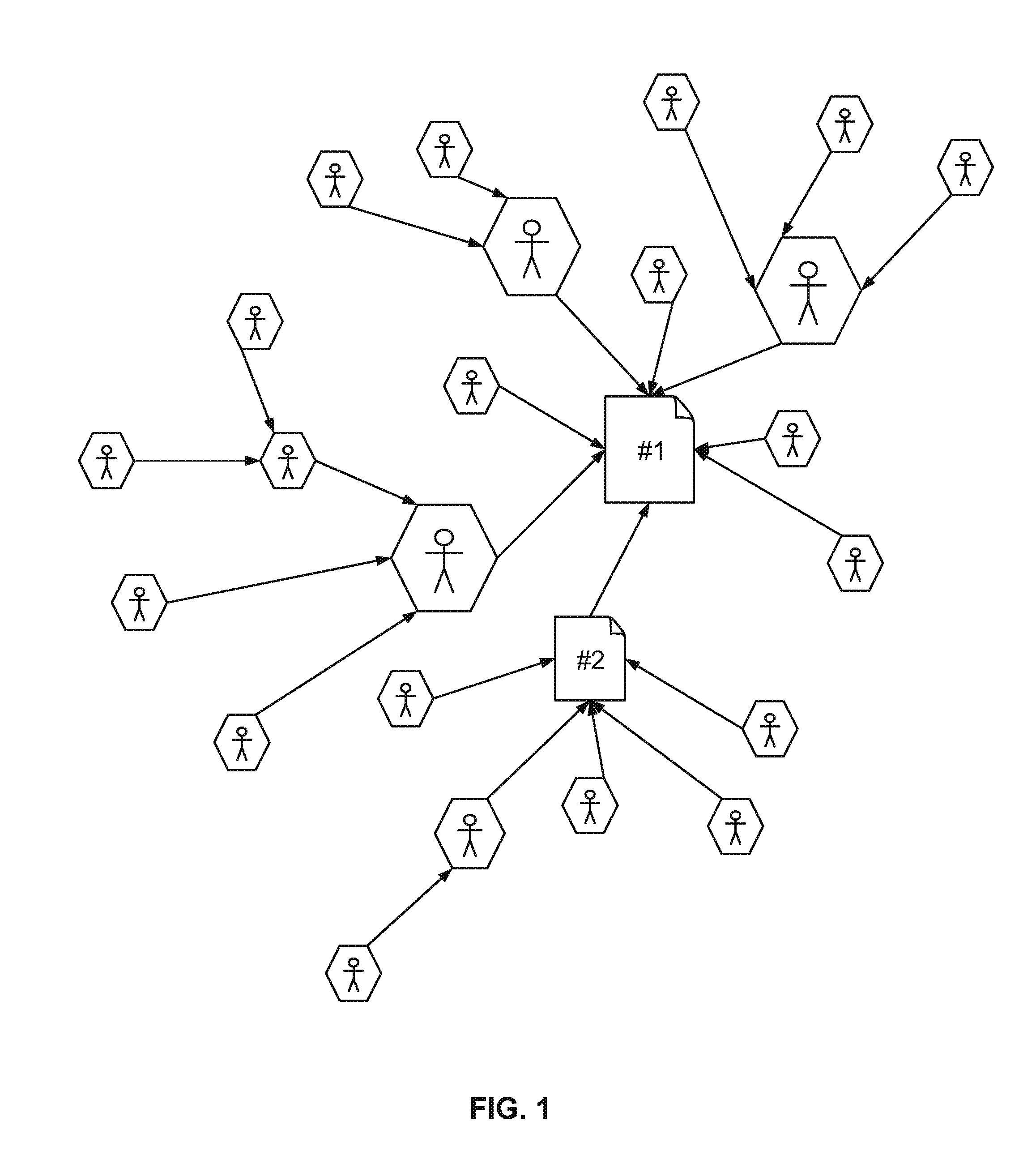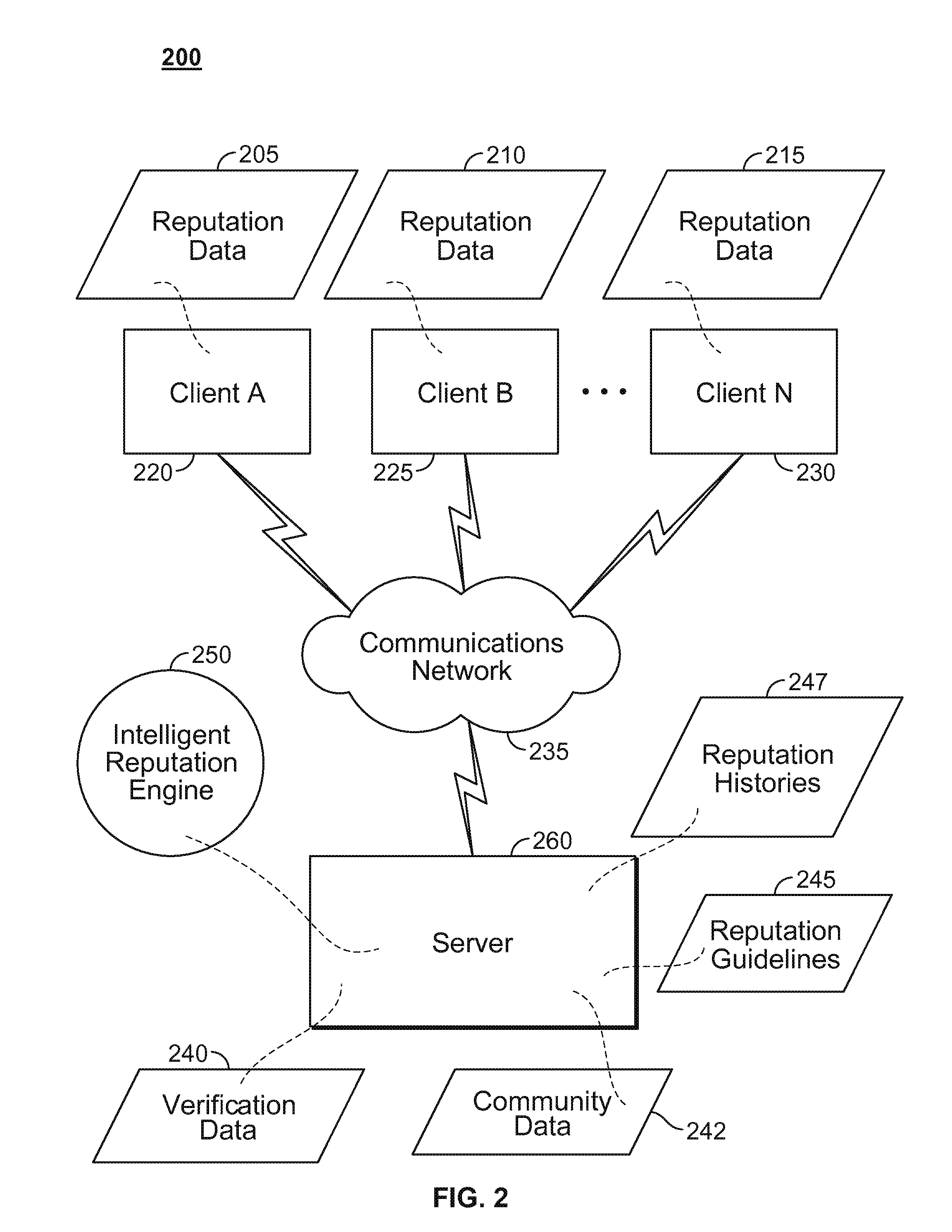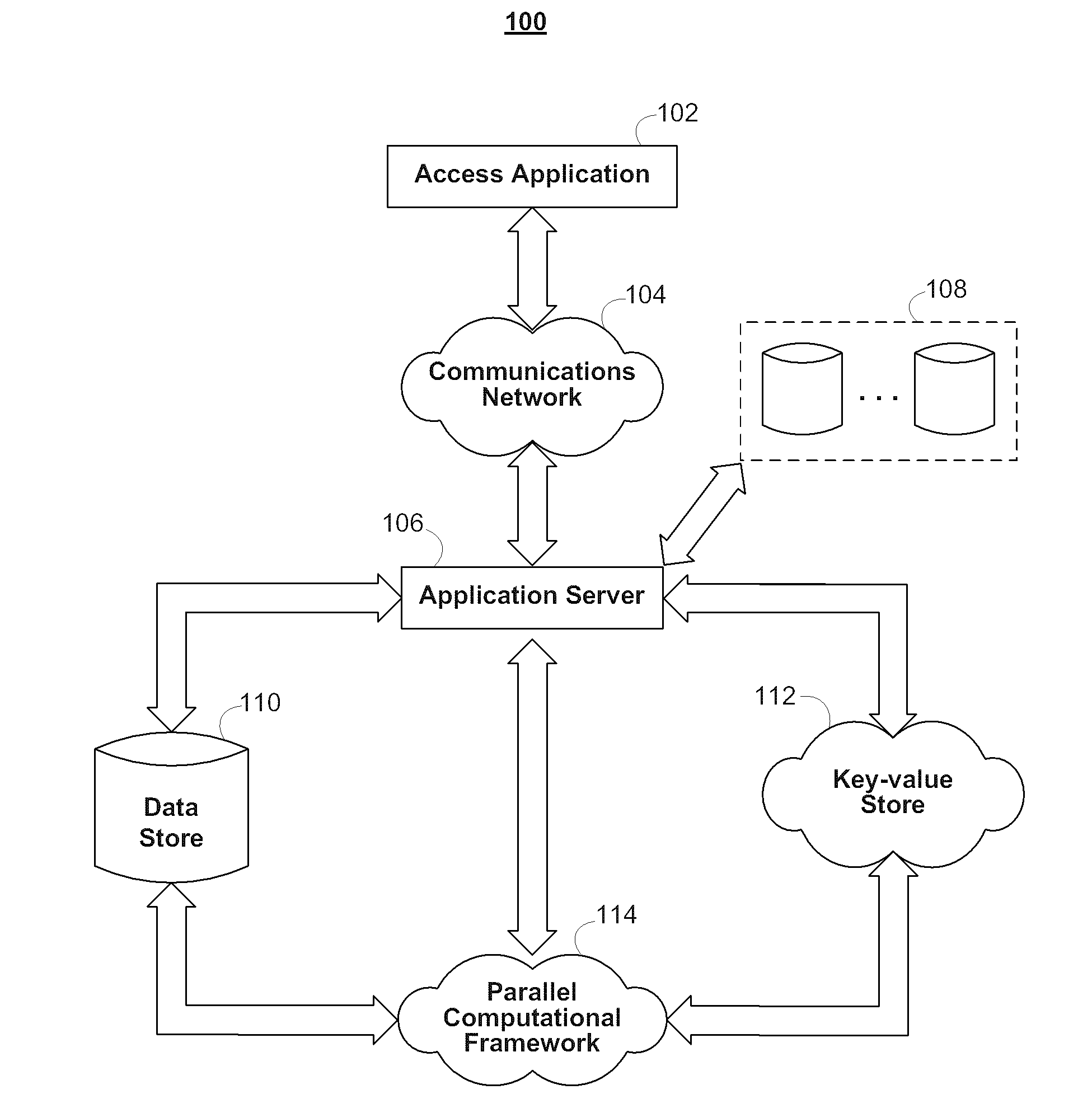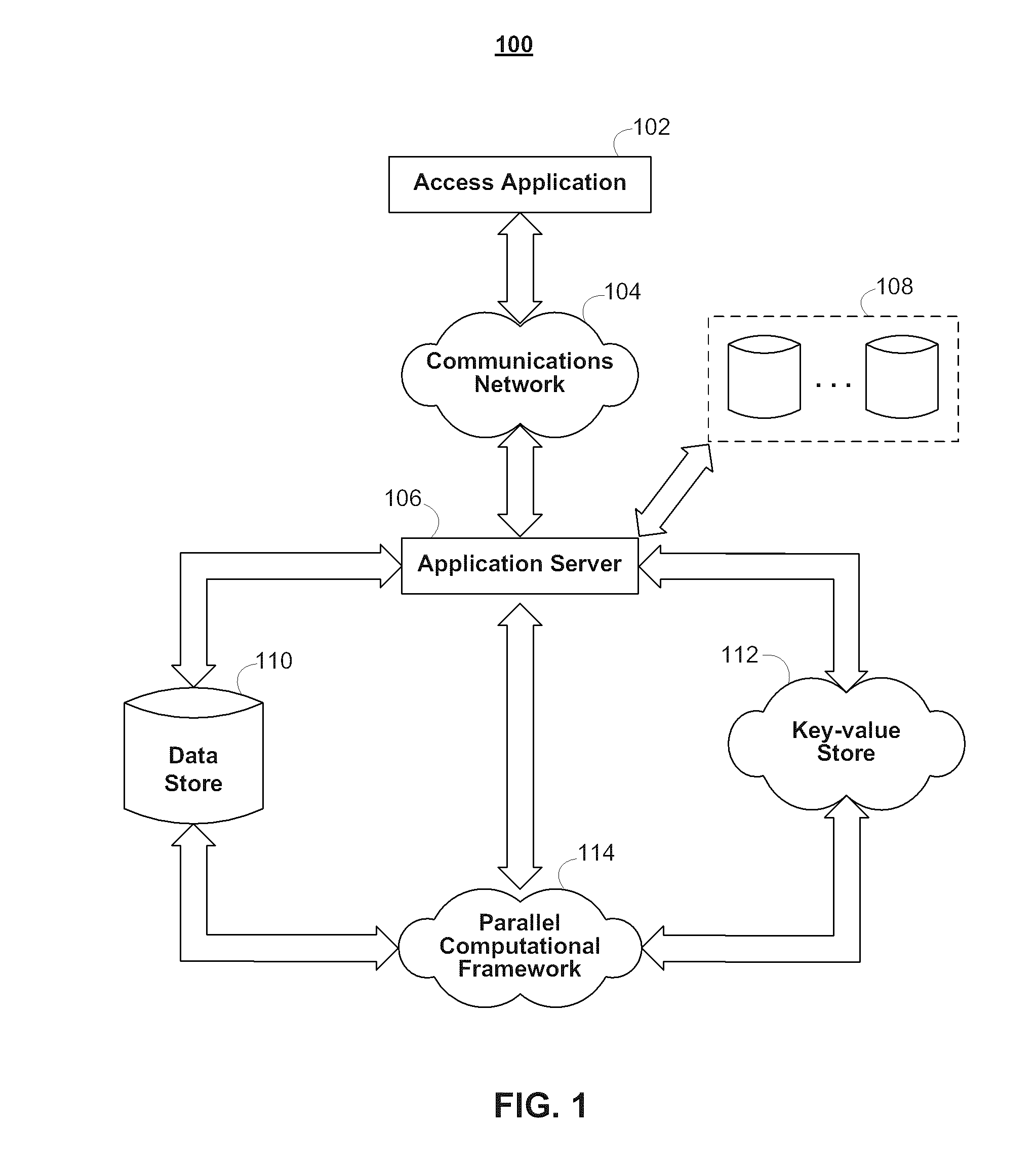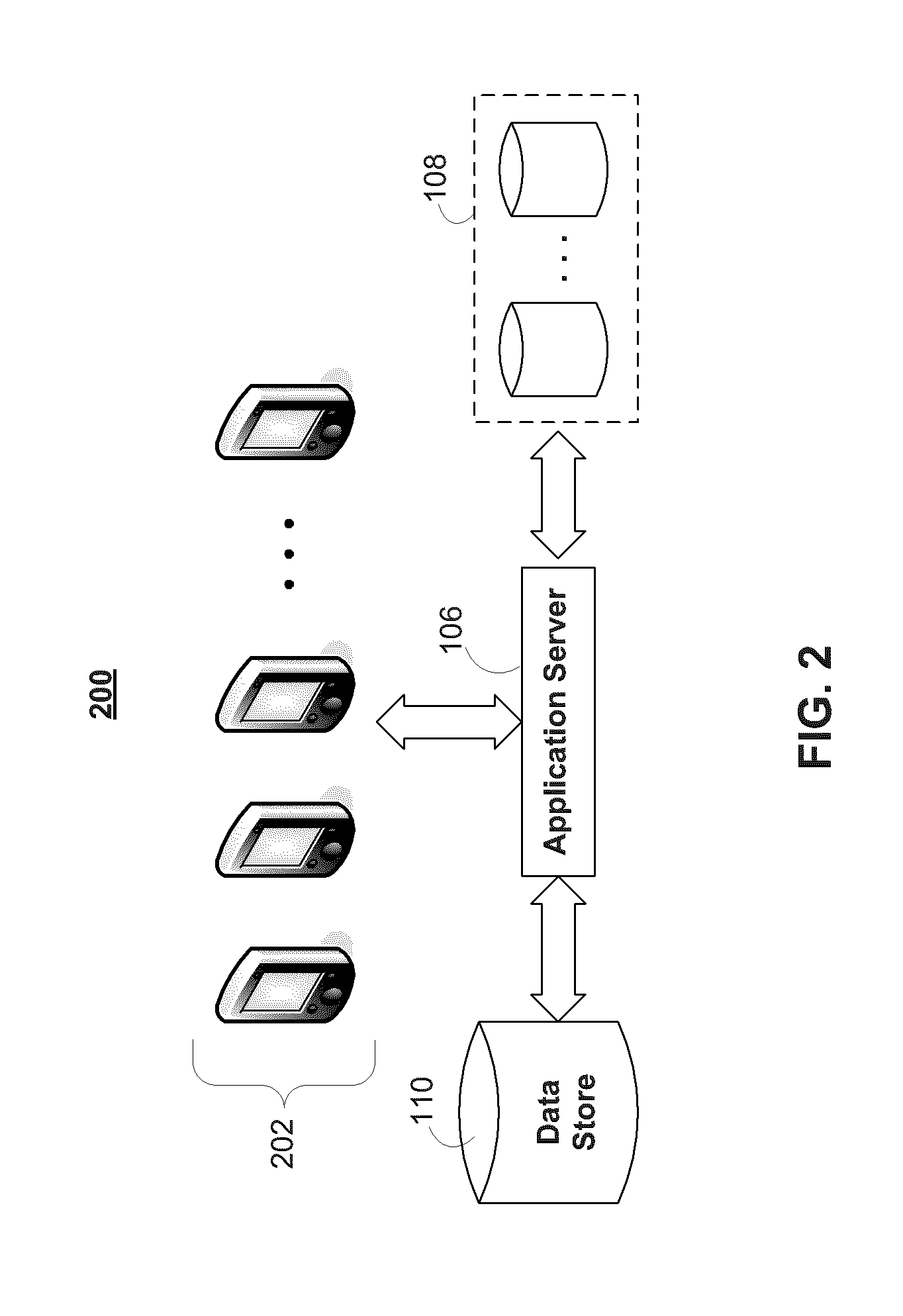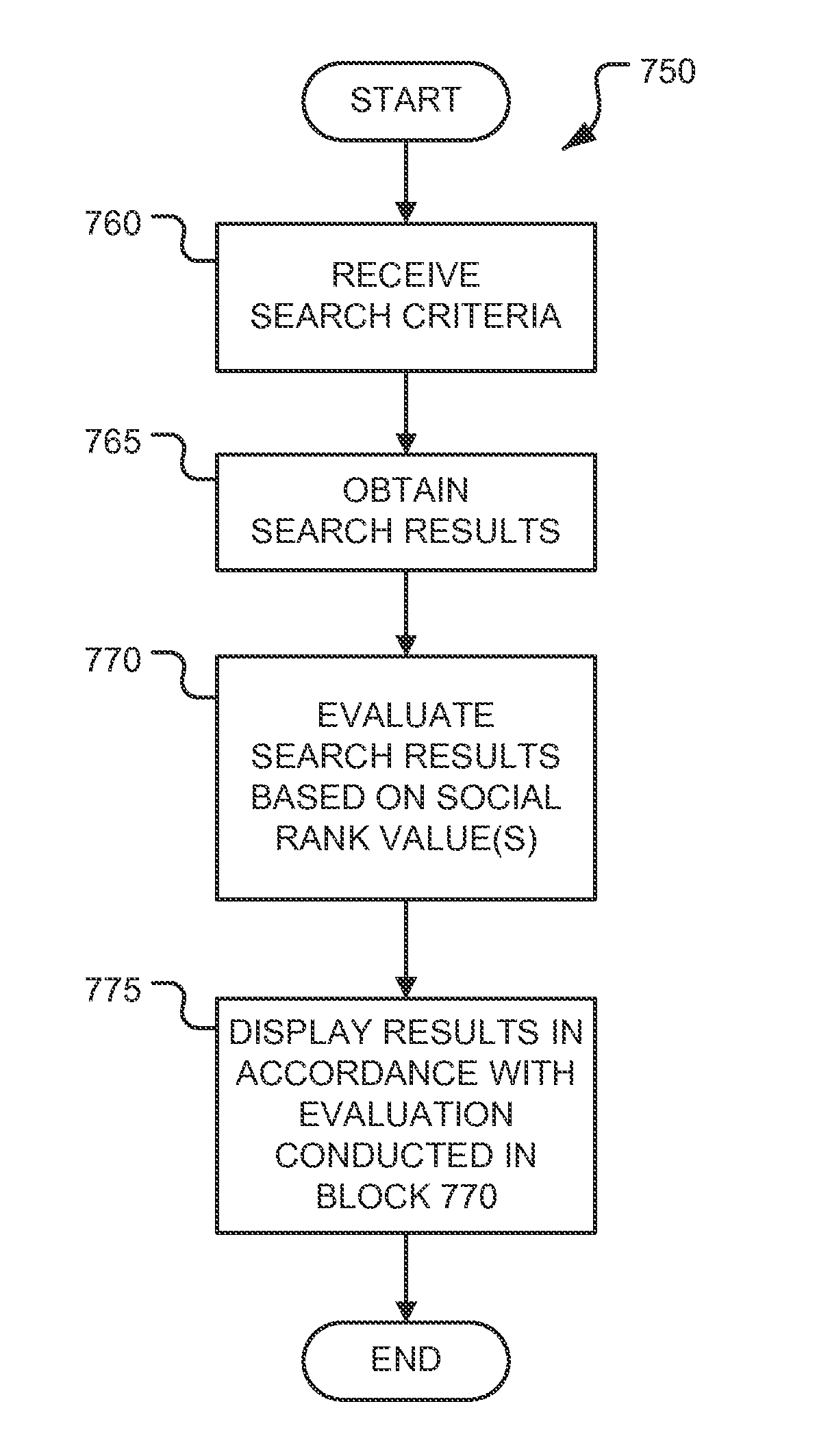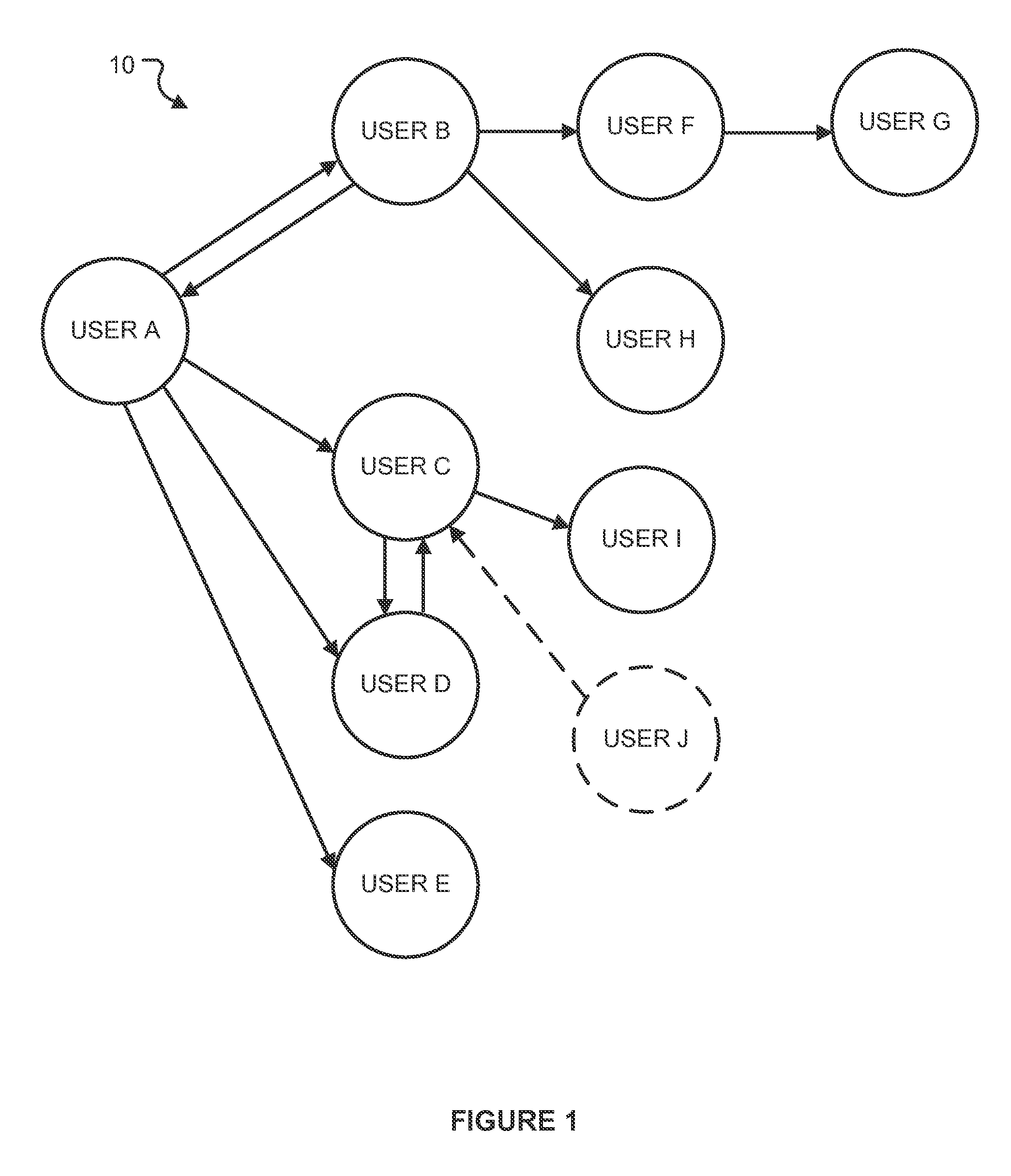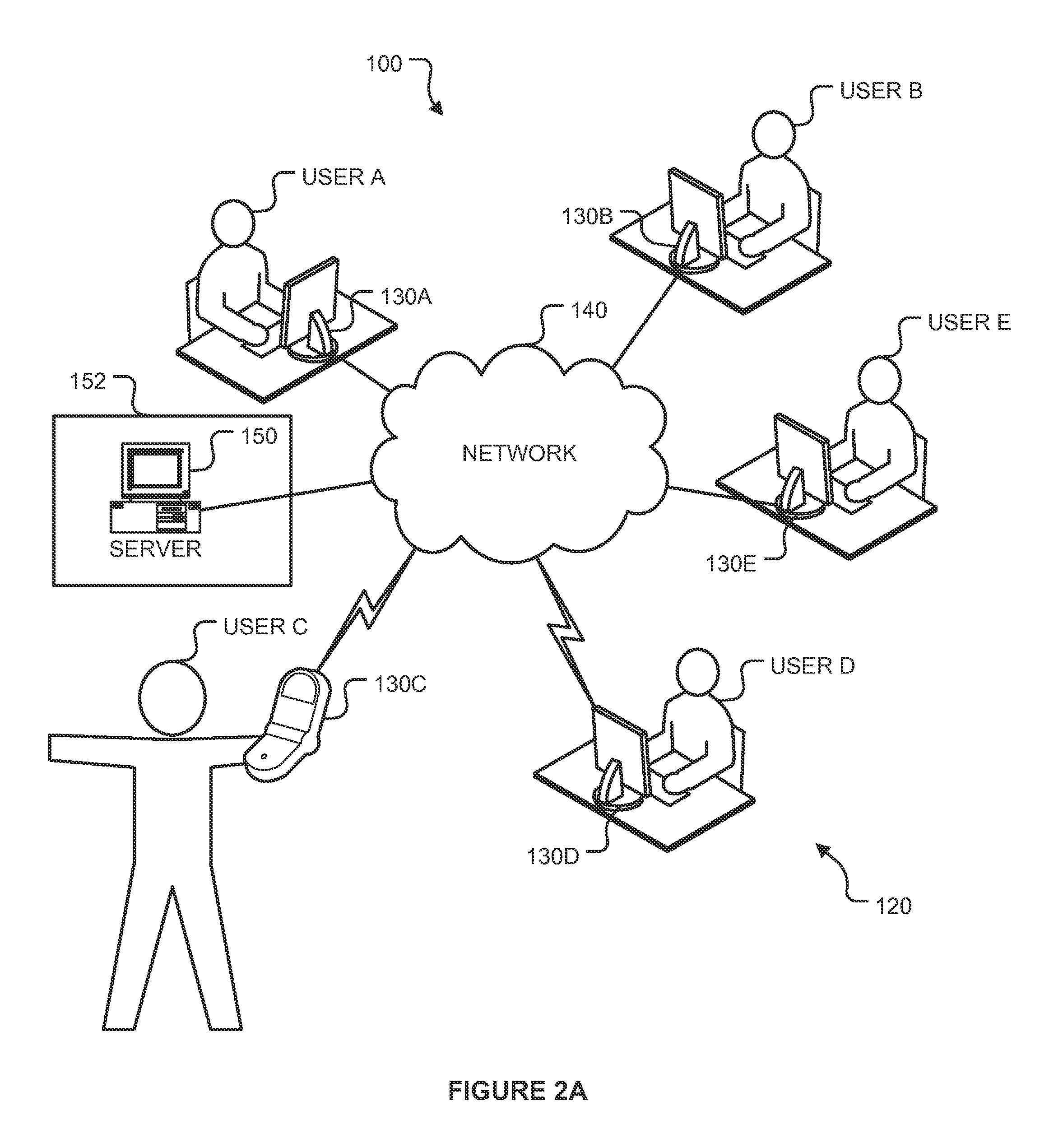Patents
Literature
Hiro is an intelligent assistant for R&D personnel, combined with Patent DNA, to facilitate innovative research.
383 results about "Social graph" patented technology
Efficacy Topic
Property
Owner
Technical Advancement
Application Domain
Technology Topic
Technology Field Word
Patent Country/Region
Patent Type
Patent Status
Application Year
Inventor
The social graph is a graph that represents social relations between entities. In short, it is a model or representation of a social network, where the word graph has been taken from graph theory. The social graph has been referred to as "the global mapping of everybody and how they're related".
System and method for enabling contextual recommendations and collaboration within content
InactiveUS20130275429A1Efficient preparationEasy to carryData processing applicationsDigital data processing detailsGraphicsSocial graph
A system for enabling contextual recommendations and collaboration recommendations, based on a user's current work, comprising a plurality of content collector software applications adapted to interface with a plurality of content management applications, an indexing engine software application, an expanded social network graph database, and a predictive content intelligence software application. The plurality of content collector software applications receive documents, document fragments, or other content objects from the plurality of content management applications, the indexing engine software application indexes the retrieved documents, document fragments, or other content objects and modifies the expanded social network graph database using results of the indexing, and the predictive content intelligence software application, using at least the results of the indexing and the expanded social network graph database, identifies at least a plurality of other content objects and a plurality of people that are relevant to the received documents, document fragments, or other content objects.
Owner:YORK GRAHAM +1
Method and system for identifying a key influencer in social media utilizing topic modeling and social diffusion analysis
InactiveUS8312056B1Influence computation processEfficient targetingData processing applicationsWeb data retrievalSocial mediaSpecific time
A system and method for identifying a key influencer in a social media environment for enterprise marketing utilizing topic modeling and social diffusion analysis. A user interest profile can be generated by analyzing historical data stored in a database utilizing. A social graph can be generated and an influence measuring process based on the social graph data can be performed utilizing a static diffusion model and a dynamic diffusion model to calculate a set of key influencers. The dynamic diffusion model considers time stamp information to assess an impact of each user communication on the growth of a conversation within a time period. The key influencer can be identified in a specific topic area and a number of total users that can be reached via the influencer within a specific time window can be predicted.
Owner:XEROX CORP
Optimization of social distribution networks
InactiveUS20090228296A1Increasing viralityDigital data processing detailsTransmissionObject termSocial graph
A computer-implemented method is provided, which includes labeling an object with one or more object terms that characterize the object. A social graph is constructed that represents an online social network, the social graph having vertices that represent respective members of the social network, and links that represent social connections between respective pairs of the members. Each of the links is tagged with one or more link terms that represent common interests between two of the members whose vertices are connected by the link. Responsively to a comparison of the object terms and the link terms with which the links have been tagged, respective distribution ranks are calculated for a plurality of the members. A message is sent to one of the members of the social network suggesting that the member distribute the object to a subset of the members responsively at least in part to the distribution ranks.
Owner:COLLARITY
Enterprise social graph and contextual information presentation
InactiveUS20100082695A1Website content managementSpecial data processing applicationsSocial mediaSocial graph
A system for aggregating social graph information uses both social networking and social media sites as well as optional access to enterprise data so that a detailed and comprehensive social graph can be generated. The social graph information is provided to users when contextually appropriate. Other contextually appropriate information can be displayed to users as they undertake different tasks.
Owner:BLAME CANADA HLDG
Personalized Structured Search Queries for Online Social Networks
ActiveUS20130191372A1Digital data information retrievalDigital data processing detailsSocial graphSocial web
In particular embodiments, a method includes receiving an text query, identifying nodes and edges from a social graph that correspond to character strings from the text query, and then generating recommended queries that include references to the identified nodes and edges.
Owner:META PLATFORMS INC
Automatically Generating Nodes and Edges in an Integrated Social Graph
In one embodiment, a method includes maintaining a data store of nodes and edges and for each of one or more users: scanning items of content associated with the corresponding user node; identifying a candidate item of content; searching for matches between the candidate item of content and existing nodes; determining whether or not a match between the candidate item of content and an existing node exists; and when it is determined that at least one match exists, generating an edge from the user node to the existing node for which the best match is determined; and when it is determined that no match exists, generating a new node based on the candidate item of content, and generating an edge from the user node to the new node.
Owner:META PLATFORMS INC
Identity management for open overlay for social networks and online services
Embodiments of the present invention provide methods and systems for managing the multiple identities used by a user. The user's existing contact lists, website accounts, buddy lists, and the like are analyzed to determine the identities used by the user. A graph is then constructed in order to track and integrate the multiple identities of the user in a social network. The social network graph may then be used by a social network overlay so that the user can share information across their different identities with different users that only know some of the user's multiple identities.
Owner:RED HAT
Messenger-linked service system and method using a social graph of a messenger platform
InactiveUS20130332543A1Reduce deliveryData processing applicationsServices signallingSocial graphExecution unit
A messenger-linked service system and method using a social graph based on a human relationship of a messenger are provided. The messenger-linked service system may include a relationship extraction unit to extract a social graph of a friend relationship of the messenger, a selection unit to select data in the messenger-linked service, and an execution unit to either transmit or to execute a sharing request of the selected data to the friend using the social graph.
Owner:LINE CORPORATION
Building a Social Graph with Sharing Activity Between Users of the Open Web
ActiveUS20120324027A1Improve ad targetingImprove content personalizationAdvertisementsMultiple digital computer combinationsPersonalizationSocial graph
A social graph is built which includes interactions, sharing activity, and connections between the users of the open Web and can be used to improve ad targeting and content personalization. Sharing activity between two users will affect ads or content that both users will be presented while surfing the Web. This sharing activity includes sending of links, sending of videos, sending of files, cutting and pasting of content, sending text messages, and sending of e-mails.
Owner:R1DEMAND LLC
Presenting plurality types of interfaces and functions for conducting various activities
InactiveUS10310723B2Low costEnable reuseExecution for user interfacesData switching networksPaymentWeb site
A methods, systems and apparatus for enabling user to access, use, register, communicate, connect, participate, share, transact and interact with internet enabled or associate heterogeneous types of web sites, web sites' heterogeneous features, applications, services, objects, data & user connections, web pages, portals, functions, widgets, objects, applications, providers, sources, destinations, services, servers, databases, networks, devices, social networks, search engines, e-commerce web sites, peer top peer networks, web services, APIs, storage mediums, user data, profiles, payment information, social graph, user connections for conducting various user activities, actions, transactions, interactions & communications from one place or single or parent user interface or via interfaces & functions management interface. User can also communicate with other interfaces & functions management interfaces of other users of network(s).
Owner:PROGWEBT LLC
Systems and methods for collateralizing loans
Systems and methods are disclosed for collateralizing loans. Some embodiments increase the likelihood of repayment by obtaining access to a qualified attribute of a borrower by a first computer component, monitoring by a second computer component for a financial event associated with the loan to the borrower, and taking control of the qualified attribute of the borrower by a third computer component. Taking control may include notifying social contacts. Securing the loan by taking various security interests and technical countermeasures against the borrower re-obtaining access or re-taking control are disclosed. Providing loans, receiving loan applications, providing loans proceeds, processing payments, and underwriting criteria are disclosed. Underwriting employing social contacts for recommendations, loan guarantees, social contact credit scores, public repayment promises, loan repayment coaches, fraud criteria, crowdsourced risk evaluation, social graphs, borrower stability factors derived from social graphs, data associated with online information repositories, and efficacy of notification are disclosed.
Owner:SOCIOGRAMICS
Presenting plurality types of interfaces and functions for conducting various activities
A methods, systems and apparatus for enabling user to access, use, register, communicate, connect, participate, share, transact and interact with internet enabled or associate heterogeneous types of web sites, web sites' heterogeneous features, applications, services, objects, data & user connections, web pages, portals, functions, widgets, objects, applications, providers, sources, destinations, services, servers, databases, networks, devices, social networks, search engines, e-commerce web sites, peer top peer networks, web services, APIs, storage mediums, user data, profiles, payment information, social graph, user connections for conducting various user activities, actions, transactions, interactions & communications from one place or single or parent user interface or via interfaces & functions management interface. User can also communicate with other interfaces & functions management interfaces of other users of network(s).
Owner:PROGWEBT LLC
Real time information feed processing
ActiveUS20110029636A1Multiple digital computer combinationsWebsite content managementTime informationSocial graph
A real time information feed system comprises an interface to receive a real time information feed and a data mining engine for retrieving data concerning a subscriber. A recommendation engine automatically modifies the real time information feed according to the mined data; and a subscriber interface outputs the modified real time information for delivery to the subscriber. The data mining engine is adapted to mine data in a real time communication medium used by the subscriber, such as a micro-blogging service. The data mining engine comprises an indexer for mining and indexing the real time information feed and the subscriber data to provide a plurality of indexes; and to generate vectors representing the separate indexes and to compare the vectors to modify. The data mining engine and the recommendation engine combine recommendation and information retrieval settings from a plurality of online and offline sources to produce a single amalgamated list of results to harness a user's usage patterns and social graph activity on a social network or updating service, that further allows the generation of user profiles as part of a media recommendation system.
Owner:UNIV COLLEGE DUBLIN NAT UNIV OF IRELAND DUBLIN
Method and system for predicting victim users and detecting fake user accounts in online social networks
InactiveUS20150188941A1Proactive mitigationPrevented being annoyedMemory loss protectionError detection/correctionAlgorithmTransformer
A system and method for predicting victims and detecting fake accounts in OSNs, comprising: a feature-based classifier for predicting victims by classifying, with a classification probability, a target variable of each user in the OSN social graph; a graph-transformer for transforming the social graph into a defense graph by reassigning edge weights to incorporate victim predictions using the classification probability, a graph-based detector for detecting fake users by computing through the power iteration method a probability of a random walk to land on each node in the defense graph after 0(log n) steps, assigning to each node a rank value equal to a node's landing probability normalized by the node degree, sorting the nodes by their rank value and estimating a detection threshold such that each node whose rank value is smaller than the detection threshold is flagged as representing a fake account.
Owner:TELEFONICA DIGITAL ESPANA
Identity management for open overlay for social networks and online services
ActiveUS7792903B2Multiple digital computer combinationsOffice automationSocial graphIdentity management
Embodiments of the present invention provide methods and systems for managing the multiple identities used by a user. The user's existing contact lists, website accounts, buddy lists, and the like are analyzed to determine the identities used by the user. A graph is then constructed in order to track and integrate the multiple identities of the user in a social network. The social network graph may then be used by a social network overlay so that the user can share information across their different identities with different users that only know some of the user's multiple identities.
Owner:RED HAT
Systems and methods for associating social media systems and web pages
InactiveUS20120011432A1Promote associationEasy accessData switching networksMarketingSocial mediaSocial graph
Systems and methods for the creation and management of electronic associations between social media systems and web pages. Such associations promote greater interactions between web page visitors and users of social media pages. A social graph management system (SGMS) receives information related to a web page, and creates associations between the web page and social media pages. A process of creating such associations involves configuration of social media software for insertion into the web page. Furthermore, creating associations also involves creation of an intermediary page (and related data structures) by the SGMS in order to direct traffic between the web page and social media pages. User activity in the web page is tracked in addition to web traffic arriving at the intermediary page at subsequent times for computation of various analytics.
Owner:ORACLE INT CORP
Systems and methods for underwriting loans
Systems and methods are disclosed for underwriting loans. Some embodiments increase the likelihood of repayment by obtaining access to a qualified attribute of a borrower by a first computer component, monitoring by a second computer component for a financial event associated with the loan to the borrower, and taking control of the qualified attribute of the borrower by a third computer component. Taking control may include notifying social contacts. Securing the loan by taking various security interests and technical countermeasures against the borrower re-obtaining access or re-taking control are disclosed. Providing loans, receiving loan applications, providing loans proceeds, processing payments, and underwriting criteria are disclosed. Underwriting employing social contacts for recommendations, loan guarantees, social contact credit scores, public repayment promises, loan repayment coaches, fraud criteria, crowdsourced risk evaluation, social graphs, borrower stability factors derived from social graphs, data associated with online information repositories, and efficacy of notification are disclosed.
Owner:SOCIOGRAMICS
Ontology models for identifying connectivity between entities in a social graph
ActiveUS8739016B1Cost time and moneyImprove relationshipData processing applicationsWeb data indexingSocial graphSystem usage
A system gathers information on important and influential people and uses an ontology to build a social graph. The information is organized based on this social graph and provided to users as a service. The system uses ontology models to identify connectivity between entities (e.g., people, organizations, events, and things) in the social graph. Through its ontology, the system can determine, interpret, and represent the relationships of people that occur in the real world.
Owner:BOARDEX LLC
Systems and Methods to Selectively Authenticate via Mobile Communications
ActiveUS20120157062A1Accounting/billing servicesSpecial service for subscribersTime informationSocial graph
Systems and methods to accelerate transactions made via mobile communications. In one aspect, a system includes: a data storage facility to store information associated with past payment transactions and an interchange coupled with the data storage facility. The interchange includes a common format processor and a plurality of converters to interface with a plurality of controllers. The converters are configured to communicate with the controllers in different formats, and to communicate with the common format processor in a common format. After a payment request identifying the phone number is received in the interchange, the common format processor is to determine whether to skip mobile communications with a mobile phone at the phone number to confirm / authenticate the request, based on real time information about the current transaction, the historical transaction data related to the phone number, and other data such as social graph data related to the user of the phone number.
Owner:BOKU
System and method for social invitations to facilitate playing and sharing of mobile application or mobile game on mobile device
InactiveUS20140006517A1Improve playbackEasy to shareData processing applicationsMultiple digital computer combinationsMobile appsWeb site
The invention pertains to systems and method for social invitation to facilitate playing and interaction of a mobile application or mobile game on a mobile device without logging into a 3rd party social networking site. A social invitation system is provided for one or more mobile devices in communication with a remote Application Growth Engine (AGE) server, via a communication network. The AGE server is provided with an AGE algorithm to create social graph associations based on address book contacts captured from an address book resident on the mobile device, and in response to a request for social invitations from the mobile device, to generate a list of recommended invitations of target users based on user social graph associations so that a user at the mobile device can invite friends, family, and colleagues from the address book to download the mobile app / game in order to facilitate playing and interaction of the mobile application or mobile game on the user's mobile device.
Owner:WUPIMA INC DBA HOOK MOBILE
Human workflow aware recommendation engine
Recommendation systems and processes for generating recommendations within the context of a socially-enabled human workflow system are provided. The processes may include accessing workflow data, such as social graphs, organization graphs, collaboration graphs, content data, utilization data, ratings data, and the like, associated with a user requesting a recommendation. The process may further include determining one or more of a user similarity score, task similarity score, goal similarity score, and content similarity score. The process may further include generating one or more recommendations based at least in part on one or more of the user similarity score, task similarity score, goal similarity score, and content similarity score.
Owner:MAGNET SYST
Method and system for detecting fake accounts in online social networks
InactiveUS20140317736A1Improve the level ofFirmly connectedMemory loss protectionError detection/correctionSocial graphTheoretical computer science
A system and method for detecting fake accounts in OSNs is proposed to aid the OSN provider 20 against fake users, wherein a social graph G of the OSN, with n nodes, a non-Sybil region GH and a Sybil region GS, is obtained and the following steps are performed:a trust value T(i)(v) is computed through i power iterations on each node v of the social graph G, i=0, 1, . . . O(log n)the power iterations distribute the trust value T(i)(v) from each node v to its neighbour nodes,after O(log n) power iterations, ranking nodes by a degree-normalized trustT^v=T(w)(v)deg(v)in order to obtain a ranked list of nodes,detecting fake accounts based on the obtained ranked listassigning intervals in the ranked list to a fake portion, determined by manual inspection means of the OSN provider, based on the degree-normalized trust of the nodes belonging to the intervals.
Owner:TELEFONICA DIGITAL ESPANA +1
Altering weights of edges in a social graph
ActiveUS8736612B1Cost time and moneyData processing applicationsDrawing from basic elementsNODALSocial graph
A system gathers information on important and influential people and builds a social graph. The social graph can be processed to determine the influence of a node in the graph or a subsection of the graph. For the influence in a subsection of the graph, only nodes with a specific type of relationship or concept is included in the influence calculation. For example, for the concept art, only relationship that have to do with art are included in the influence calculation (e.g., museum, artists, musician). In an implementation, the edge-weight of edges of the system are dependent on a property of the edge. For example, the edge-weight for an edge tracking donations is stronger if the amount of money donated is higher.
Owner:BOARDEX LLC
Method and system of generating an implicit social graph from bioresponse data
Owner:BUCKYBALL MOBILE
System and method for social graph and graph assets valuation and monetization
InactiveUS20130290226A1Digital computer detailsKnowledge representationReal time analysisContent analytics
A system and method to provide social and graph credit scoring, valuation and monetization. The valuation and monetization system provides users, service providers and other agents with a credit scoring and rating system. An application programming interface provides a platform for integration of all types of financial, business and personal services into the logic and classification infrastructure. A graph assets and collateralization clearinghouse creates a secure platform for collateralization. The graph assets information database provides core classification services for ranking, indexing, and content analysis. In a specific embodiment a financial services provider utilizes the social credit scoring, valuation and monetization platform to process and approve qualified credit line applicants. Approval is primarily based on graph and valuation metrics provided by the system and includes an e-commerce and social metrics real time analysis for knowledge of an applicant's future and present risk profile, including credit and graph properties risks.
Owner:DOKKEN MAYNARD
Metadata Enhanced Browser
InactiveUS20100169364A1Input/output for user-computer interactionWeb data retrievalSocial graphThe Internet
A social networking browser can display contextually relevant content to a user while the user navigates the Internet. The contextually relevant content is selected based on a determination of the topic of the displayed page, and can include contact-centric information about connections in the user's social graph.
Owner:BLAME CANADA HLDG
Systems and methods for social graph data analytics to determine connectivity within a community
ActiveUS20120182882A1Error preventionFrequency-division multiplex detailsThird partyCommunity system
Systems and methods for social graph data analytics to determine the connectivity between nodes within a community are provided. A user may assign user connectivity values to other members of the community, or connectivity values may be automatically harvested or assigned from third parties or based on the frequency of interactions between members of the community. Connectivity values may represent such factors as alignment, reputation, status, and / or influence within a social graph of a network community, or the degree of trust. The paths connecting a first node to a second node may be retrieved, and social graph data analytics may be performed on the retrieved paths. For example, a network connectivity value may be determined from all or a subset of all of the retrieved paths. A parallel computational framework may operate in connection with a key-value store to perform some or all of the computations related to the connectivity determinations. Network connectivity values and / or other social graph data may be outputted to third-party processes and services for use in initiating automatic transactions or making automated network-based or real-world decisions.
Owner:WWW TRUSTSCI COM INC
Advertising based on influence
Advertising based on influence is provided. In some embodiments, advertising based on influence includes determining an influence score (e.g., based on a given dimension) for a subject (e.g., a user), in which the subject is a potential target for an advertisement; and determining targeting of the advertisement based on criteria including the influence score of potential recipients of the advertisement. In some embodiments, the influence score is a directly estimated objective measure of influence (e.g., estimated using a social graph). In some embodiments, advertising based on influence also includes determining pricing of advertisements based on criteria including the influence score of potential recipients of one or more advertisements. In some embodiments, advertising based on influence further includes sharing advertising revenue with the subject based on criteria including the influence score of the first subject (e.g., as an incentive for the subject to view the advertisement).
Owner:APPLE INC
Systems and methods for conducting reliable assessments with connectivity information
ActiveUS20130166601A1Digital data information retrievalDigital data processing detailsCommunity basedThird party
Systems and methods for social graph data analytics to determine the connectivity between nodes within a community are provided. A user may assign user connectivity values to other members of the community, or connectivity values may be automatically harvested, calculated, or assigned from third parties or based on the frequency of interactions between members of the community. Connectivity values may represent such factors as alignment, reputation, status, and / or influence within a social graph within the network community, or the degree of trust. Social graph data analytics may be used to determine a network connectivity value from all or a subset of all of the retrieved paths and / or one or more connectivity statistics value associated with the first node and / or the second node. A parallel computational framework may operate in connection with a key-value store to perform some or all of the computations related to the connectivity determinations.
Owner:WWW TRUSTSCI COM INC
Method for social search
InactiveUS20130036112A1Rank value be increasedData processing applicationsWeb data indexingSocial searchSocial graph
System and methods for performing social searches using a social graph including nodes associated with voting values associated with items of interest. At least one rating (such as importance rating, compatibility rating, proximity rating, and / or social rank value) is obtained for each node. A web search obtains search results. A sort value (for sorting the search results) is determined for each search result in which an item is identified. The sort value may be determined for a search result by (a) identifying nodes associated with a voting value that is associated with an item identified in the search result, (b) determining a node value for each node identified based on the rating obtained for the node and the voting value associated with both the node and the item(s) identified in the search result, and (c) determining the sort value based on the node values of the nodes identified.
Owner:POON ROGER J
Features
- R&D
- Intellectual Property
- Life Sciences
- Materials
- Tech Scout
Why Patsnap Eureka
- Unparalleled Data Quality
- Higher Quality Content
- 60% Fewer Hallucinations
Social media
Patsnap Eureka Blog
Learn More Browse by: Latest US Patents, China's latest patents, Technical Efficacy Thesaurus, Application Domain, Technology Topic, Popular Technical Reports.
© 2025 PatSnap. All rights reserved.Legal|Privacy policy|Modern Slavery Act Transparency Statement|Sitemap|About US| Contact US: help@patsnap.com
